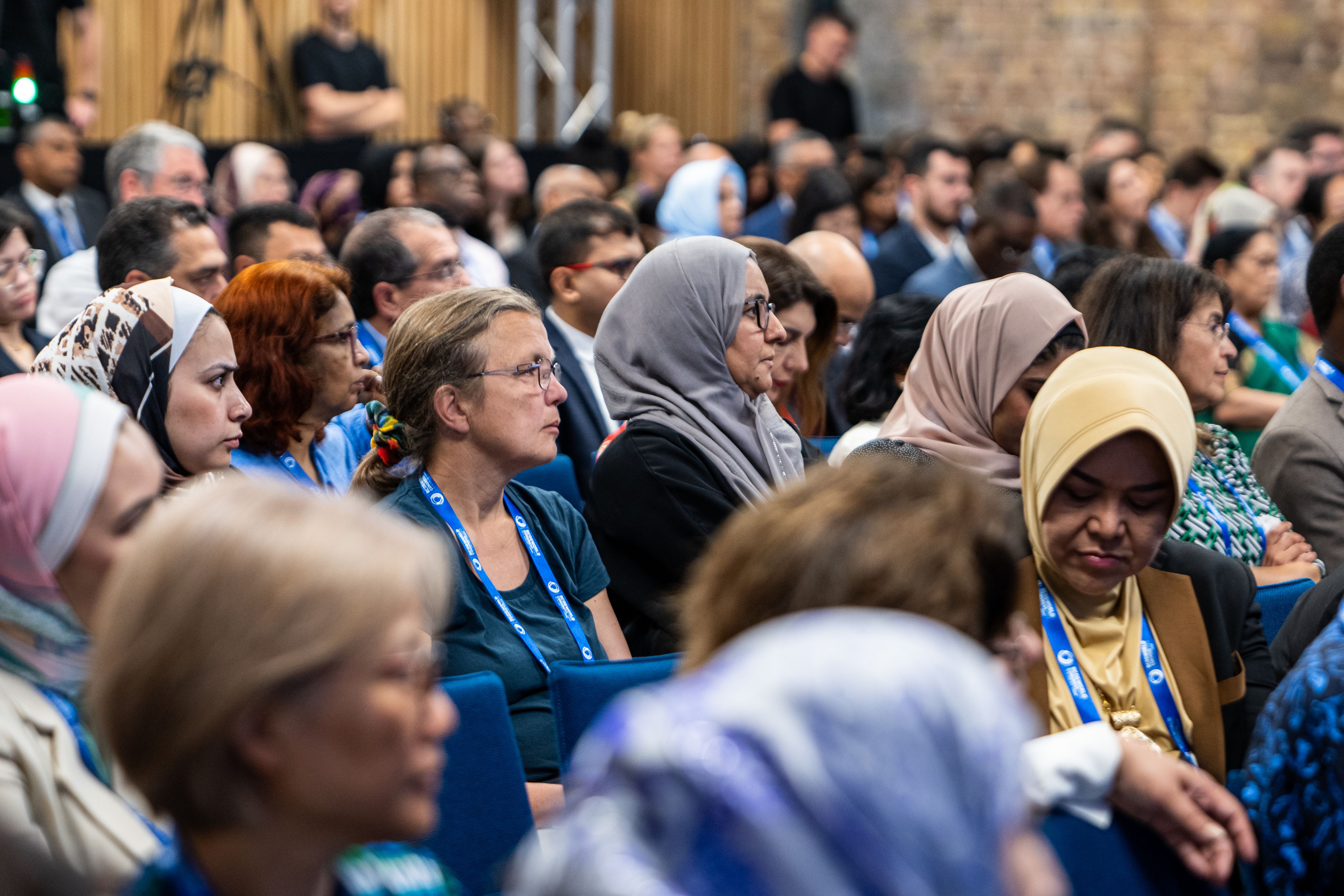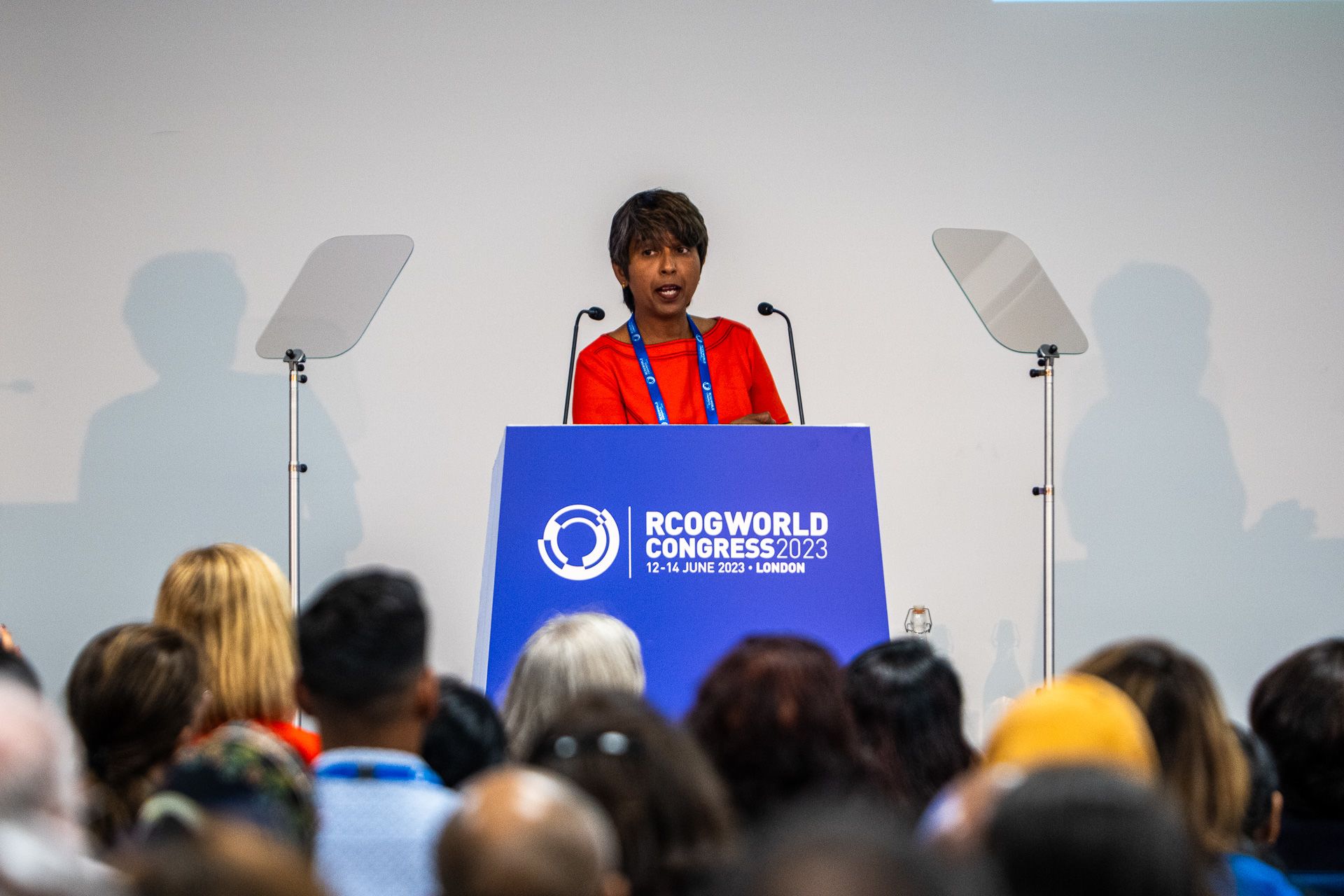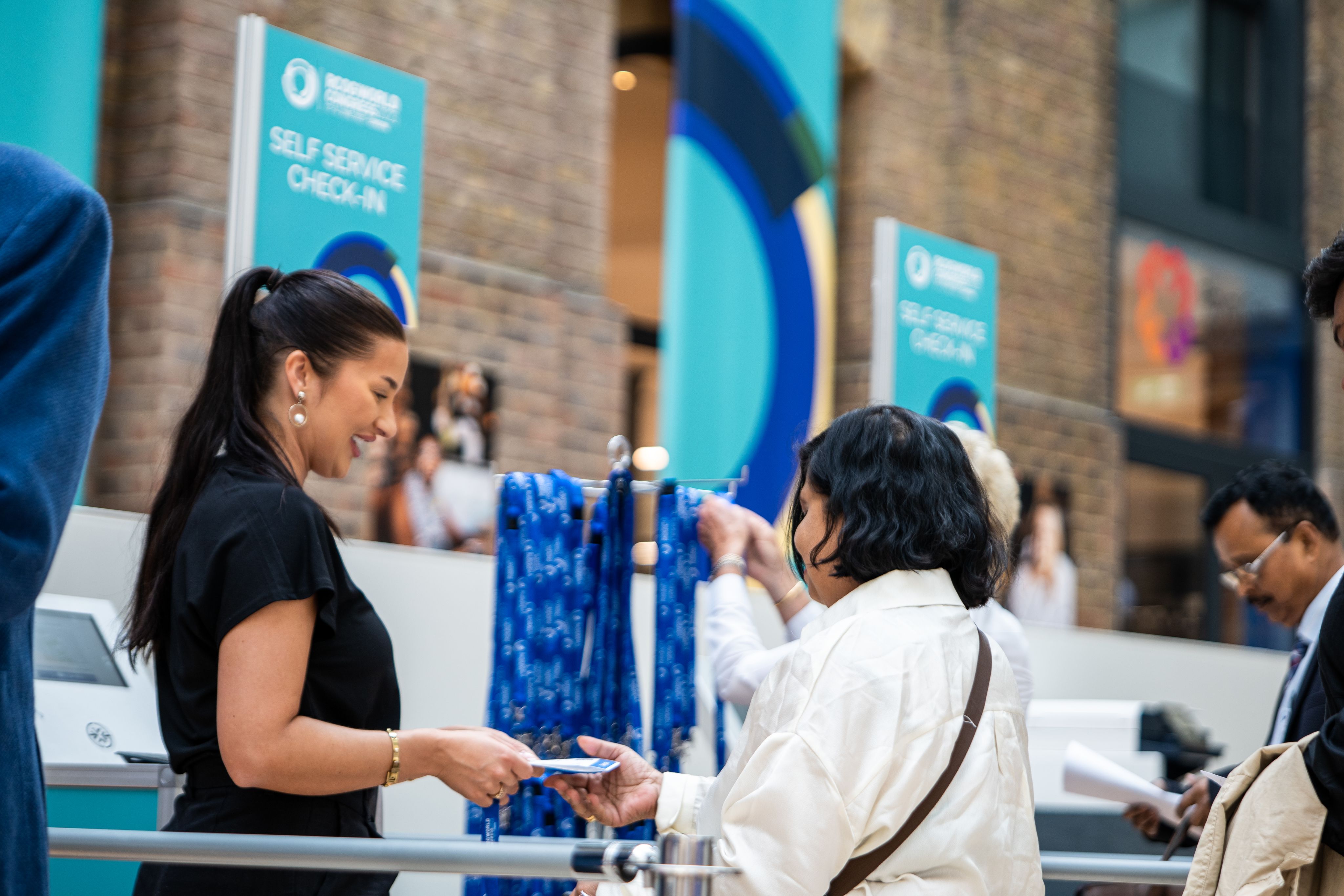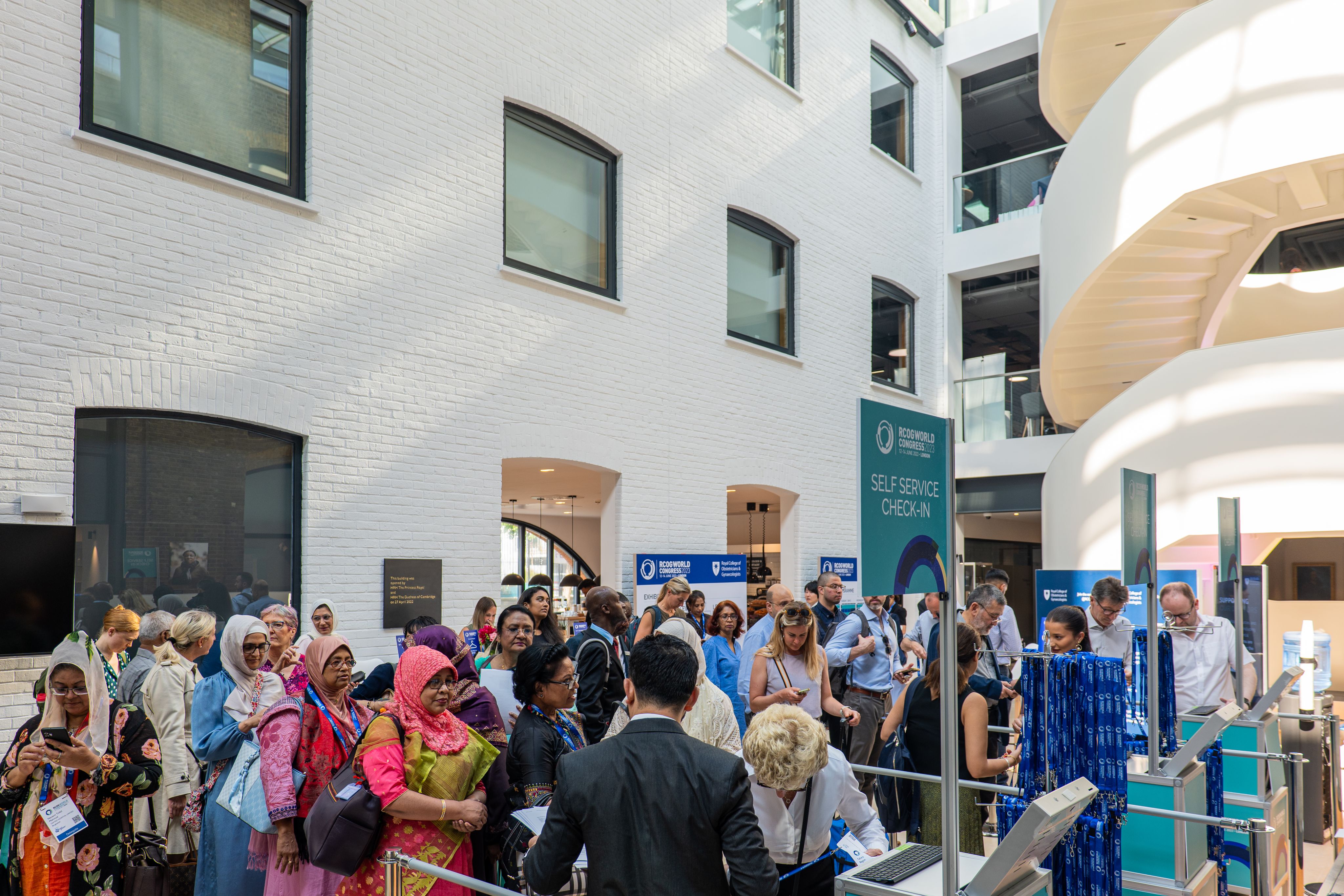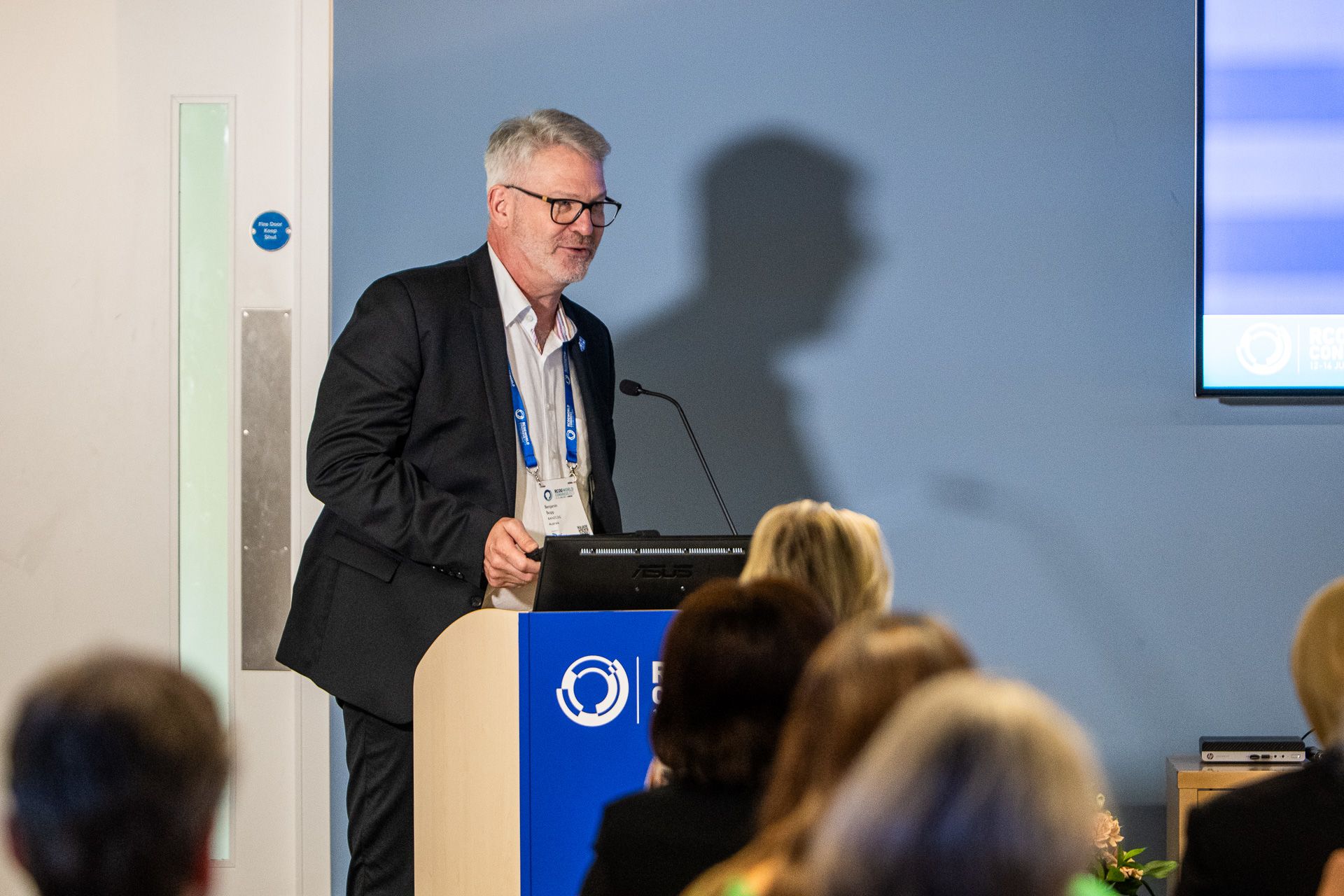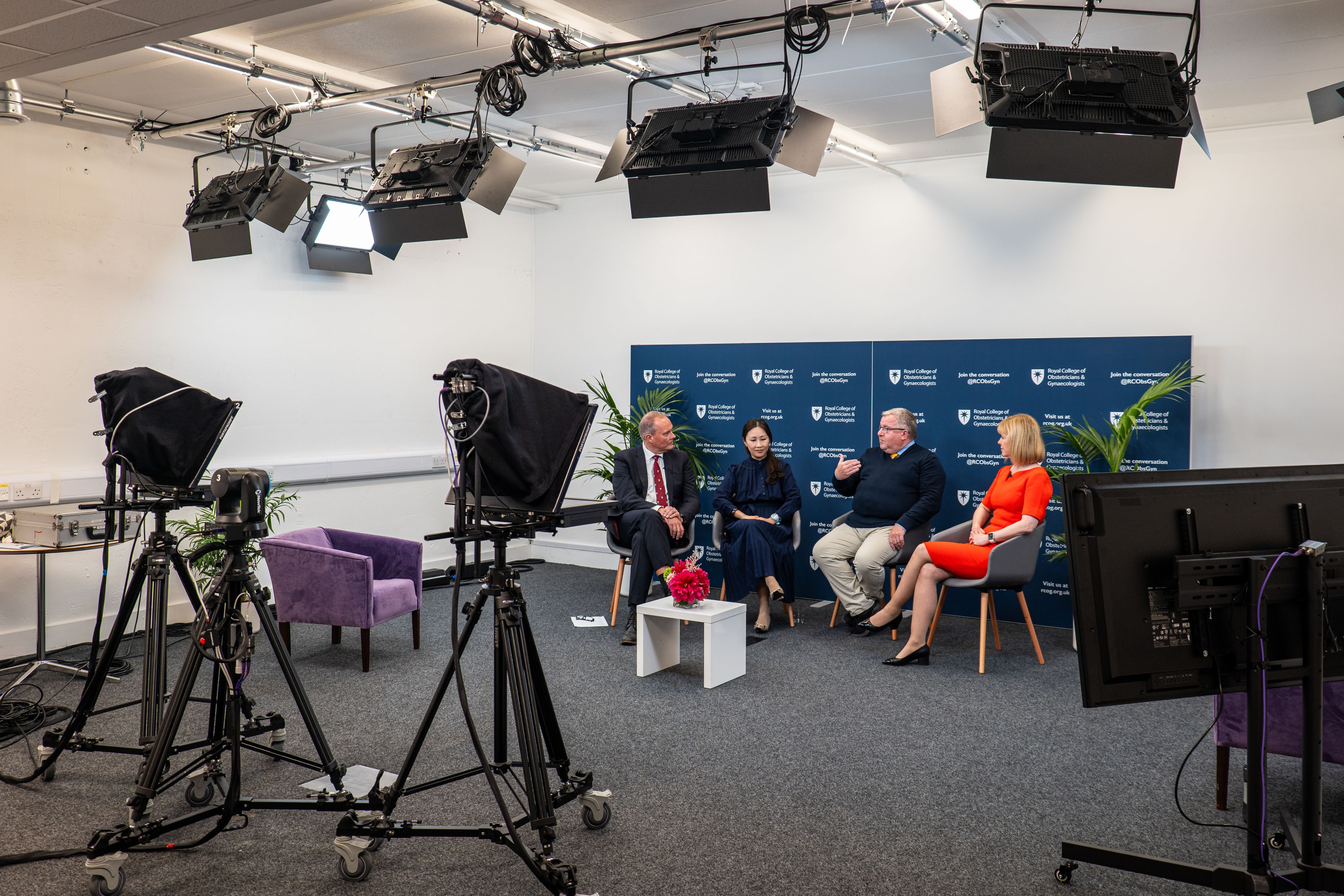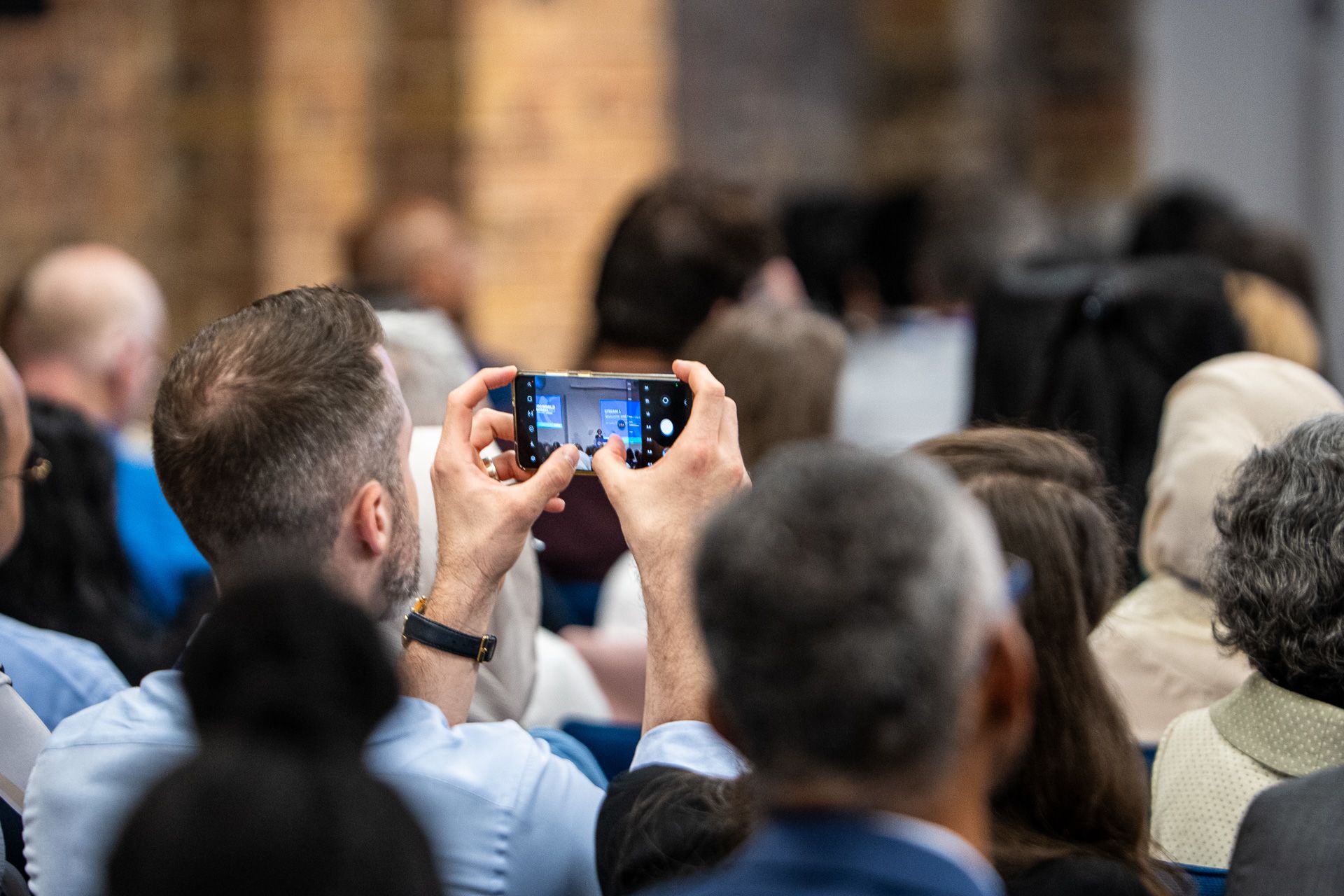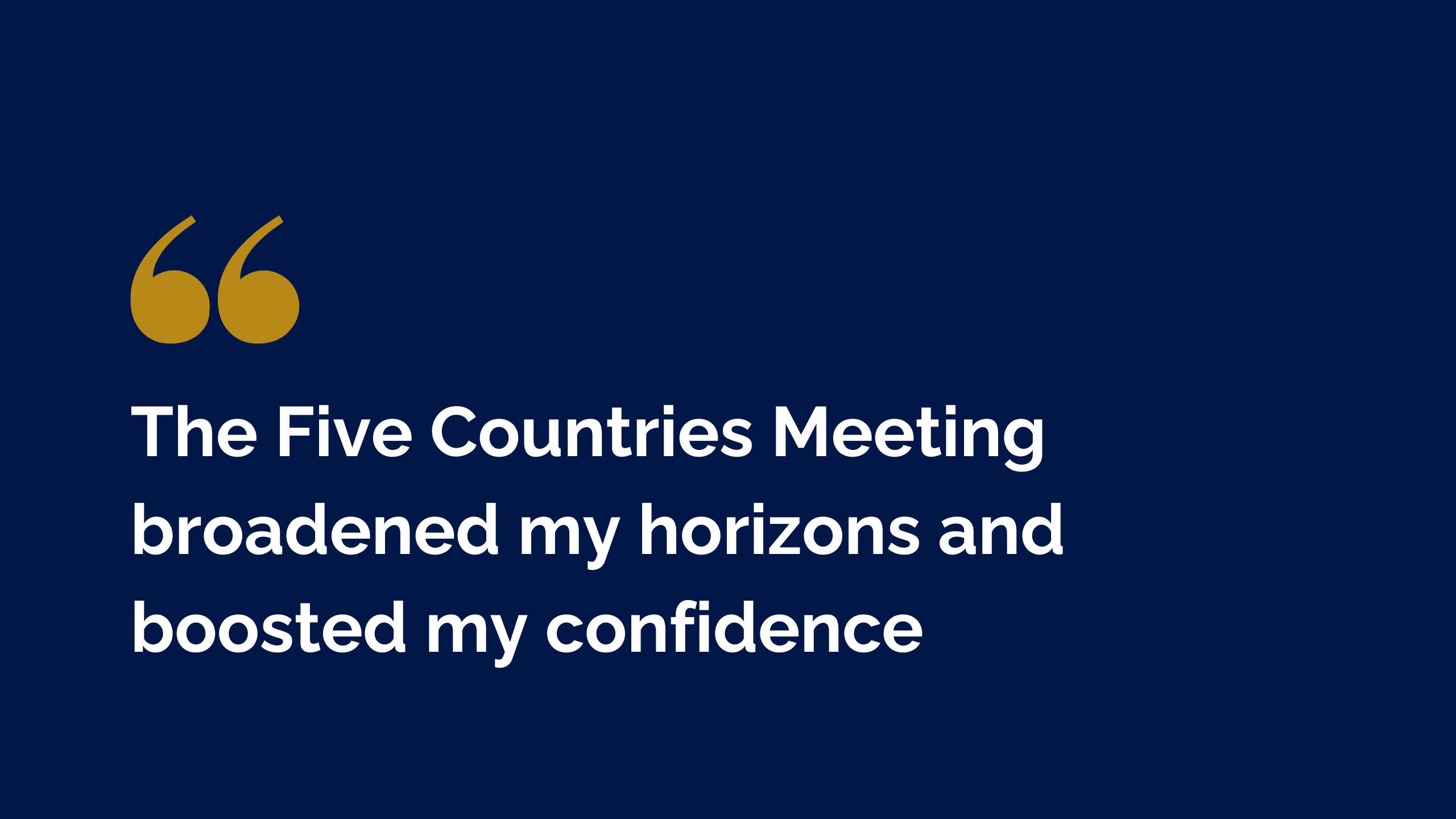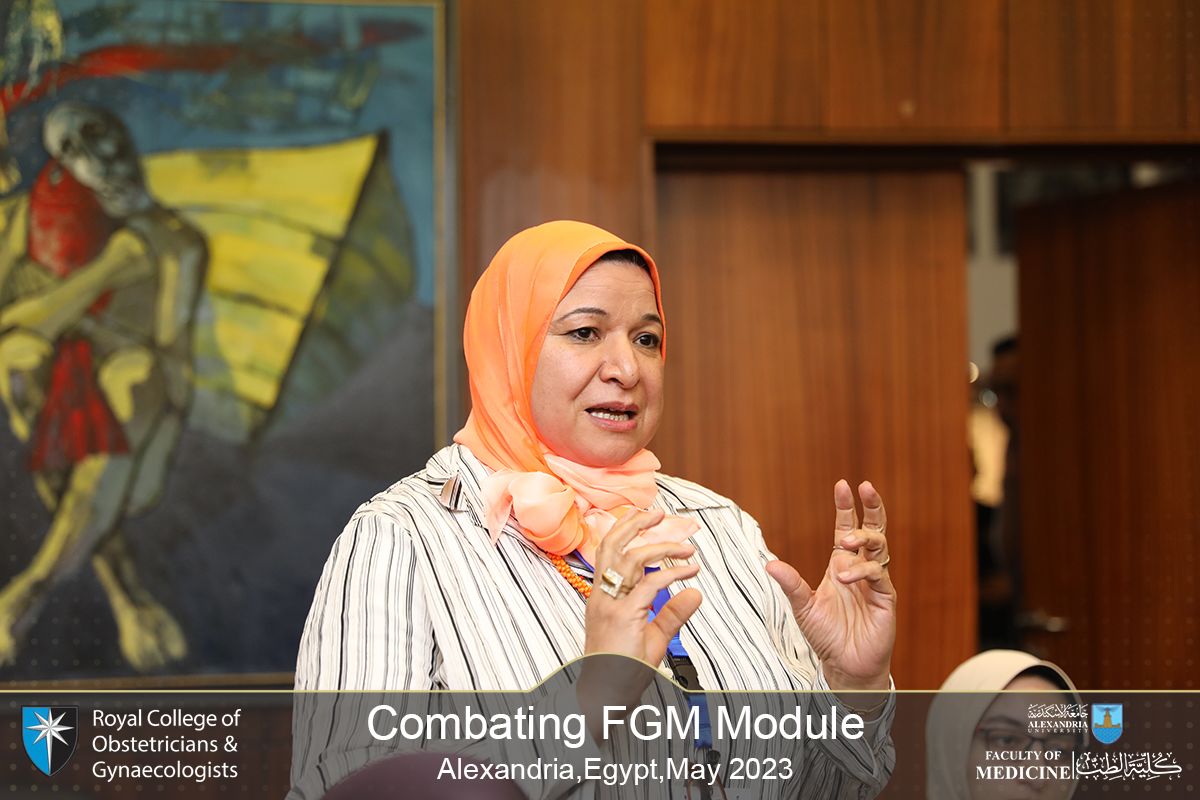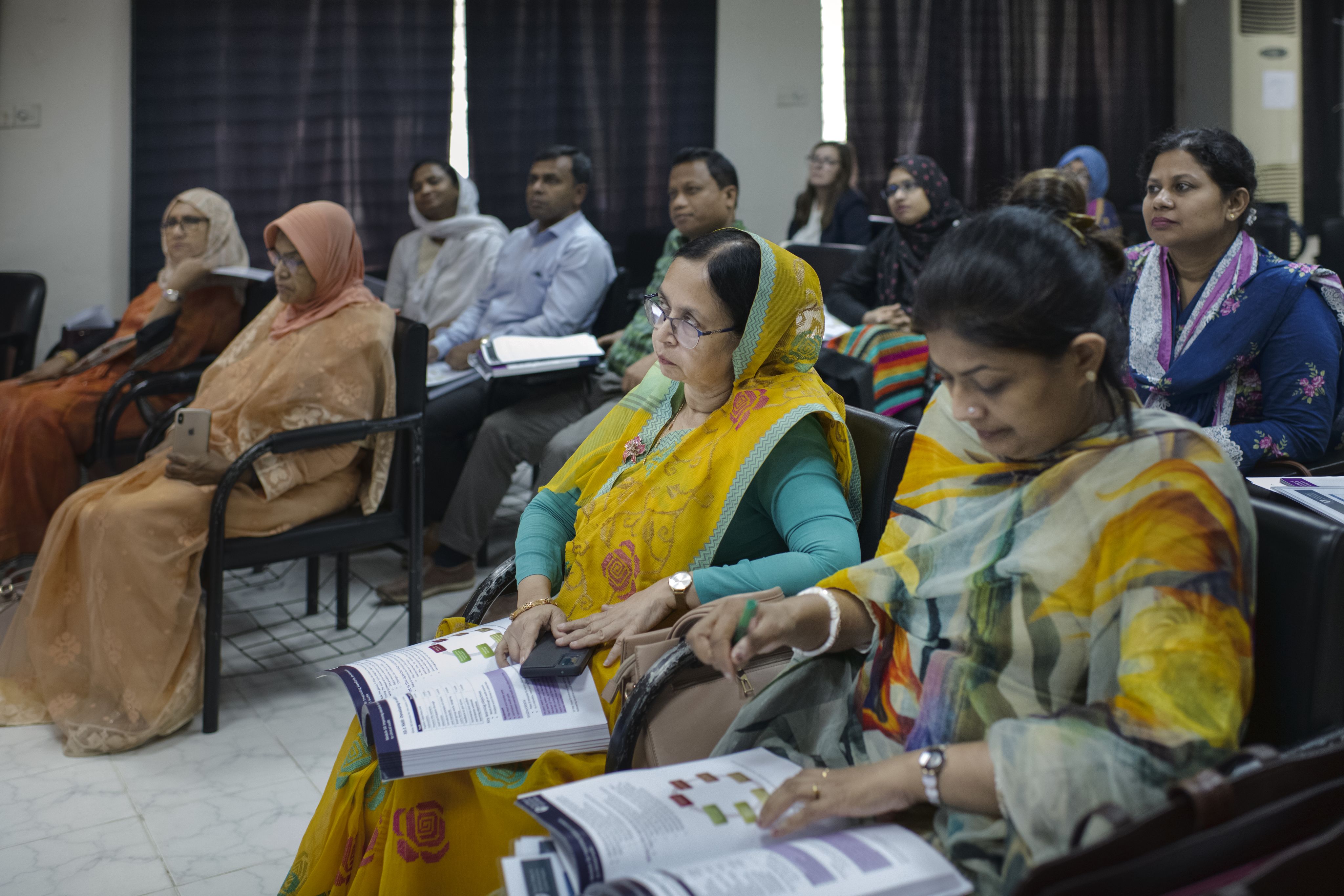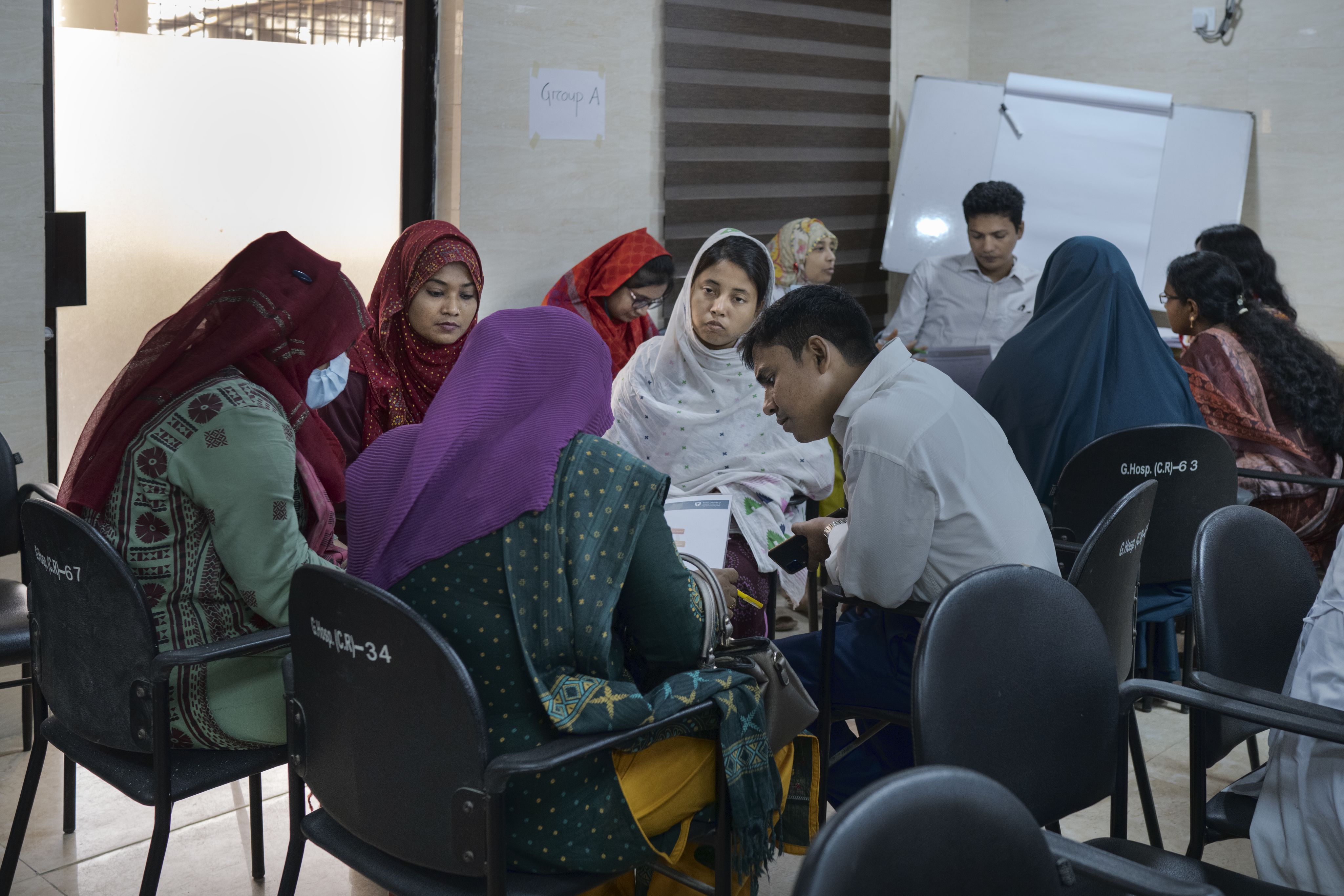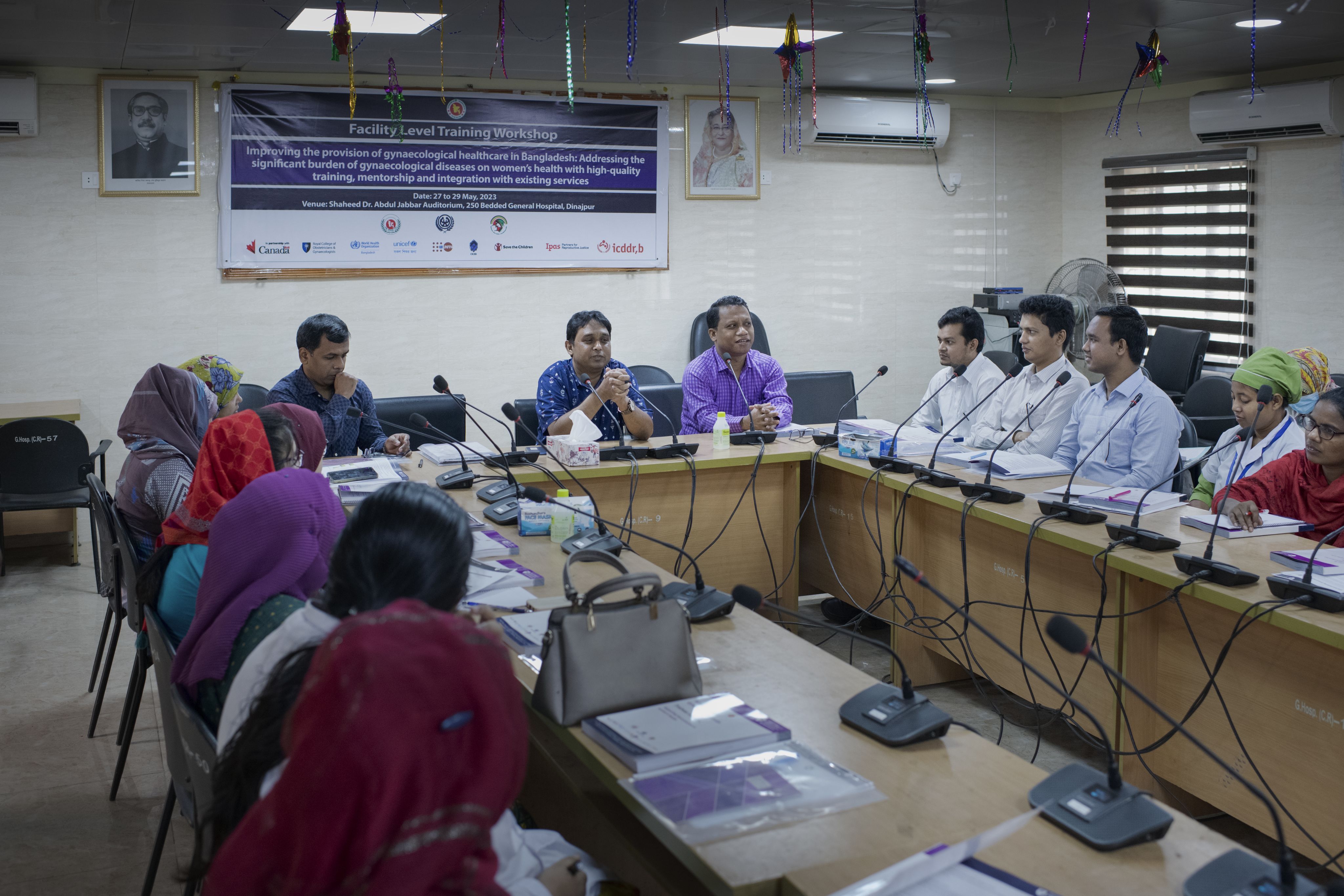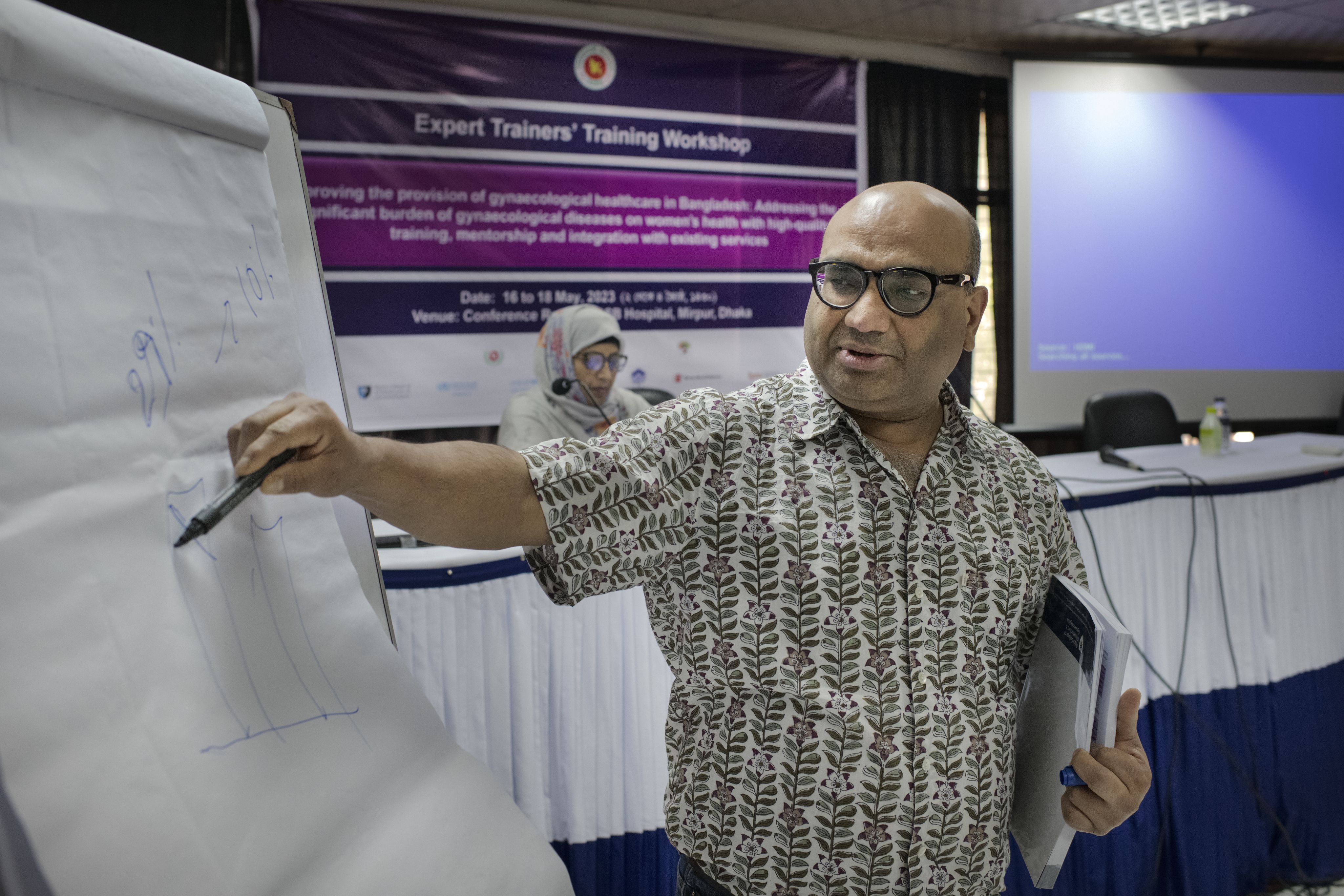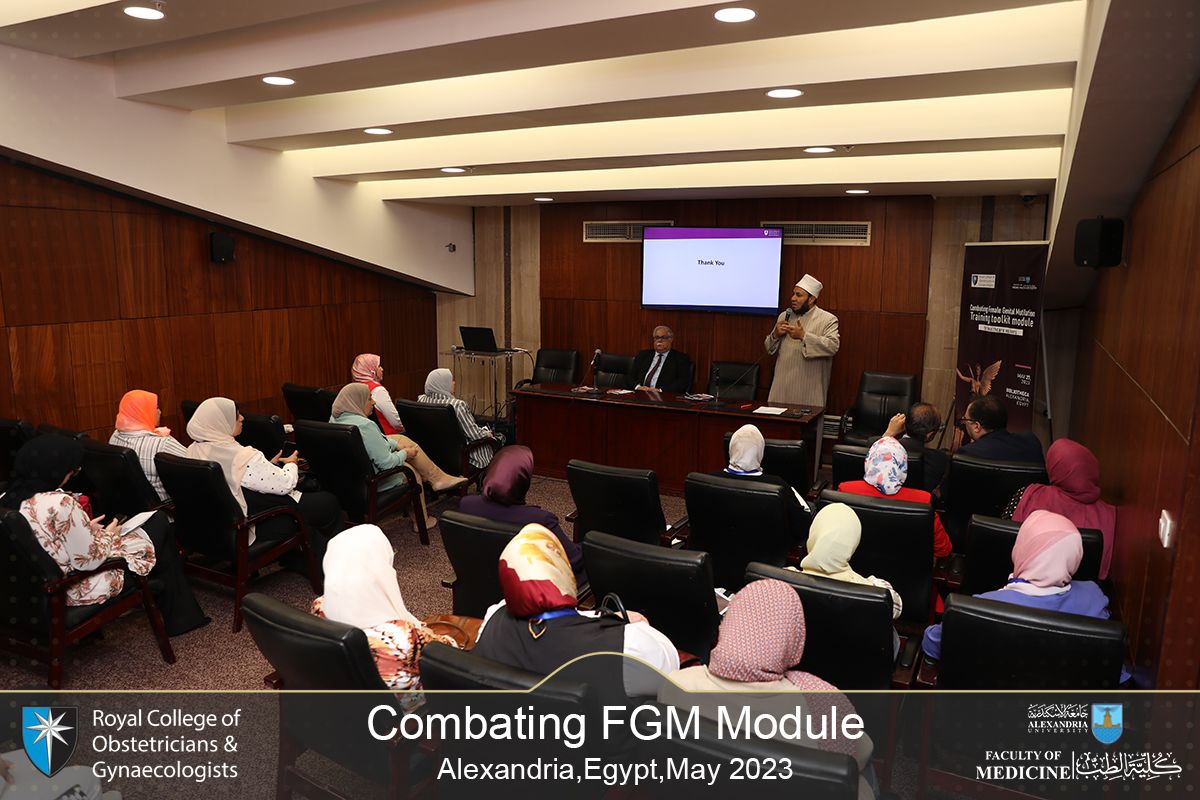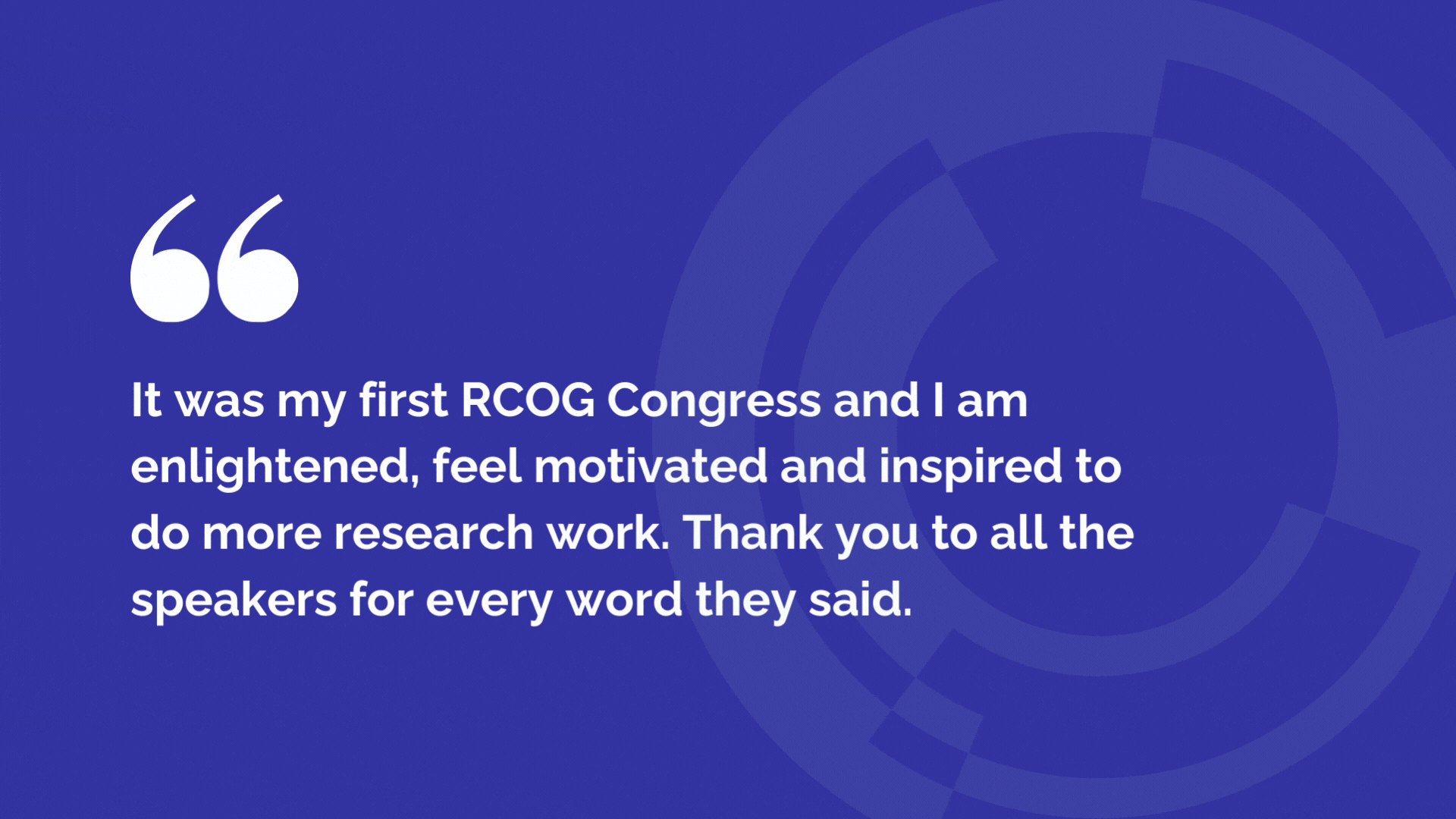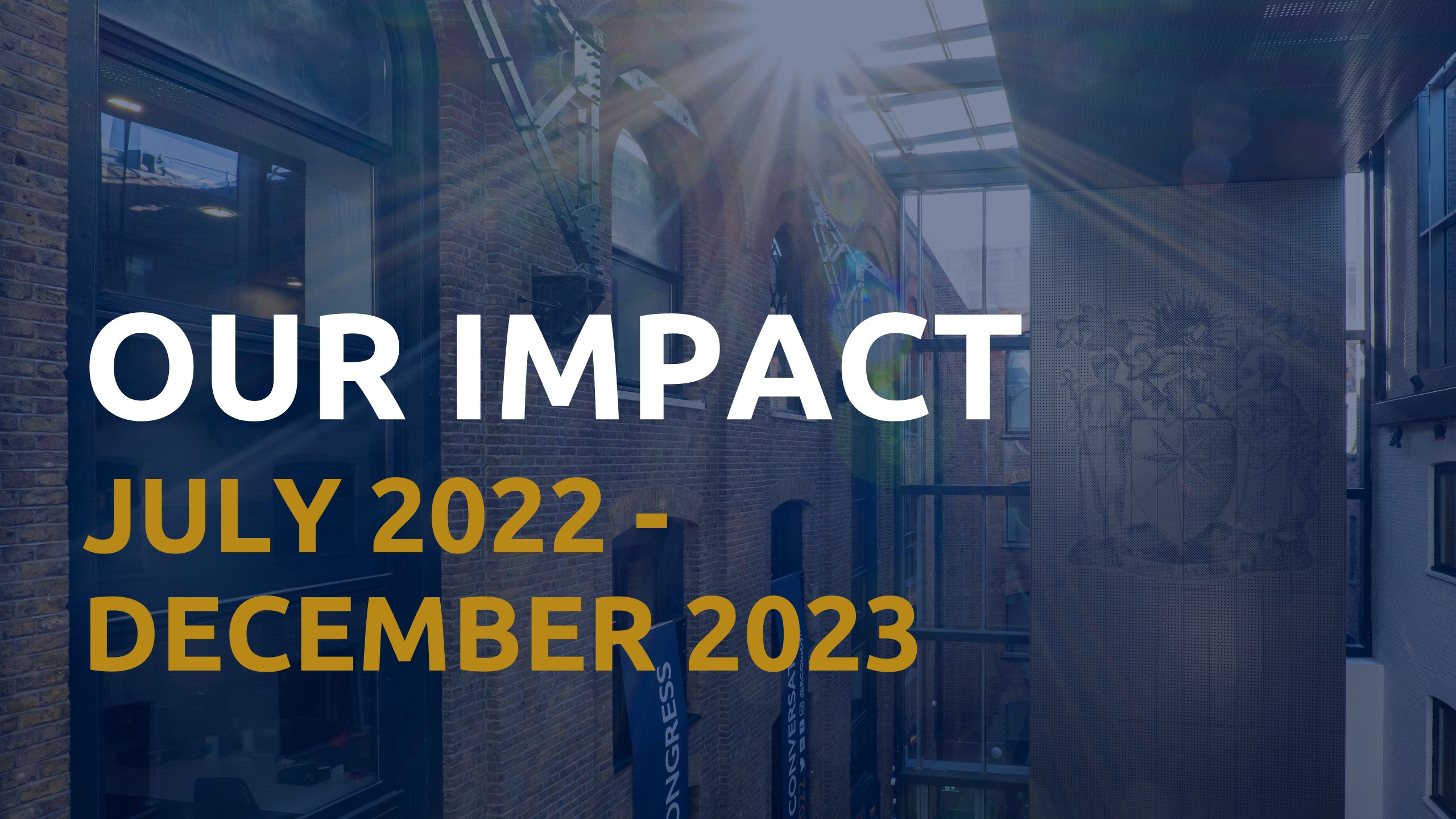
The Royal College of Obstetricians and Gynaecologists (RCOG) has been working to improve women’s health and reproductive care for almost 95 years.
In this impact report we outline all the College has achieved in pursuit of this global mission between July 2022 and December 2023. Keep scrolling to read about our highlights.
The Royal College of Obstetricians and Gynaecologists (RCOG) has been working to improve women’s health and reproductive care for almost 95 years.
In this impact report we outline all the College has achieved in pursuit of this global mission between July 2022 and December 2023. Keep scrolling to read about our highlights.
An introduction from the President
Between July 2022 and December 2023, we have expanded our global community of obstetricians and gynaecologists and provided world-leading medical education. The College has also future-proofed obstetrics and gynaecology (O&G) training by developing a new specialty curriculum. This will make sure our doctors continue to deliver the best possible care to women for years to come.
From initiatives supporting improvements in maternity care and successfully lobbying for the introduction of safe access zones around abortion clinics in England and Wales, to our Making Abortion Safe programme in Africa and delivering training in Egypt to combat female genital mutilation, the College has raised the profile of women’s healthcare and standards of professional practice globally.
We have also expanded our hub for women’s health organisations in our London Union Street office and are working to become a more sustainable organisation, whilst supporting our members to respond to the climate crisis and advocate for a healthier future for women and girls.
We simply could not achieve the impact you will read about in this report without our committed membership and every one of our 2,200 volunteers who support the College to deliver its vital work.
Ranee Thakar
President, RCOG
An introduction from the President
Between July 2022 and December 2023, we have expanded our global community of obstetricians and gynaecologists and provided world-leading medical education. The College has also future-proofed obstetrics and gynaecology (O&G) training by developing a new specialty curriculum. This will make sure our doctors continue to deliver the best possible care to women for years to come.
From initiatives supporting improvements in maternity care and successfully lobbying for the introduction of safe access zones around abortion clinics in England and Wales, to making abortion safe in Sub-Saharan Africa and delivering training in Egypt to combat female genital mutilation, the College has raised the profile of women’s healthcare and standards of professional practice globally.
We have also expanded our hub for women’s health organisations in our London Union Street office and are working to become a more sustainable organisation, whilst supporting our members to respond to the climate crisis and advocate for a healthier future for women and girls.
We simply could not achieve the impact you will read about in this report without our committed membership and every one of our 2,200 volunteers who support the College in delivering its vital work.
Ranee Thakar
President, RCOG
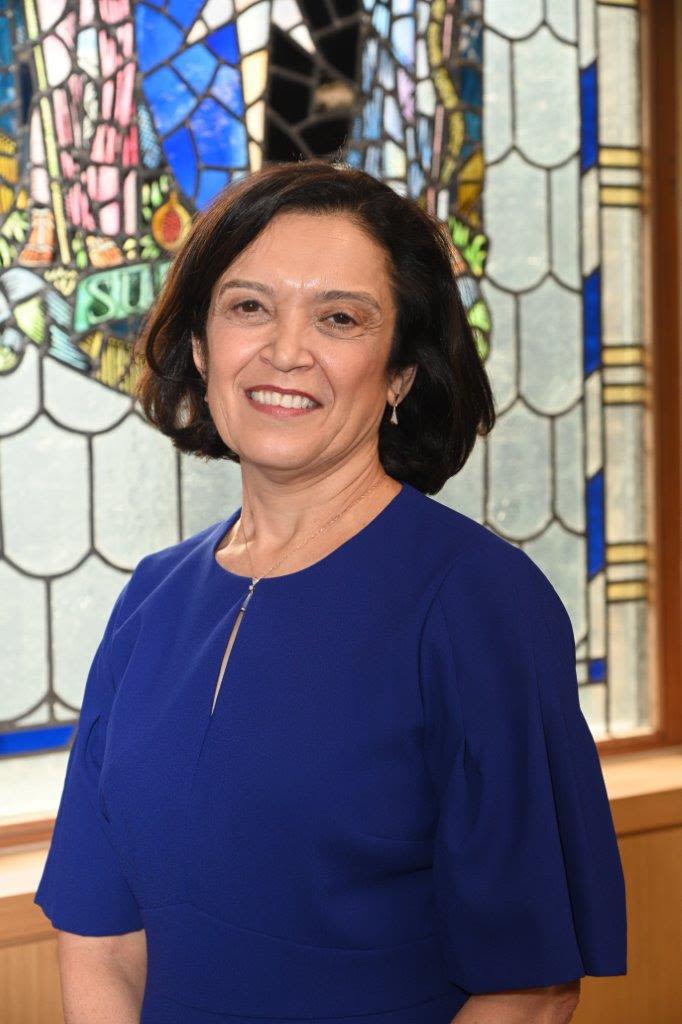

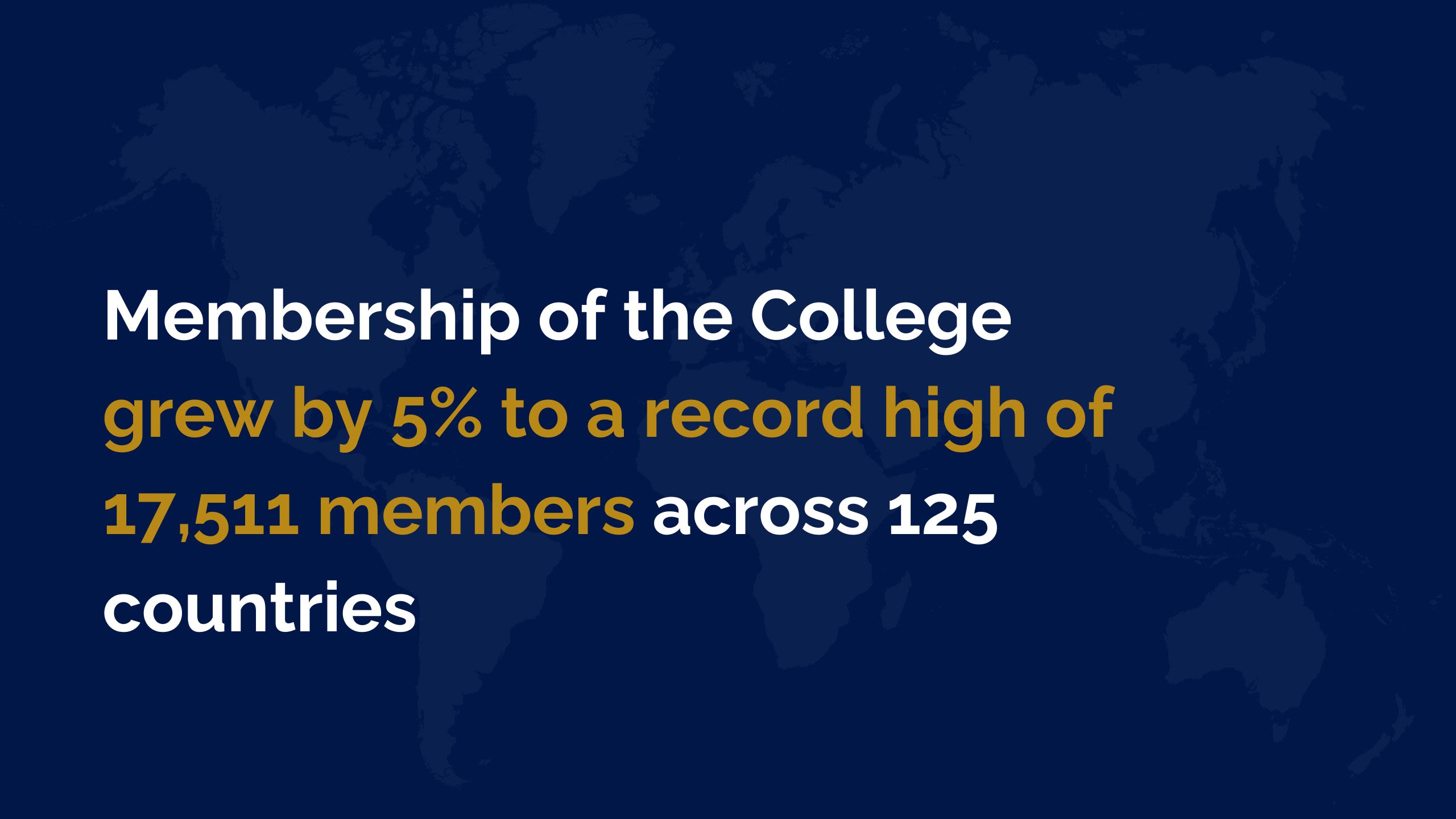
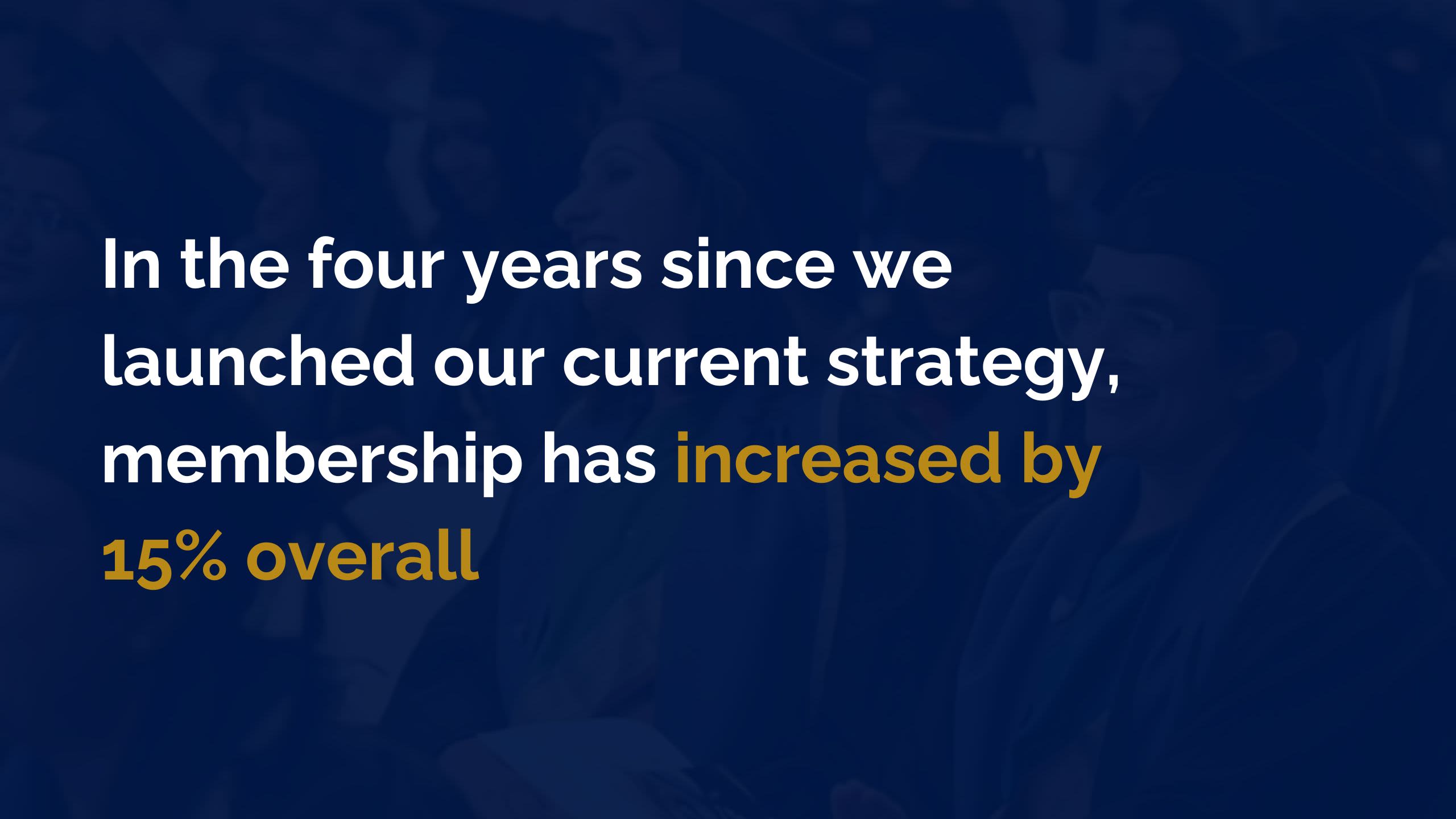
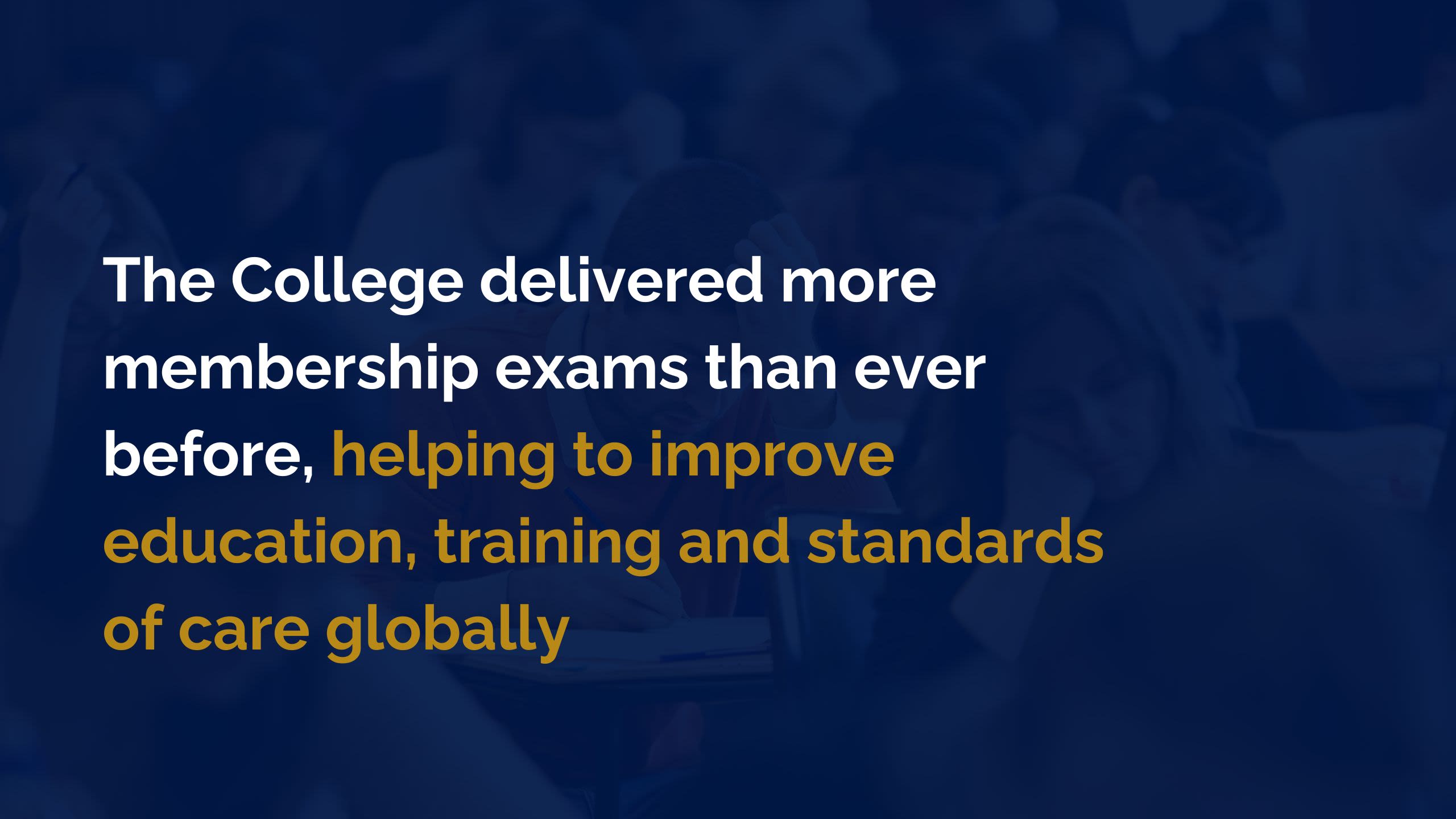
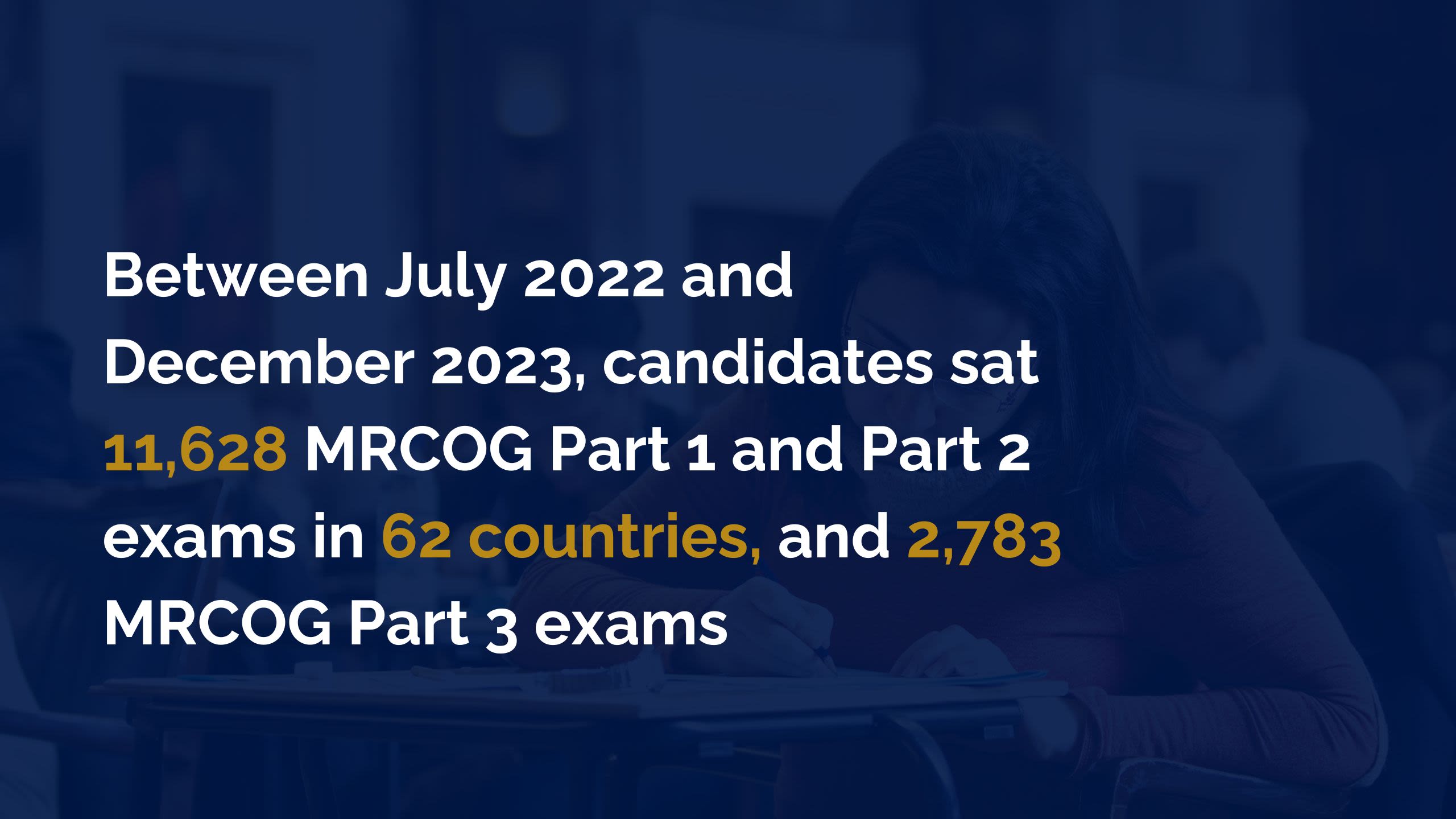
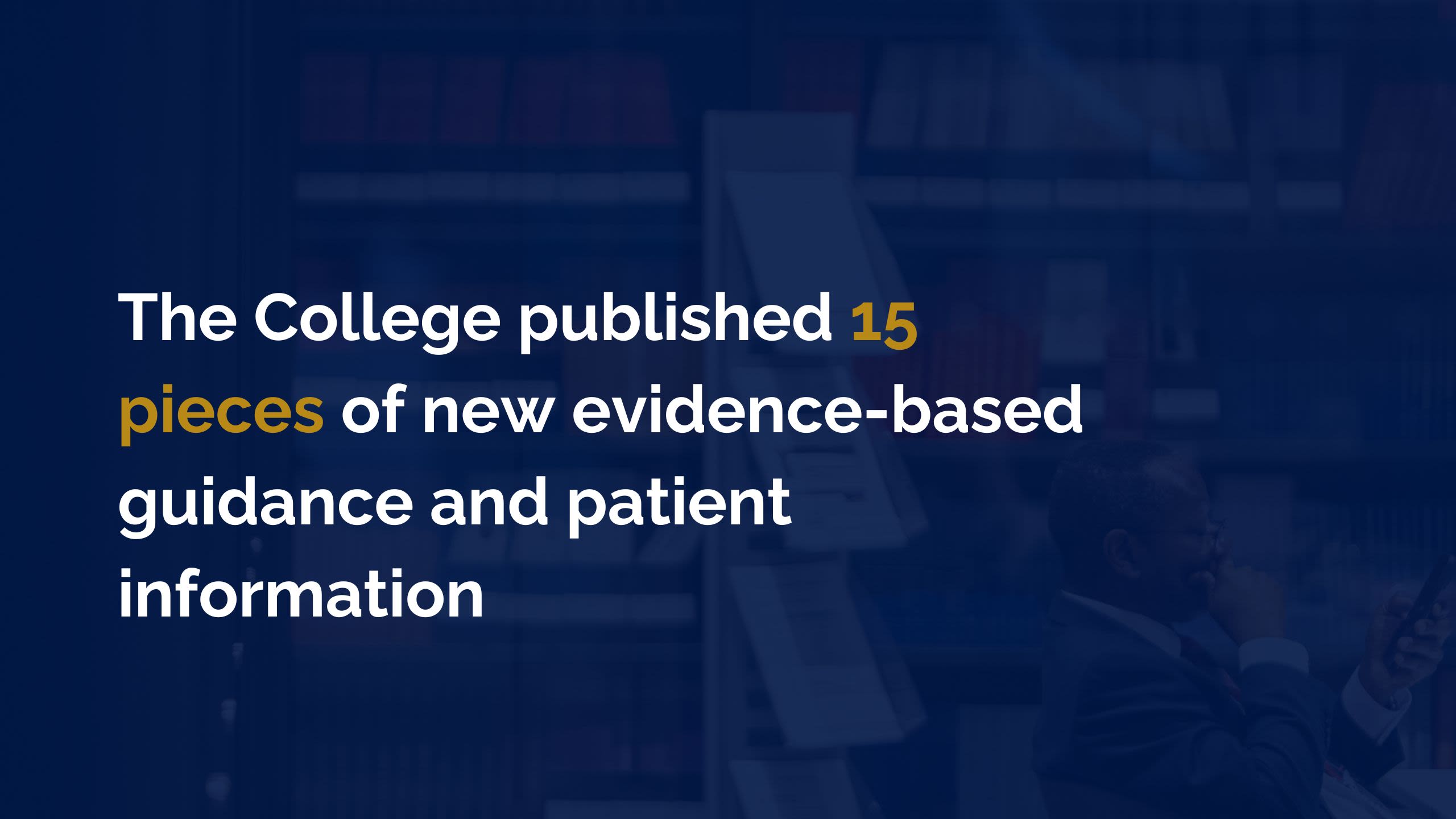
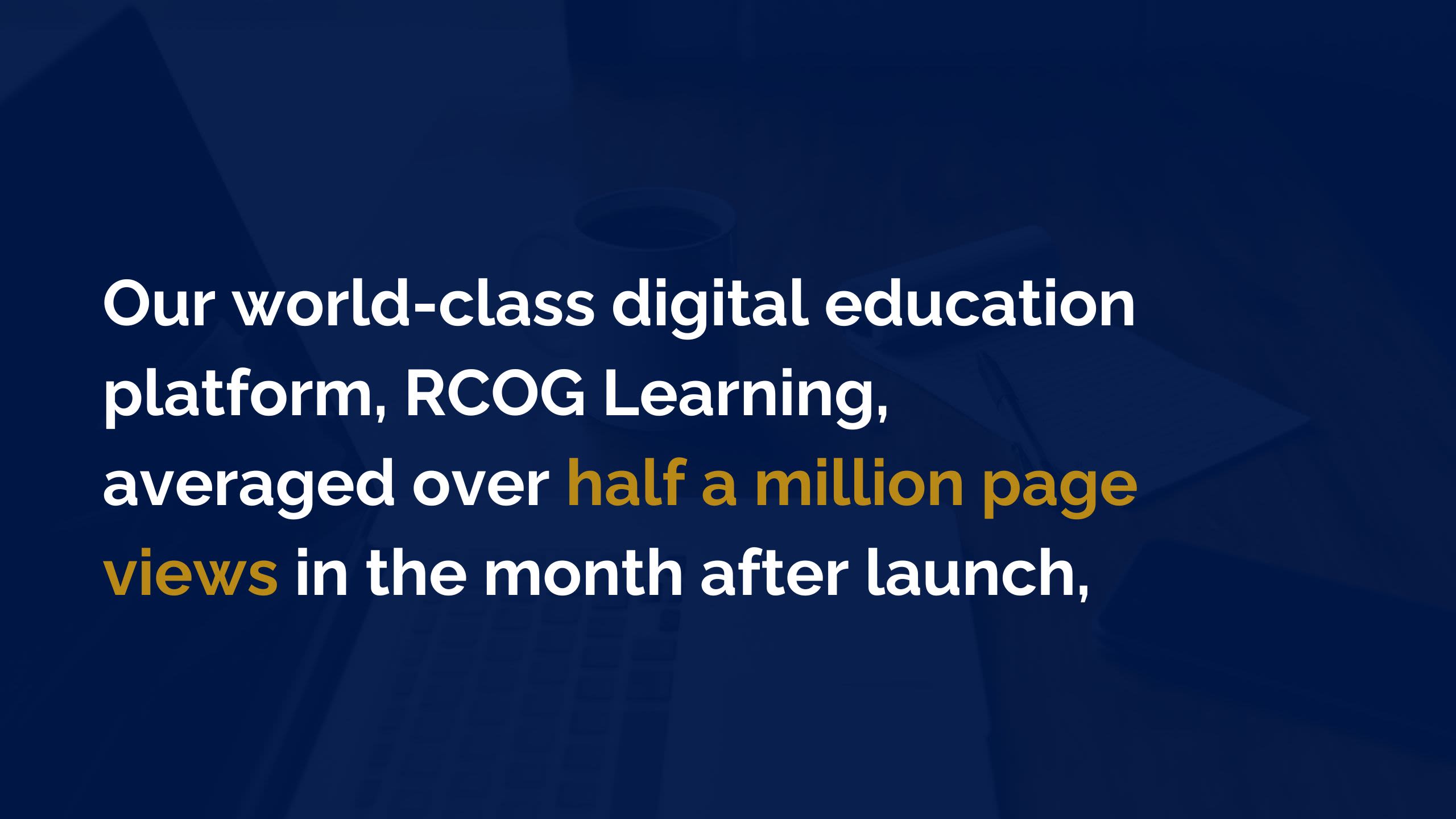
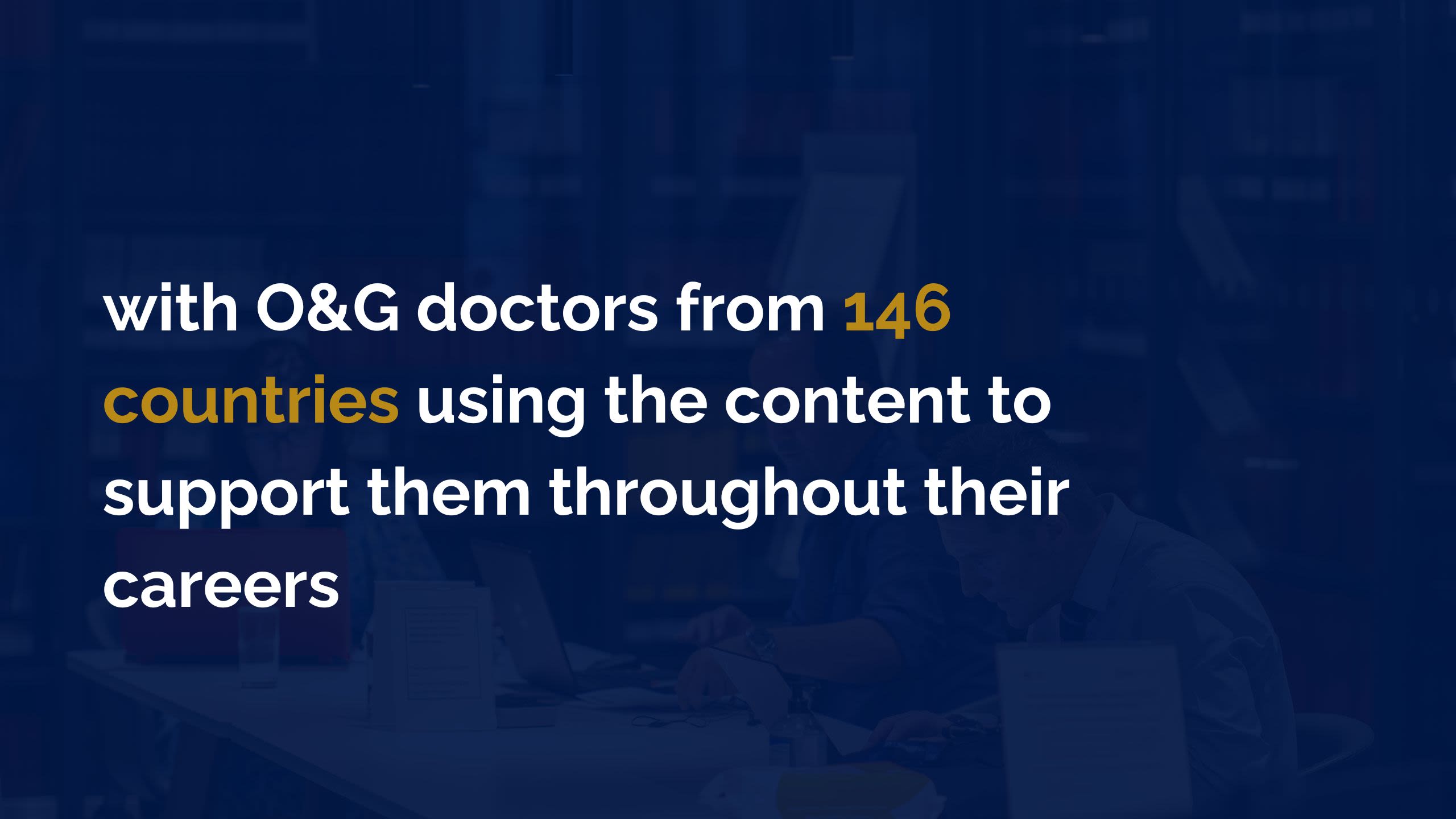
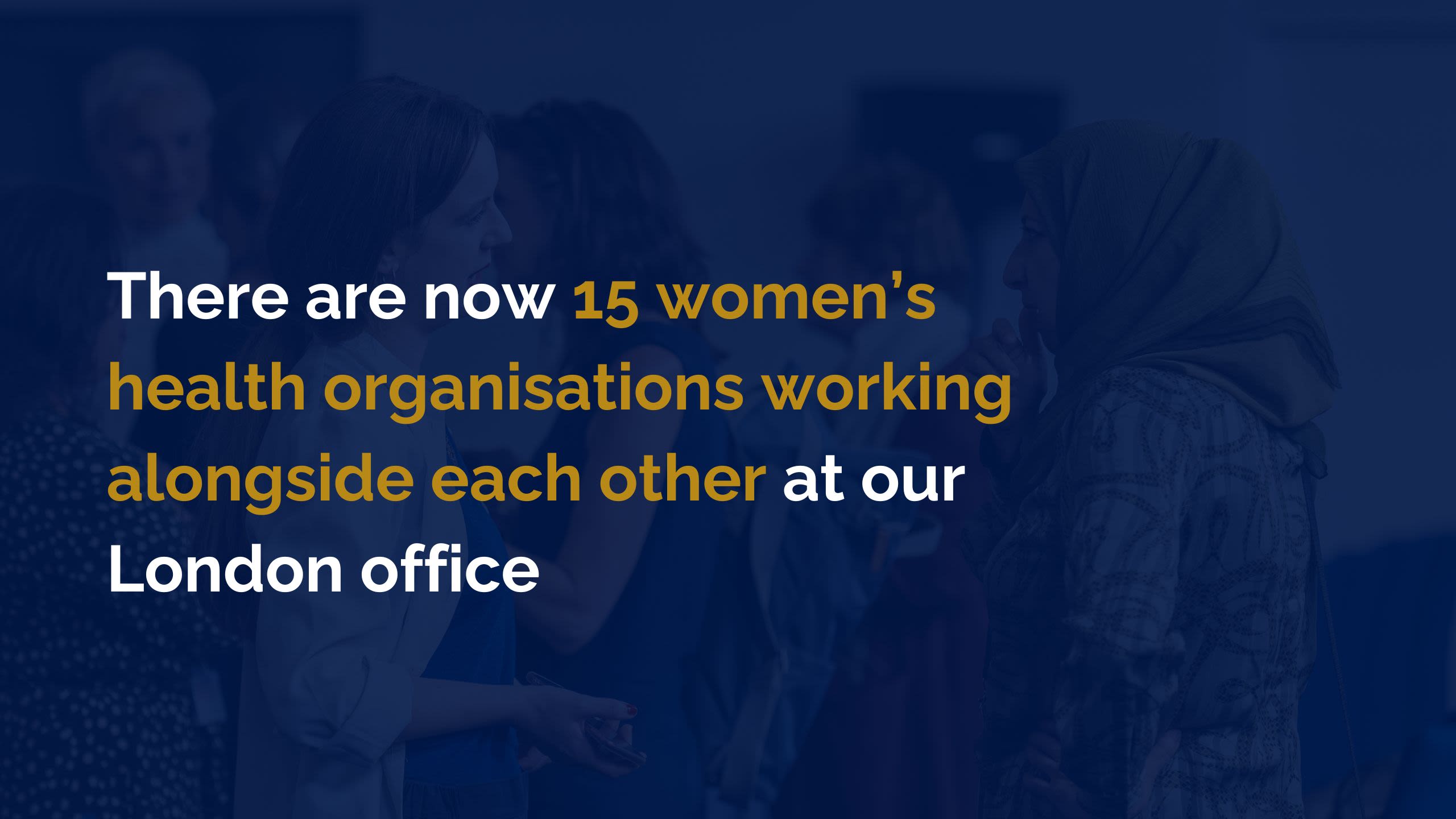
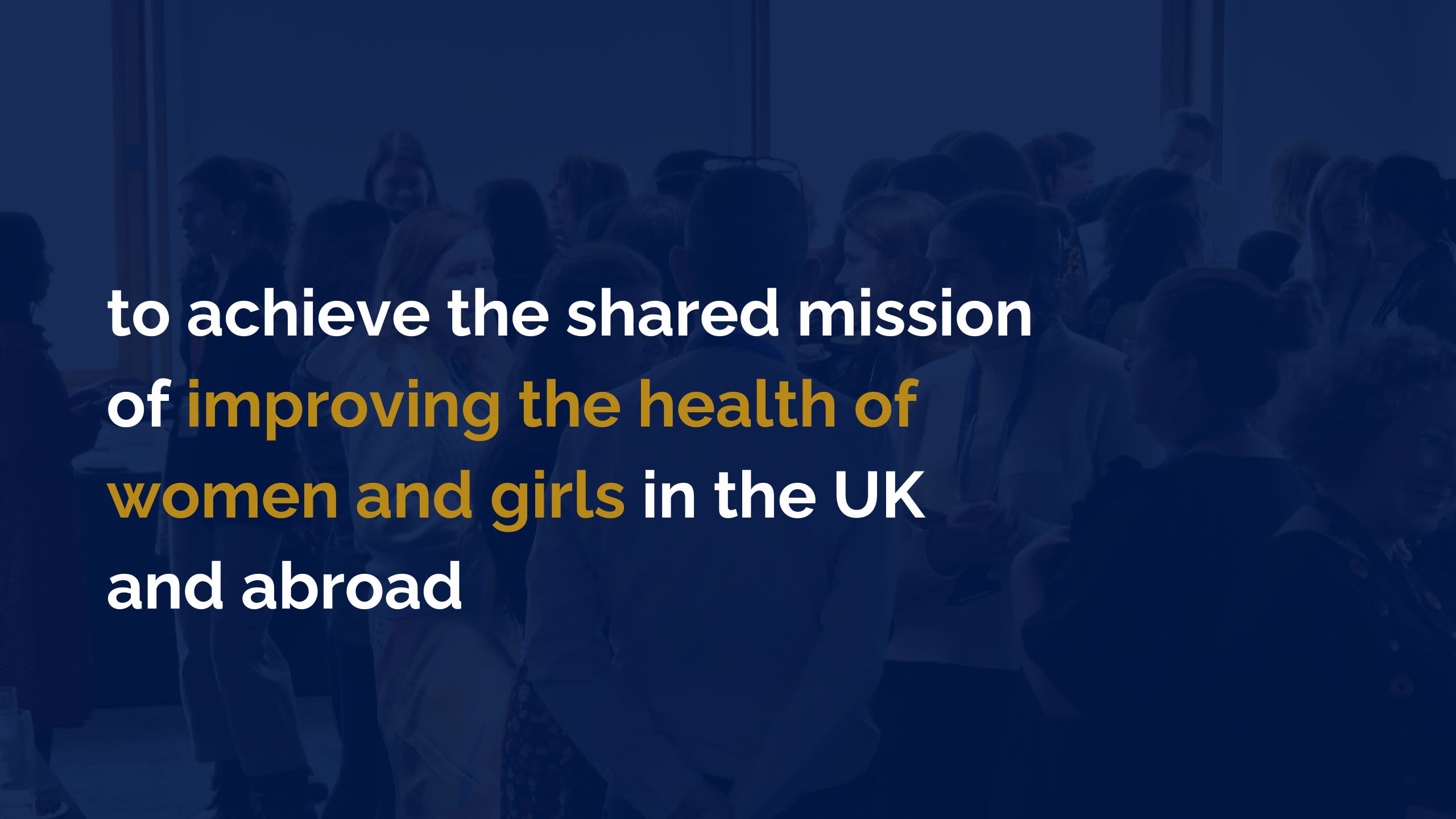
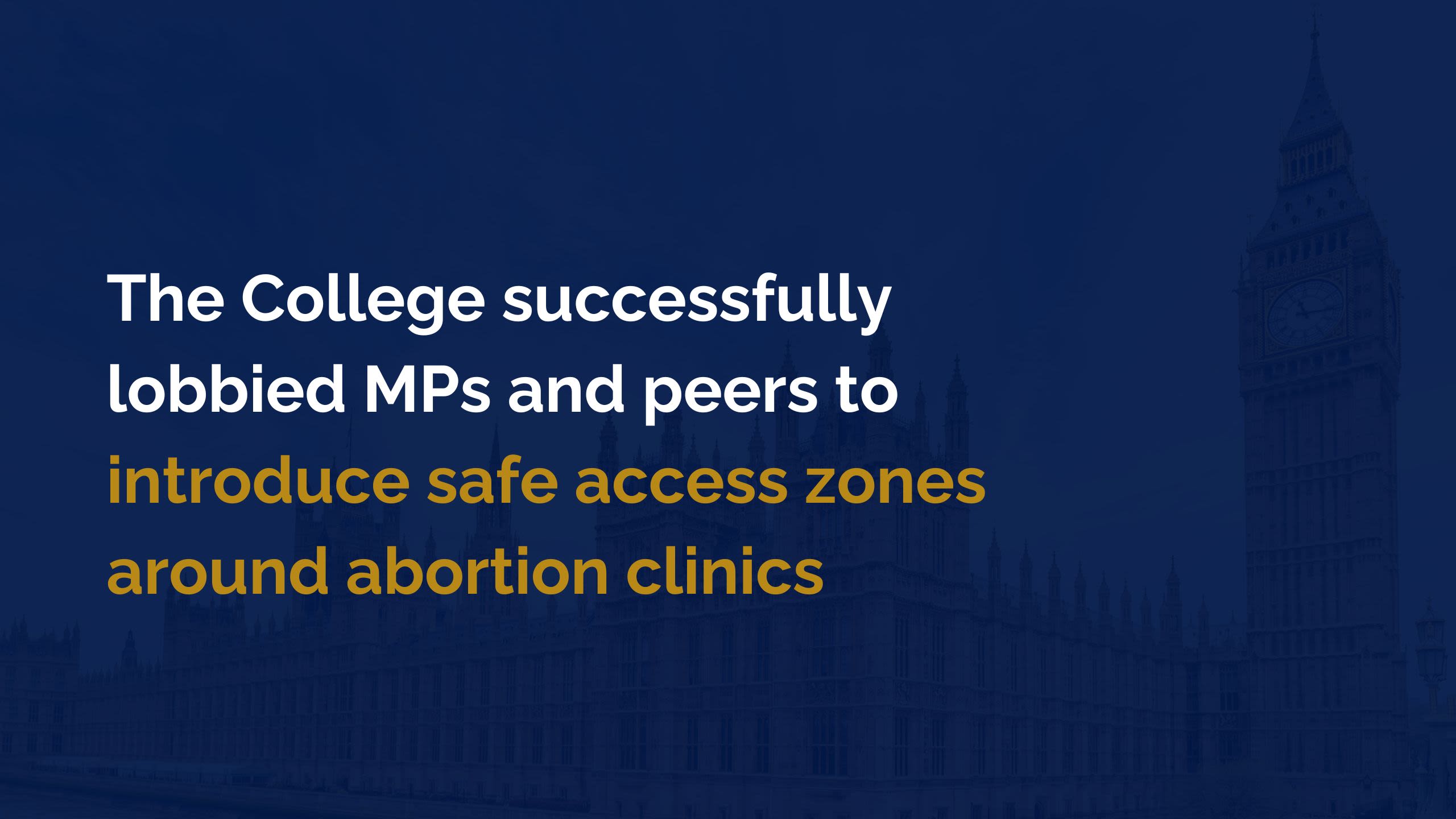
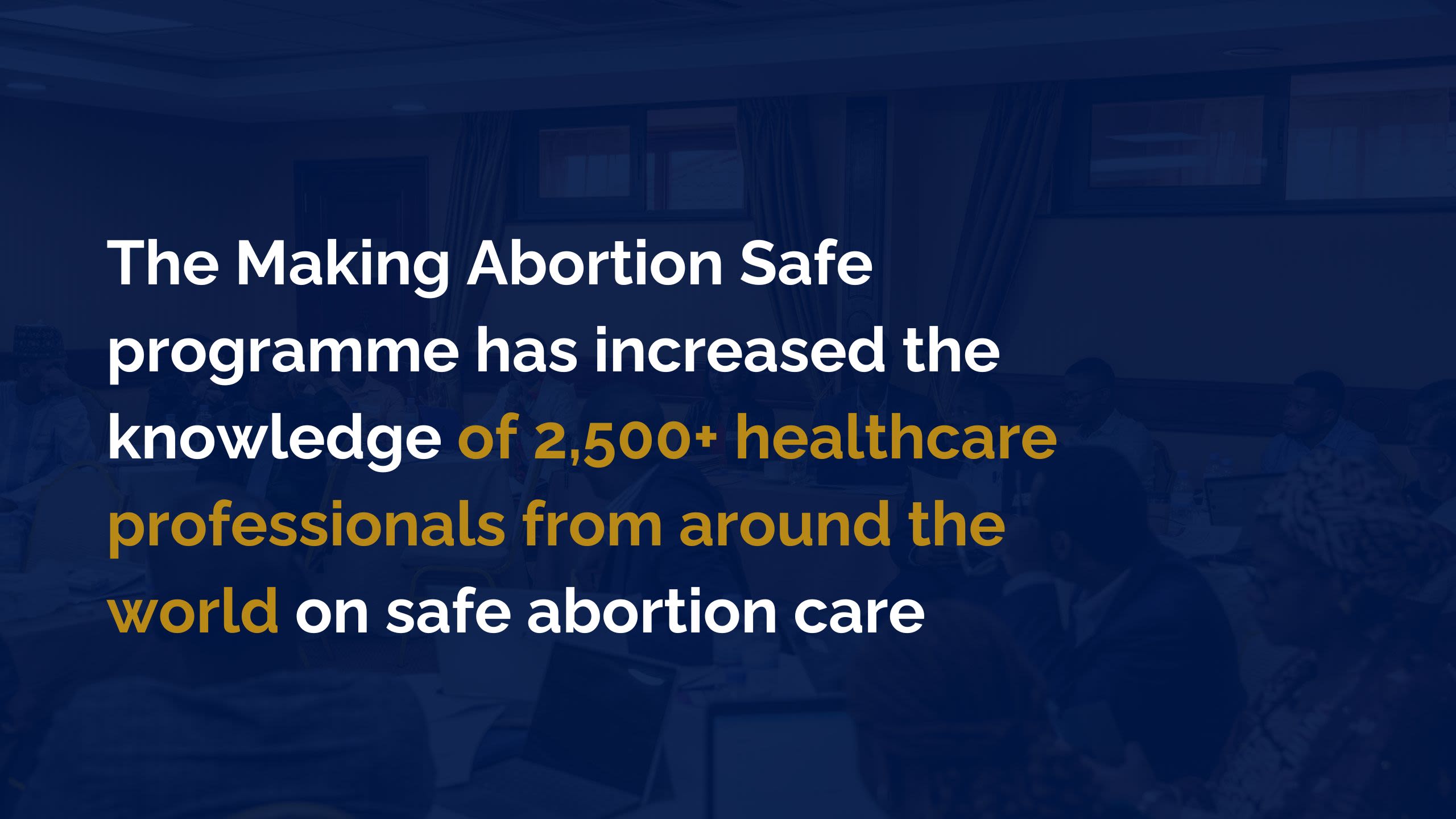
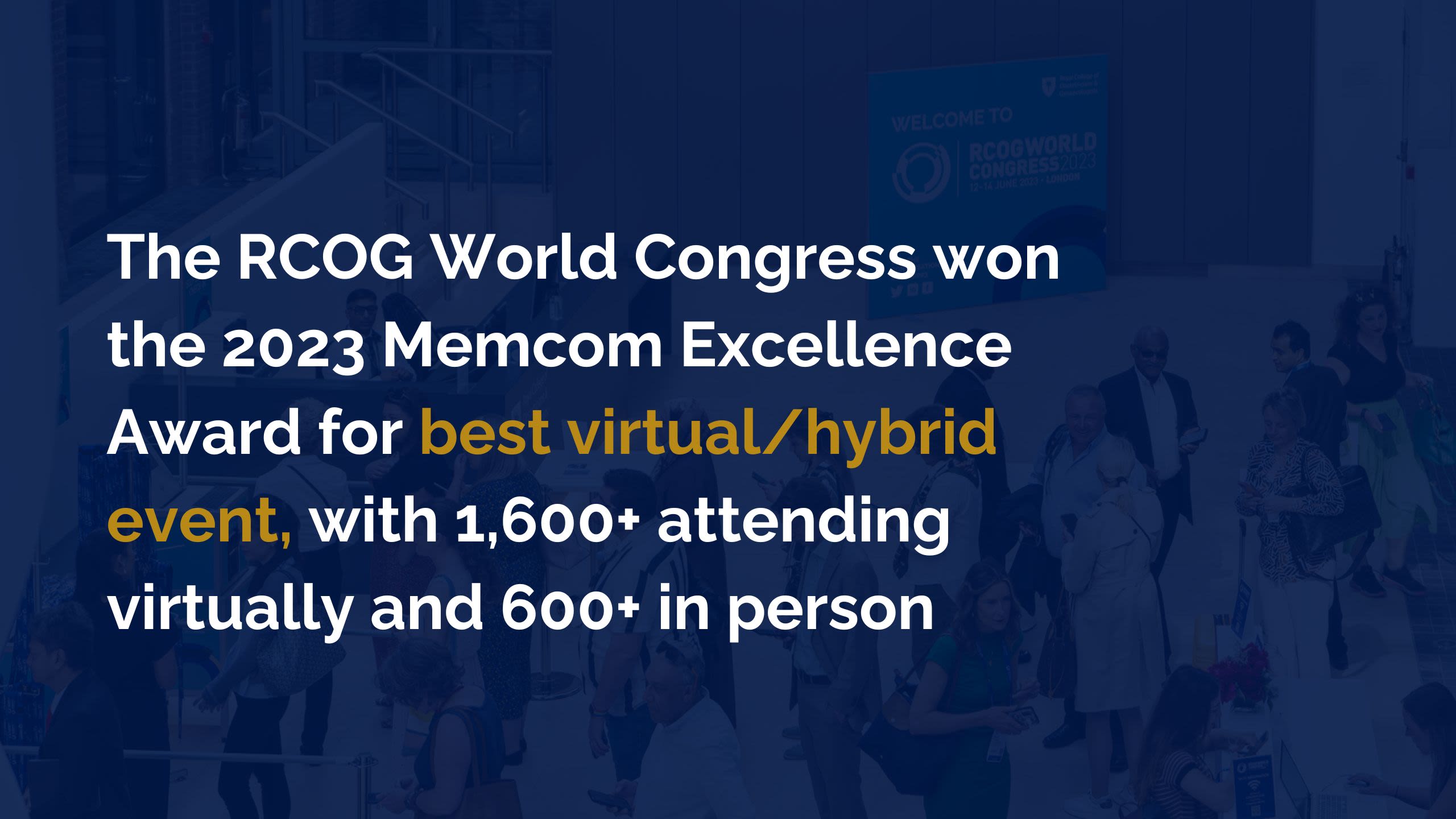
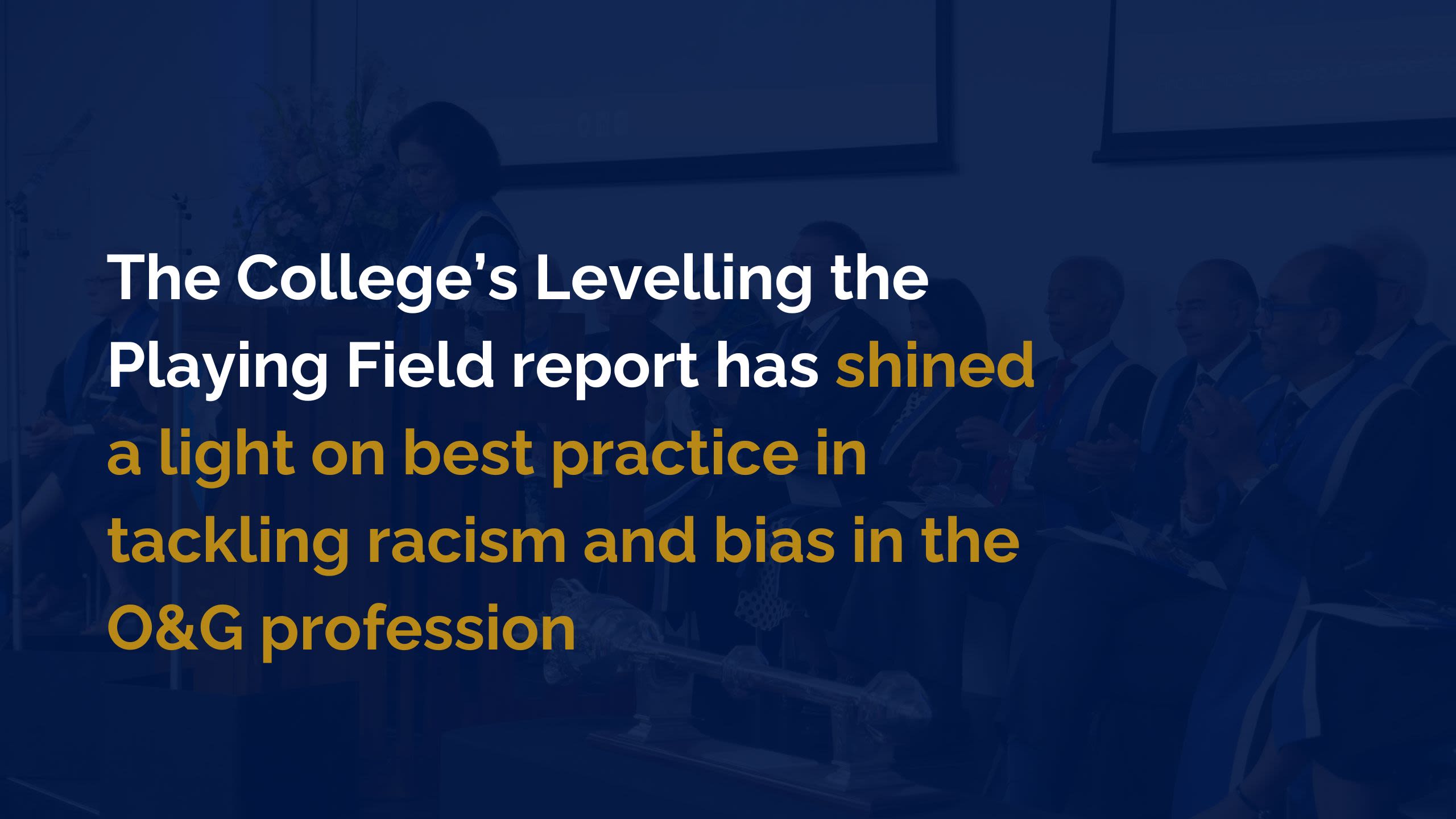
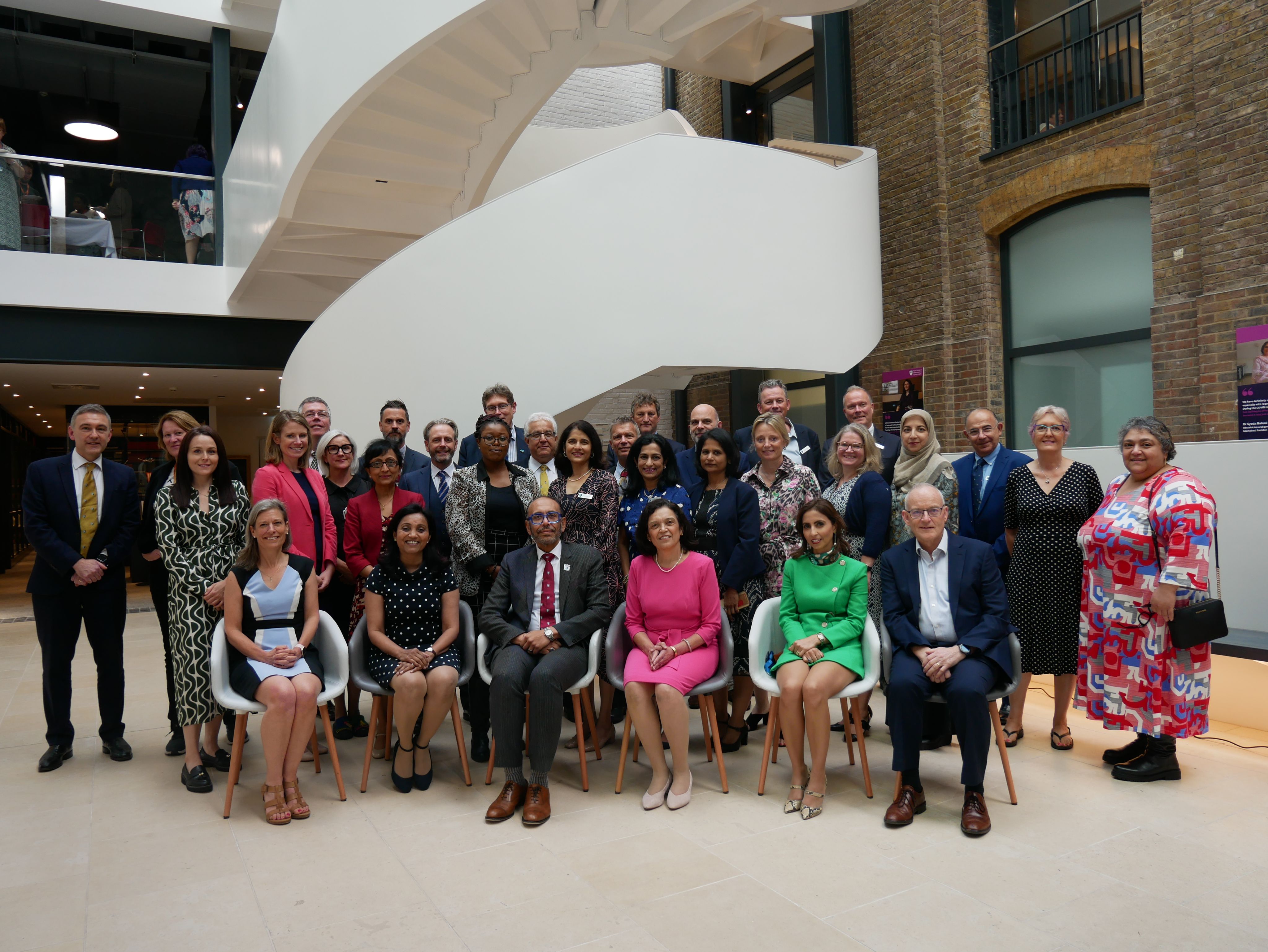
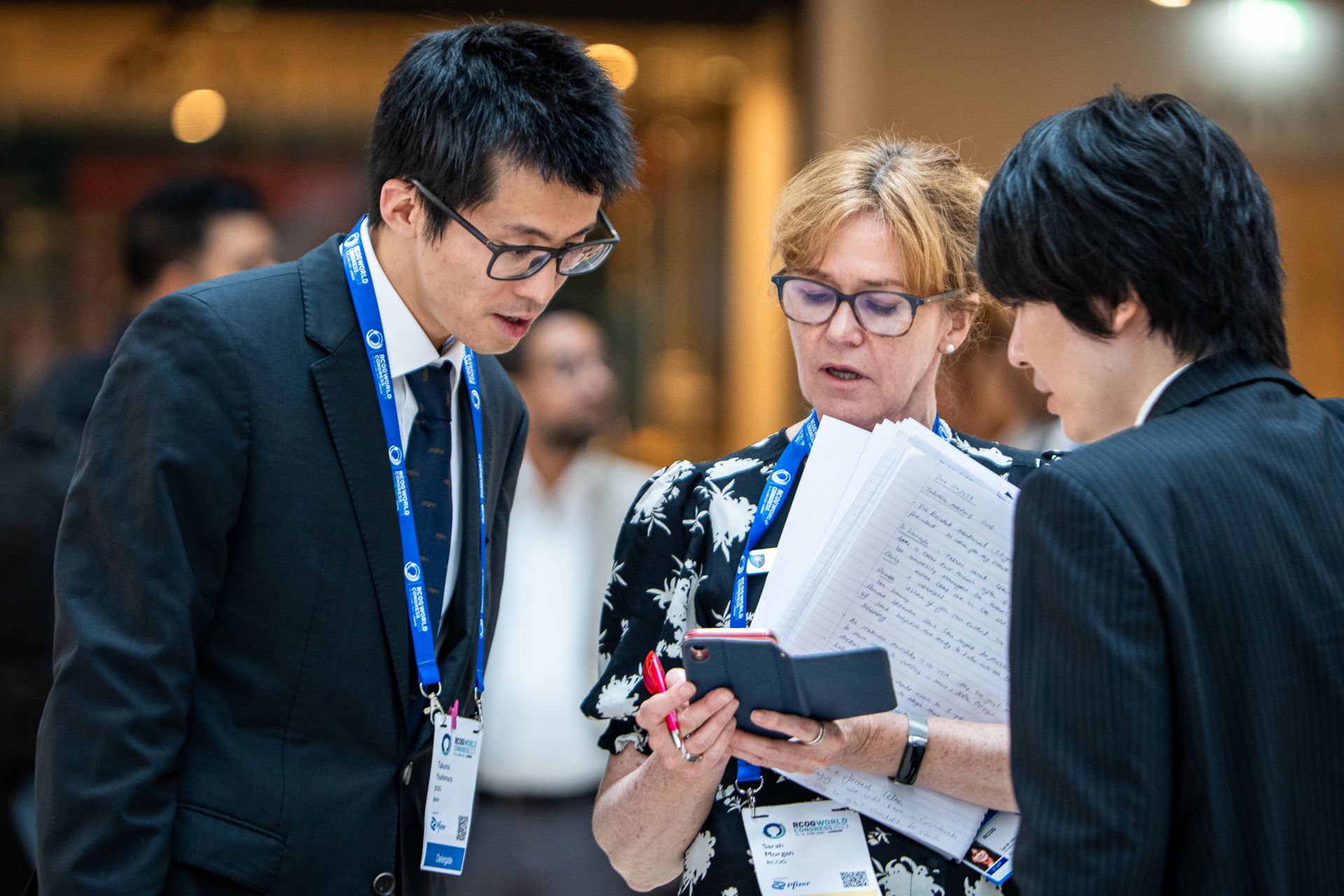
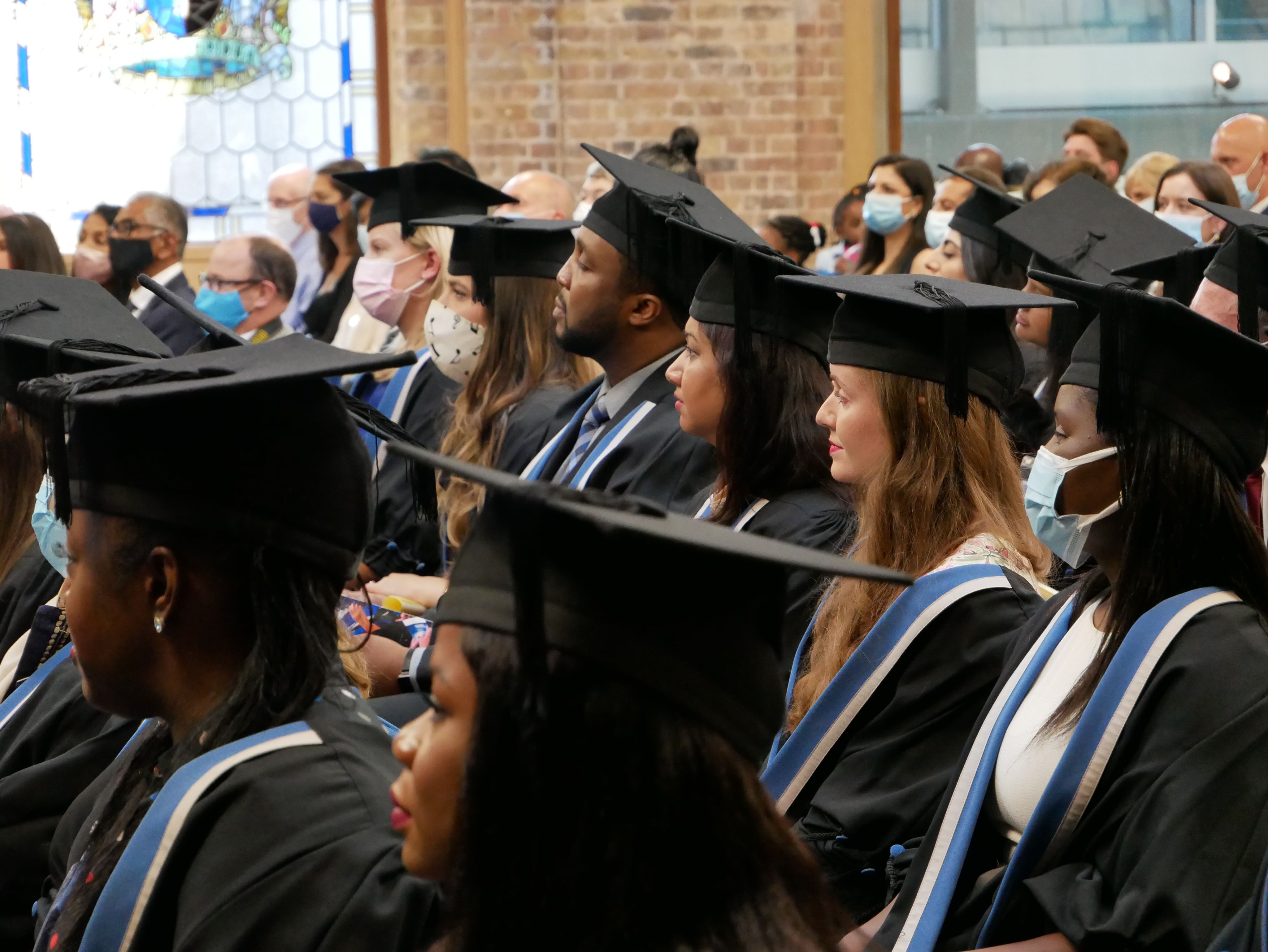
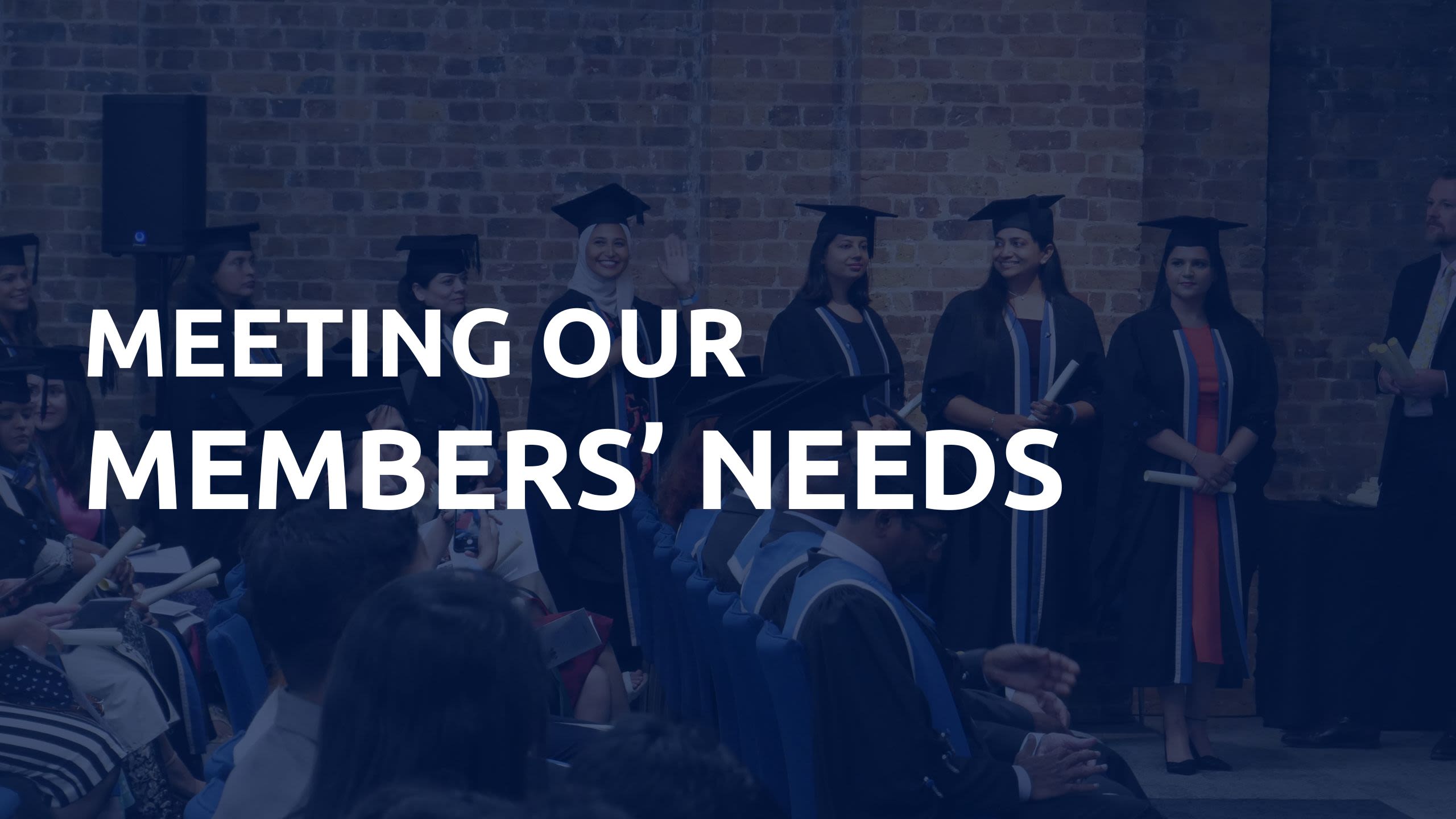
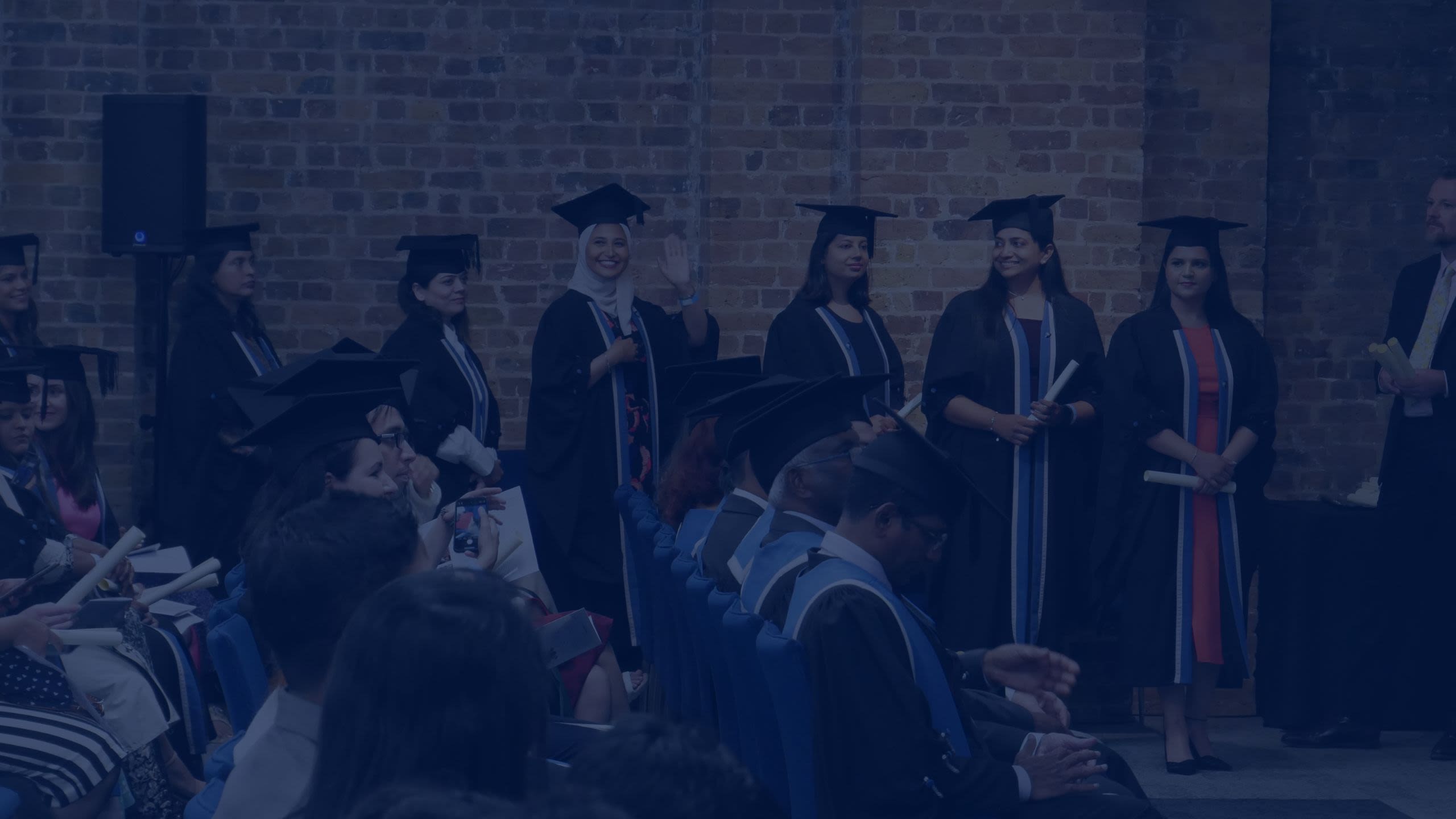

GOAL ONE
We will develop our membership offering to best meet the needs of our members globally and the women they serve and expand our reach across the international O&G community.
Advancing practice around the world
There are now more obstetricians and gynaecologists trained to the highest standards around the world – which means more women and girls are receiving the highest standards of care.
In 2022/23, membership of the RCOG grew by 5% to 17,511. In the four years since we launched our current strategy, the key focus of which being growth of our global membership, it has increased by 15% overall.
The College’s membership is truly global with 52% of members based in the UK and 48% based in 125 countries around the world.
Scroll through the map for more information on where our members are based.
The UK: 9,129 (52%)
Europe: 635 (4%)
Americas: 637 (4%)
Middle East and North Africa: 1,431 (8%)
Africa: 529 (3%)
Asia: 4,112 (23%)
Oceania: 1,038 (6%)
The College’s accreditation programme is helping to develop more O&G specialists around the world. We have partnered with international hospitals so they can become accredited providers of our speciality training programme.
New partnerships include hospitals in Kerala and Delhi in India, with ambitious programmes to deliver training to up to 65 doctors over the next three years.
In the United Arab Emirates, the College’s partnership programme at the Corniche Hospital in Abu Dhabi has successfully moved into its second year of delivering RCOG-accredited advanced training.
Providing the training and guidance professionals need to excel
The College has developed a new O&G curriculum to ensure clinical practice is ready for what the future holds. O&G Curriculum 2024 will train doctors in emerging skills and modernised ways of working. After a three-year review, which included comprehensive consultations with our membership, the new curriculum has been approved by the General Medical Council (GMC) and will launch across the UK in August 2024.
The RCOG was the first College approved to implement the new GMC portfolio pathway. This is a flexible assessment process for doctors to demonstrate the standards of knowledge, skills and experience required to practice as an eligible specialist in the UK. The assessment offers an alternative way to become a GMC registered O&G specialist.
By supporting this change in assessment, the College is helping to harness global expertise and talent, while maintaining quality and standards.
The College published 15 pieces of new evidence-based guidance and patient information, helping the membership and the women and people they care for expand their skills and knowledge. This included Green-top Guidelines on recurrent miscarriage and the management of nausea and vomiting in pregnancy.
More than 600 delegates from 88 countries attended the RCOG World Congress 2023 at the RCOG office. Another 1,600 joined virtually for the three-day event , where speakers shared a wealth of O&G scientific research, best practice and knowledge with practitioners from around the world.
Topics included ‘Challenges and inequalities of maternity care’ and ‘Violence against doctors’. Sessions also included presentations from RCOG Women’s Network members, focusing on sharing lived experience and patient perspectives on a range of topics across O&G.
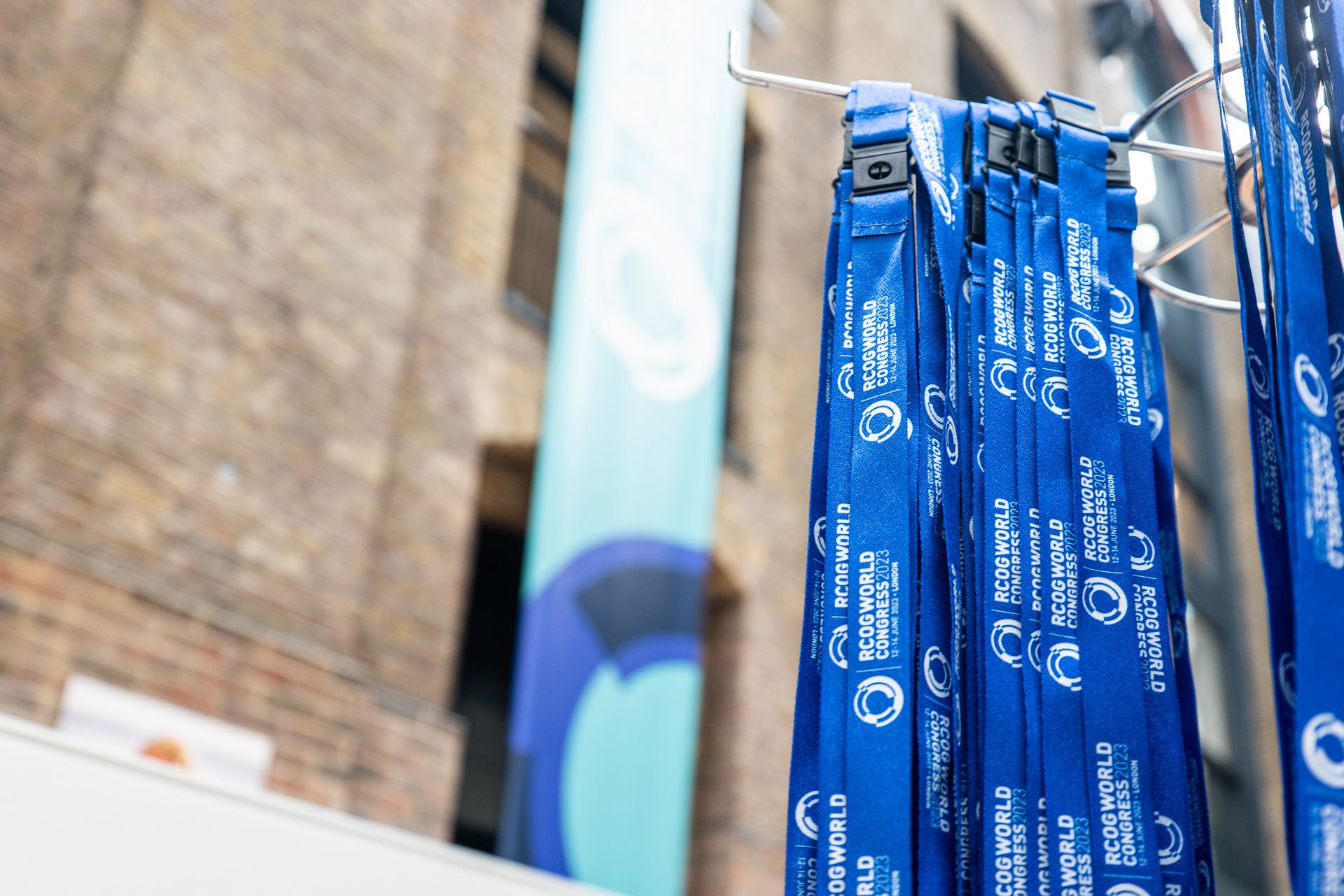
Ursula Blyth is a Junior Registrar currently working at the John Radcliffe Hospital in Oxford. Here, she shares her experience of the 2023 Five Countries Annual Meeting in the Netherlands, after being awarded a trainee bursary to attend the event.
"I was looking for an opportunity to broaden my perspective while I’m training when I read about the Annual Meeting in a College email. This meeting is a gathering of O&G trainees and consultants from the UK, France, the Netherlands, Germany and Belgium. To be eligible for a bursary, you had to submit an essay about innovative solutions to the current issues of gynaecology in the UK. I felt I had quite a lot to say, particularly from a training perspective, so I went for it. I was thrilled to be accepted.
The focus of the event this year was the O&G training experience in the different countries that were represented. Trainees gave presentations, which were followed by discussion, where we shared opinions and solutions."
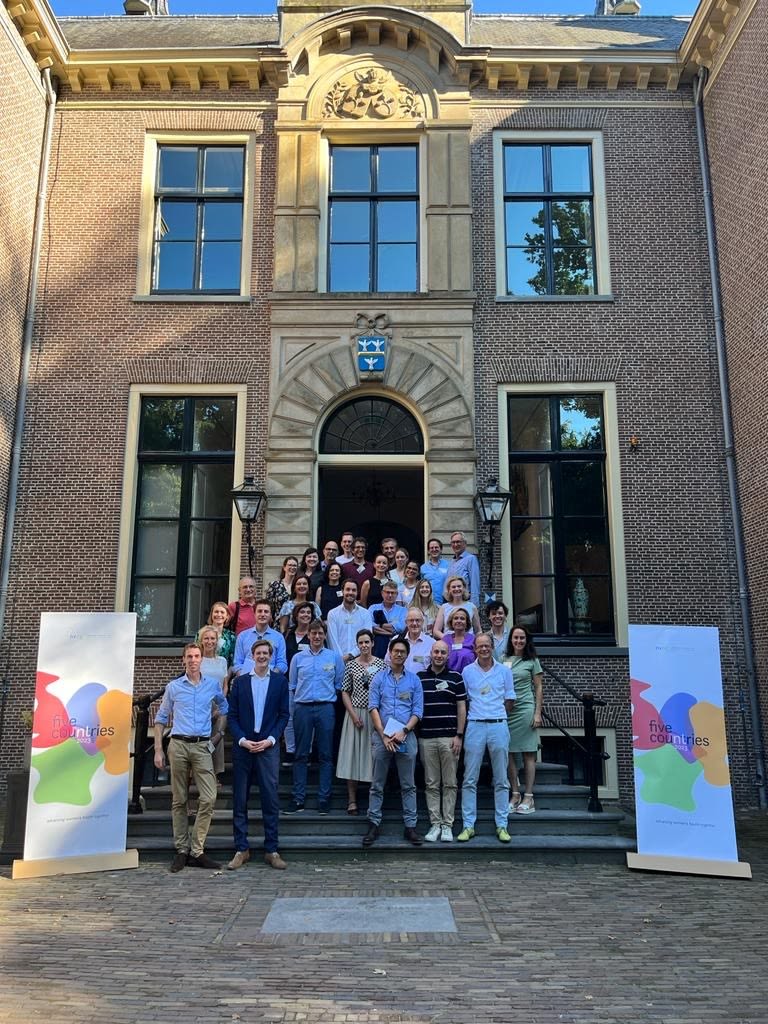
"The College’s training programme stood out"
"We have lots in common as trainees – and some considerable differences. For example, in other parts of Europe, it’s routine for a gynaecology examination to include an ultrasound. So the trainees are competent in ultrasound scans, which is something there’s less of a focus in the UK.
The College’s training programme stood out as being very thorough. Wherever you are, whatever hospital you're in, there's a standard that's expected and a very clear curriculum for trainees to follow.
I wasn’t expecting to have so much one-on-one time with the College President and Vice President at the annual meeting. It was an amazing opportunity. They took such an interest in my training and thoughts on the new curriculum.
I’d say to anyone who’s eligible to apply for a College award or bursary, it’s definitely worth it. There's nothing to lose and a huge amount to gain. I've had such a great experience. Winning the bursary and being part of the event really did boost my confidence."
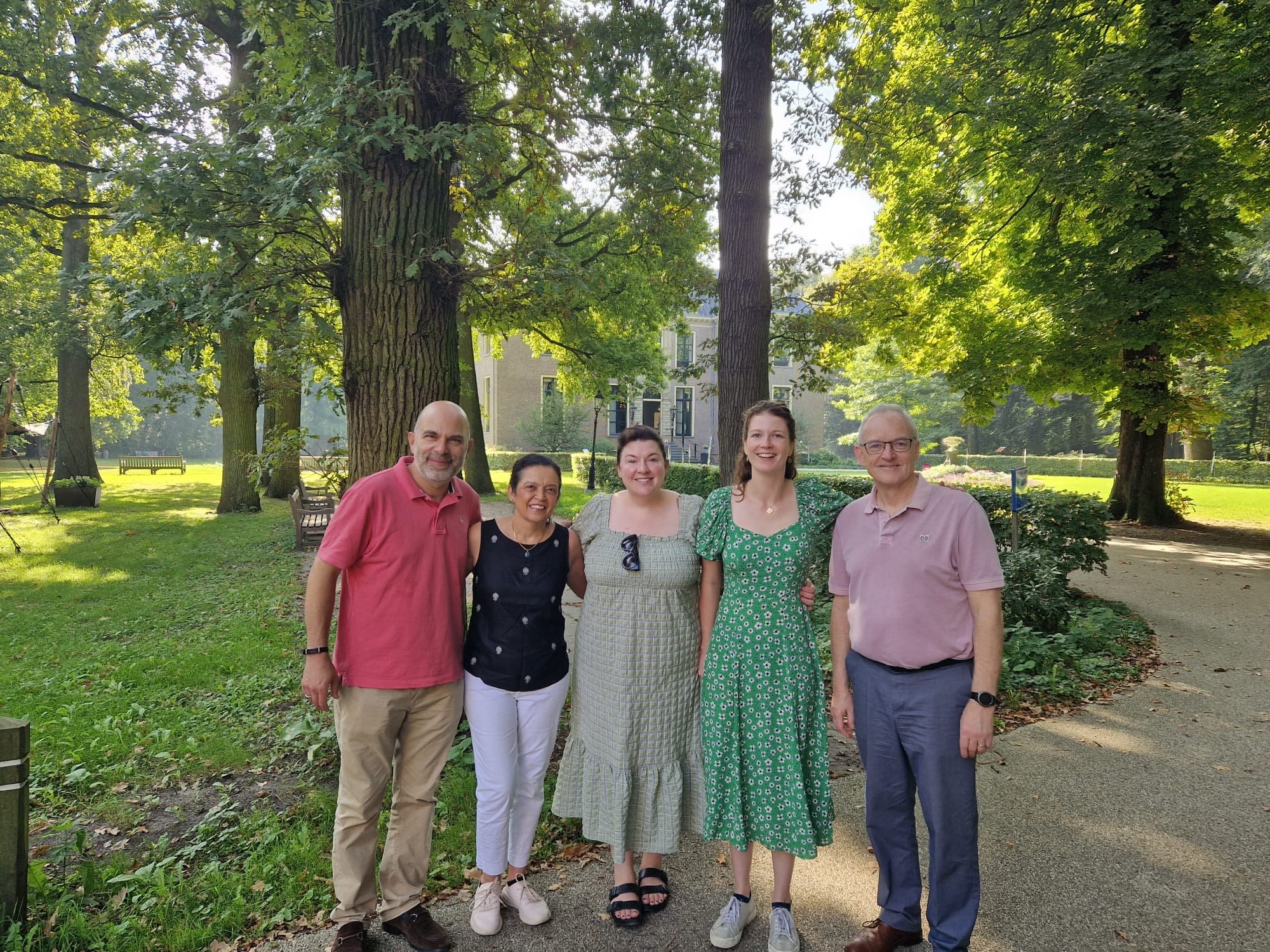
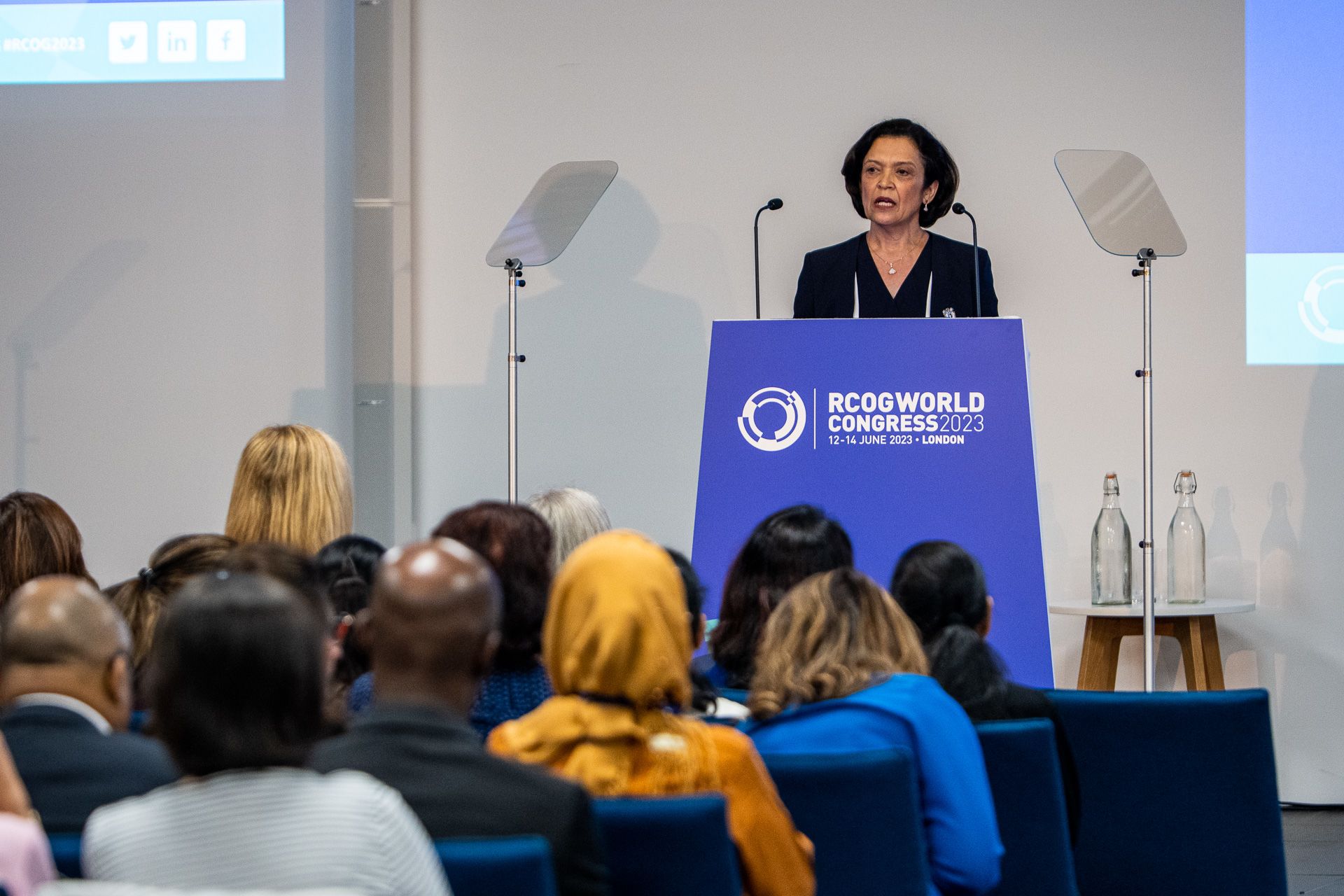
Goal one: We will develop our membership offering to best meet the needs of our members globally and the women they serve and expand our reach across the international O&G community.
To meet this goal in 2024, we will:
Continue to grow the College's international membership
We will work collaboratively with IRCs to support the needs of doctors around the world, so that more women and girls can access improved care.
Help train more O&G specialists around the world
The College will work with international partners to become accredited RCOG training centres of excellence, focusing on the Middle East, Malaysia and India.
Launch a project to improve O&G surgical training in the UK, focusing on cutting-edge technologies, like robotics and artificial intelligence (AI)
The aim is to improve the training experience for practitioners and quality of care for patients.
Launch the new O&G Curriculum 2024
This will provide the framework for flexible training programmes that are needed to develop versatile specialists who meet the needs of women and girls.
Advance racial equity within the O&G workforce in the UK
by listening to members, raising awareness and sharing examples of good practice that can overcome differential attainment (the gap in achievement of different groups of people) and workplace discrimination.
Expand wellbeing support for members to tackle issues around burnout.
This includes continuing to develop the RCOG Supporting our Doctors service, which provides peer-to-peer wellbeing support.
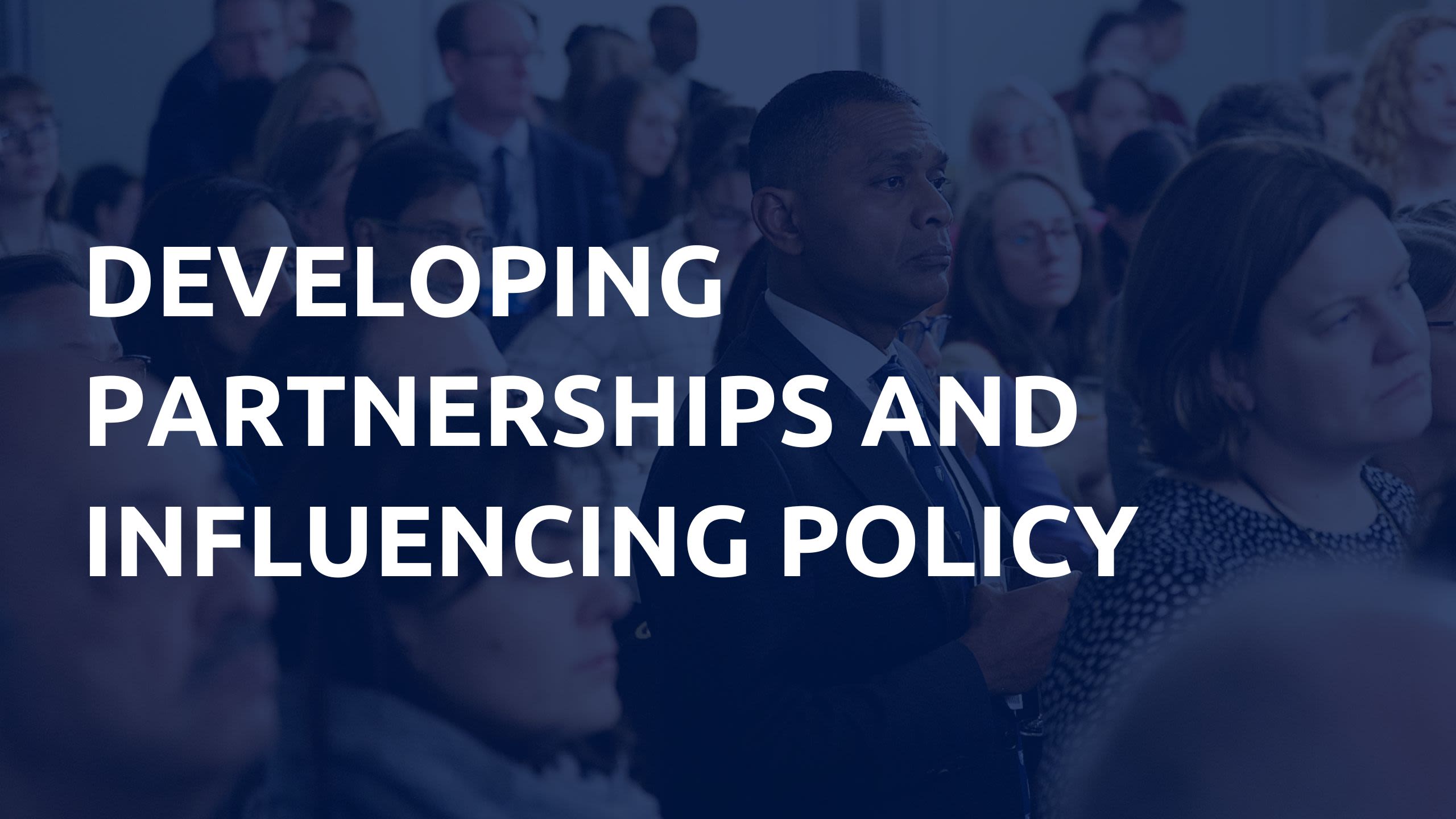
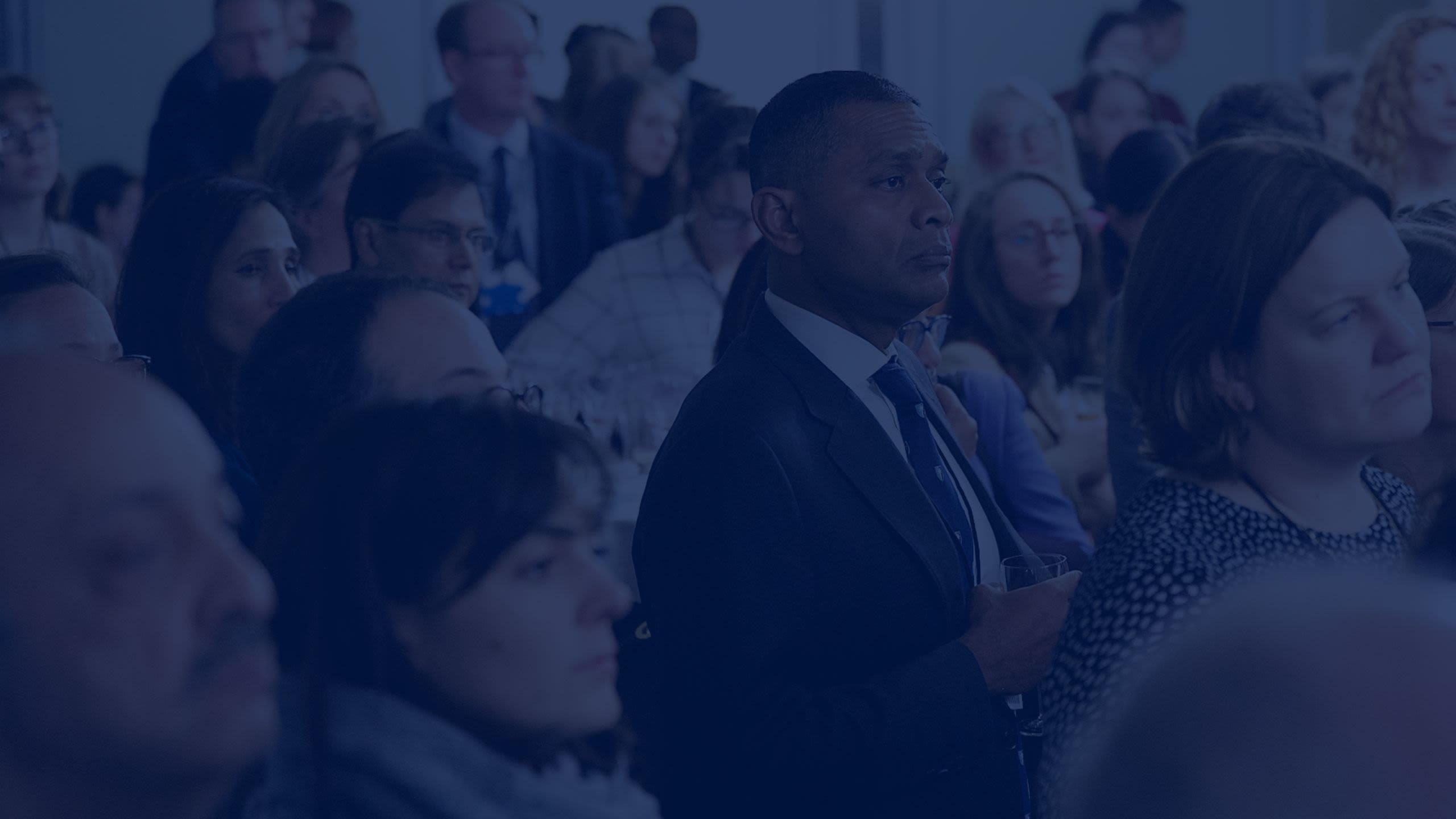

GOAL TWO
We will leverage our strong brand and world-renowned reputation to develop partnerships and influence UK and international policy to improve women’s health globally.
Improving maternity safety
NHS England announced that the College’s obstetric anal sphincter injuries (OASI) Care Bundle will be offered to people using new multidisciplinary pelvic health clinics across England. It includes four recommendations for medical teams to reduce the risk and impact of a severe OASI during childbirth.
The College provided the UK Government with a prototype Obstetrics Workforce Planning Tool to support the health system to address pressing workforce shortages. This will help them to understand how many obstetricians are needed to safely run a maternity unit in England.
The College continues to collaborate with academic and charity partners as part of the Tommy's National Centre for Maternity Improvement to trial a digital tool developed to support clinical decision making.
The College has co-developed a programme to support maternity units with tools and training to reduce avoidable brain injuries at birth. The Avoiding Brain Injury in Childbirth (ABC) programme was co-designed with maternity staff and those using maternity services. It’s a collaboration with the Royal College of Midwives, The Healthcare Improvement Studies (THIS) Institute and RAND Europe.
An online maternity safety hub has been developed for the RCOG website. It draws together the College’s work to help make sure practitioners can deliver safe, high-quality maternity care and raise the standards of professional practice globally.
Influencing policy
The RCOG Getting Back on Track report has contributed to parliamentary debate on increasing investment in comprehensive sexual and reproductive health and rights (SRHR) globally.
The report calls on the UK Government to invest £500 million a year for the next three years in SRHR programmes and contraception supplies. Sarah Champion MP, Chair of the International Development Committee, led a Commons debate on the importance of UK aid for global SRHR, highlighting several recommendations from the report.
The College successfully lobbied MPs and peers to introduce safe access zones around abortion clinics in England and Wales. The new law bans any activity within 150 metres of clinics that could influence, distress or obstruct anybody accessing, providing, or facilitating abortion care.
The RCOG report, Left for too Long, made a series of recommendations for the UK Government and NHS to reduce gynaecology waiting lists and improve services. The College used this insight to submit written and oral evidence to the House of Commons Women and Equalities Select Committee inquiry into women’s reproductive health. The evidence highlighted the challenges faced by gynaecology services.
Evidence from the College is informing the inquiry into the COVID-19 pandemic. It is helping the inquiry identify how the needs of women, particularly those who are pregnant, could be better supported in any future health emergency.
The College’s report, Better for Women, recommended that each of the four UK nations publish a strategy to address areas of unmet need for women’s health. Now, thanks to the College’s advocacy work in this area, all UK nations have published, or are actively developing, women’s health plans based on our report. These aim to improve the health outcomes of women and girls.
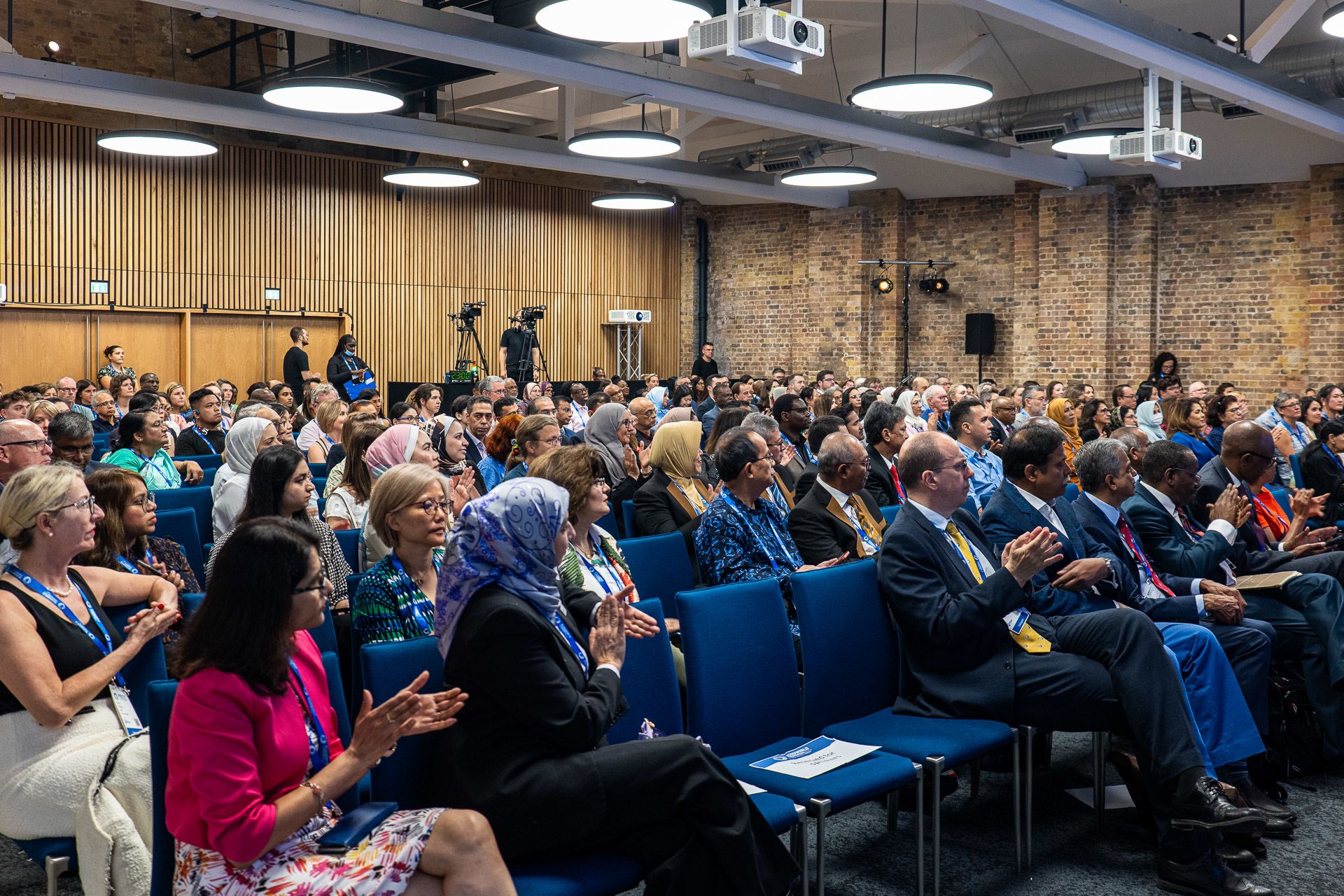
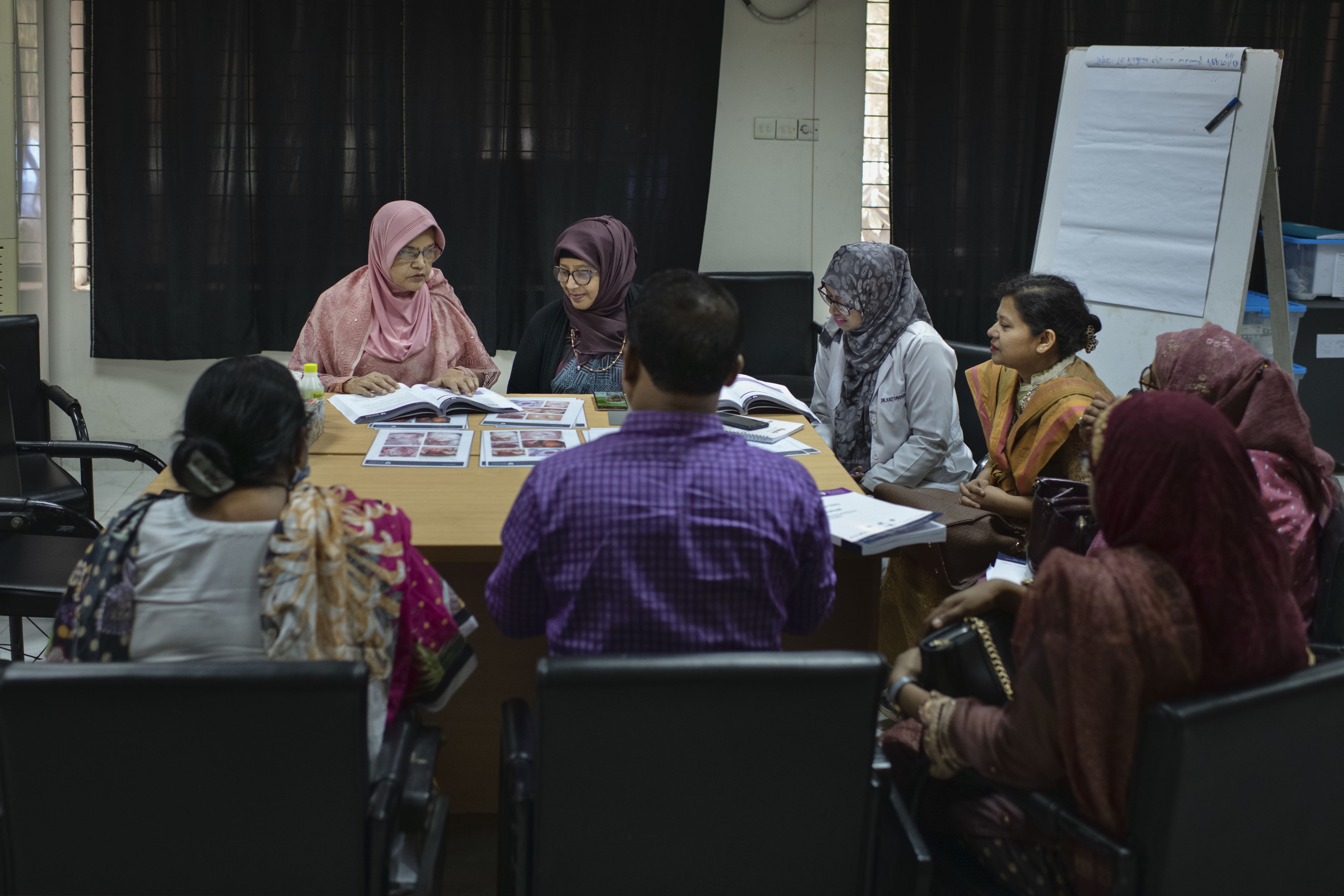
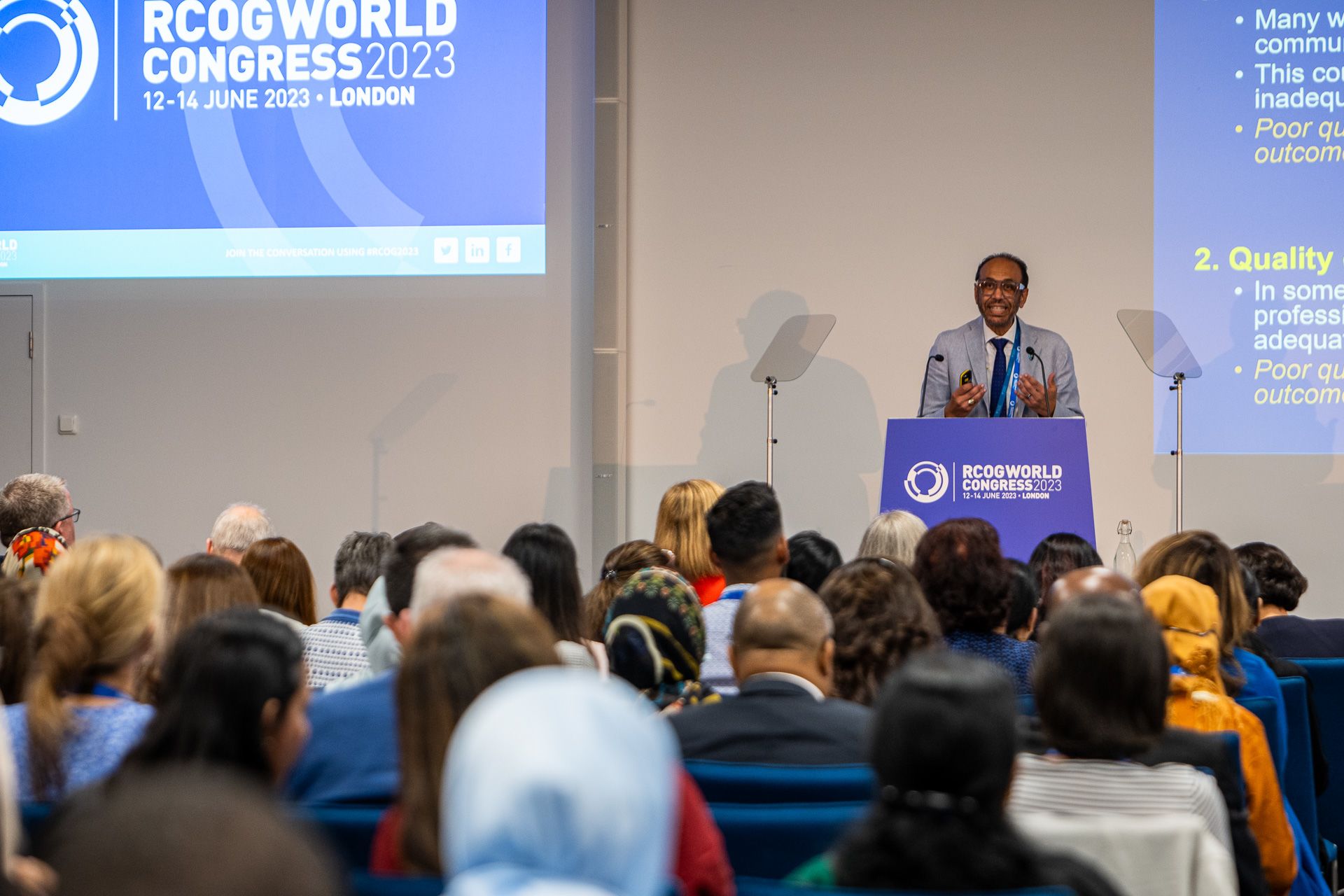
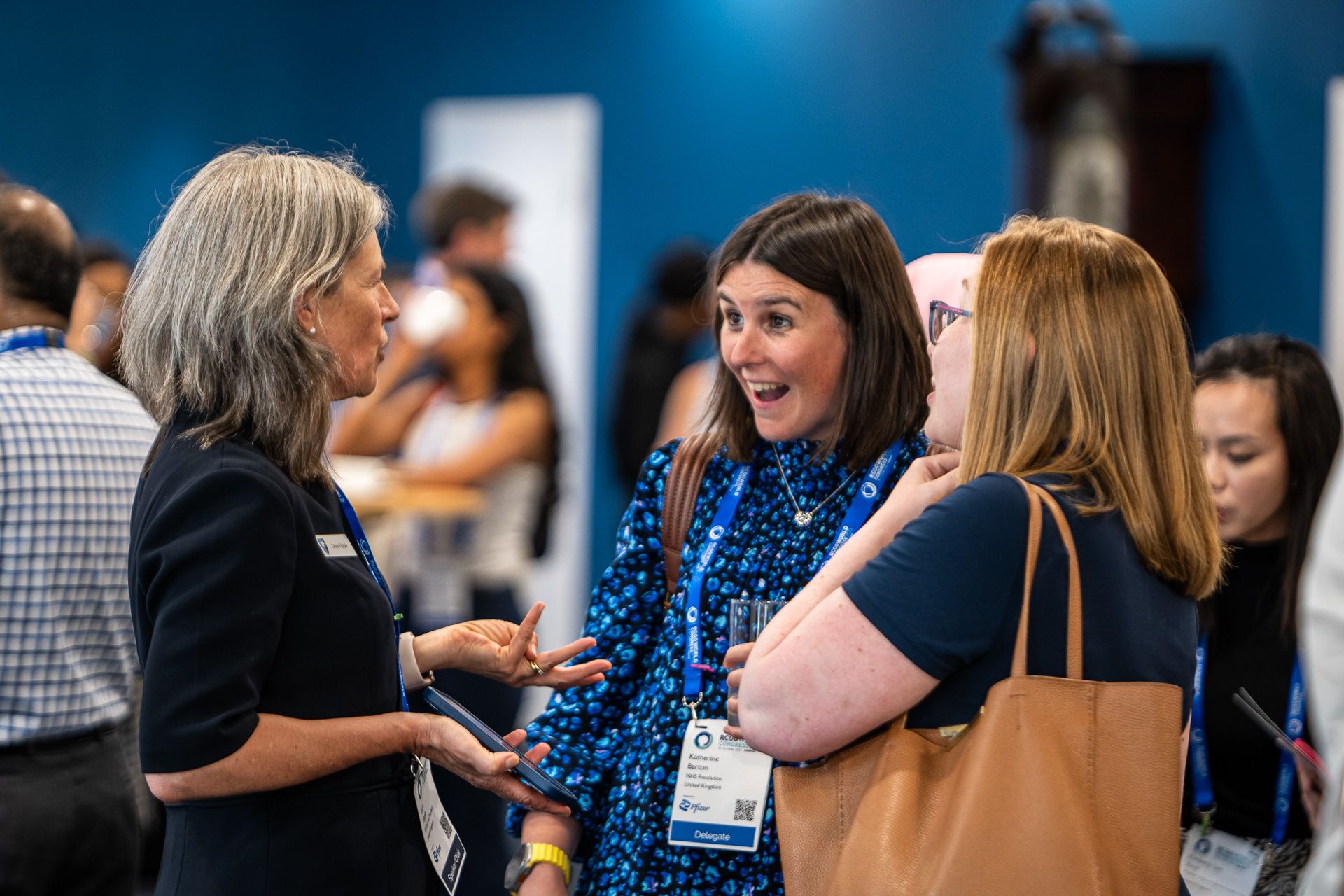
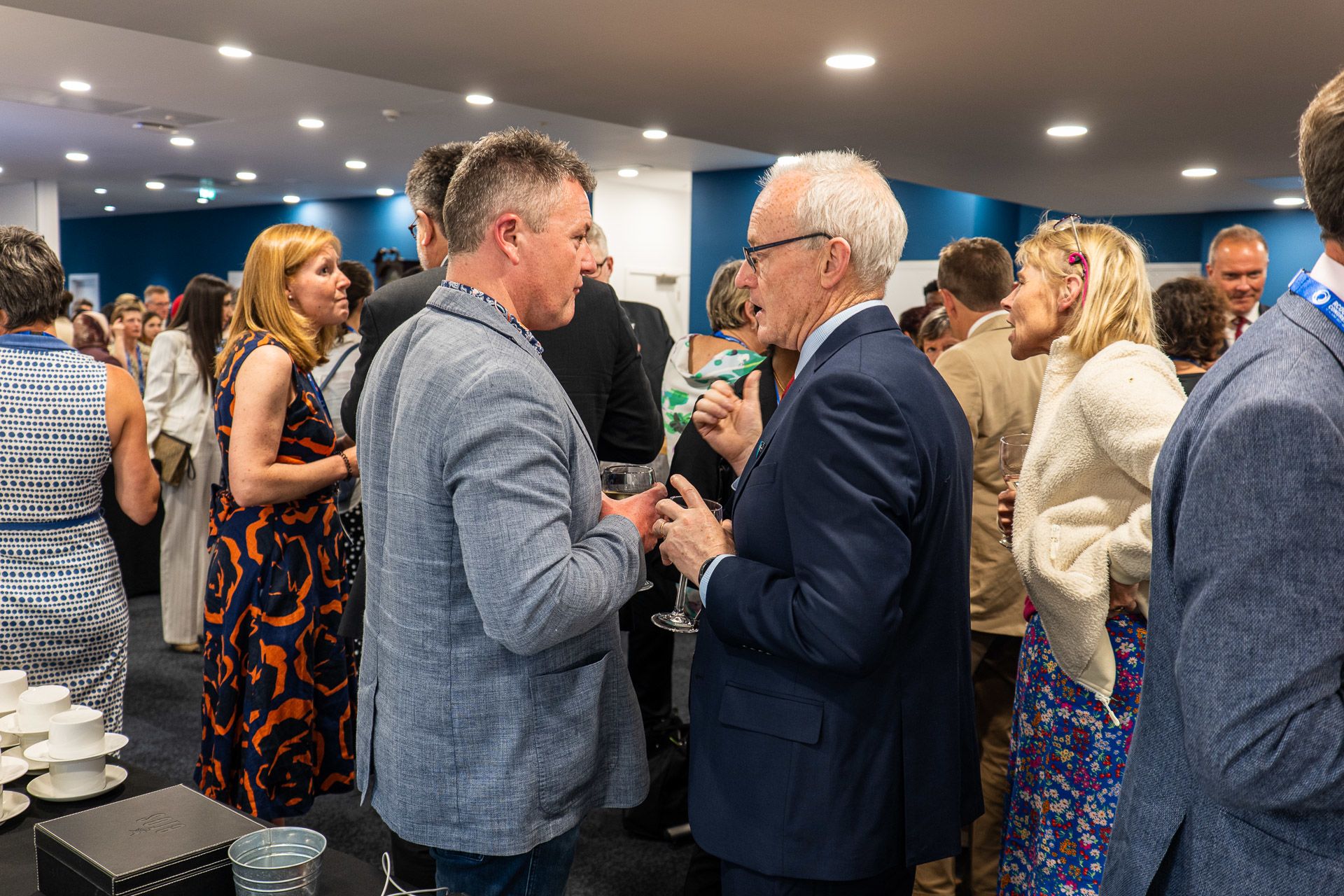
Improving women's health globally
The College is increasing the influence of its international advocacy work through ‘consultative status’ with the Economic and Social Council (ECOSCO) of the United Nations (UN) which was granted in early 2023. It means we can directly participate in the UN’s work, sharing our research and forging partnerships with governments and others to improve the health of women and girls around the world.
More than 200 million girls and women alive today have gone through some form of FGM, and a further 68 million are at risk of being cut by 2030. To address this, the RCOG is delivering training to doctors, which outlines the clinical, cultural, religious and legal foundations for the eradication of FGM.
In May 2023, 31 people took part in RCOG pilot training for healthcare professionals to better equip them with knowledge, understanding and skills to combat FGM. Some 97% of participants felt that the training improved their confidence in challenging medicalised FGM.
Through developing a network of anti-FGM champions in Egypt and collaborating with local NGOs, the RCOG will ensure that doctors advocating for change have the opportunities, training and support they need to eradicate this human rights abuse.
The College’s Making Abortion Safe programme has increased the knowledge of over 3,000 healthcare professionals from around the world on quality abortion care. They have accessed online training on everything from post abortion contraception and surgical and medical abortion, to the vital role of healthcare professionals in advocating for increased access to quality abortion care.
The programme supports over 50 SRHR champions, healthcare professionals from across five countries in Africa, to advocate for increased access to quality abortion and post abortion care. They have reformed practice in Nigeria, Rwanda and Zimbabwe.
Tackling racial inequality
Black women are three times more likely to die during pregnancy or shortly afterwards than white women in the UK. The College’s work on racial inequalities in maternity care is increasing awareness. The College briefed parliamentarians for Black Maternal Health Awareness Week in November 2022 when there was a discussion in Parliament on the issue.
The College’s Levelling the Playing Field report, written for members, has shined a light on best practice in tackling racism and bias in the O&G profession.
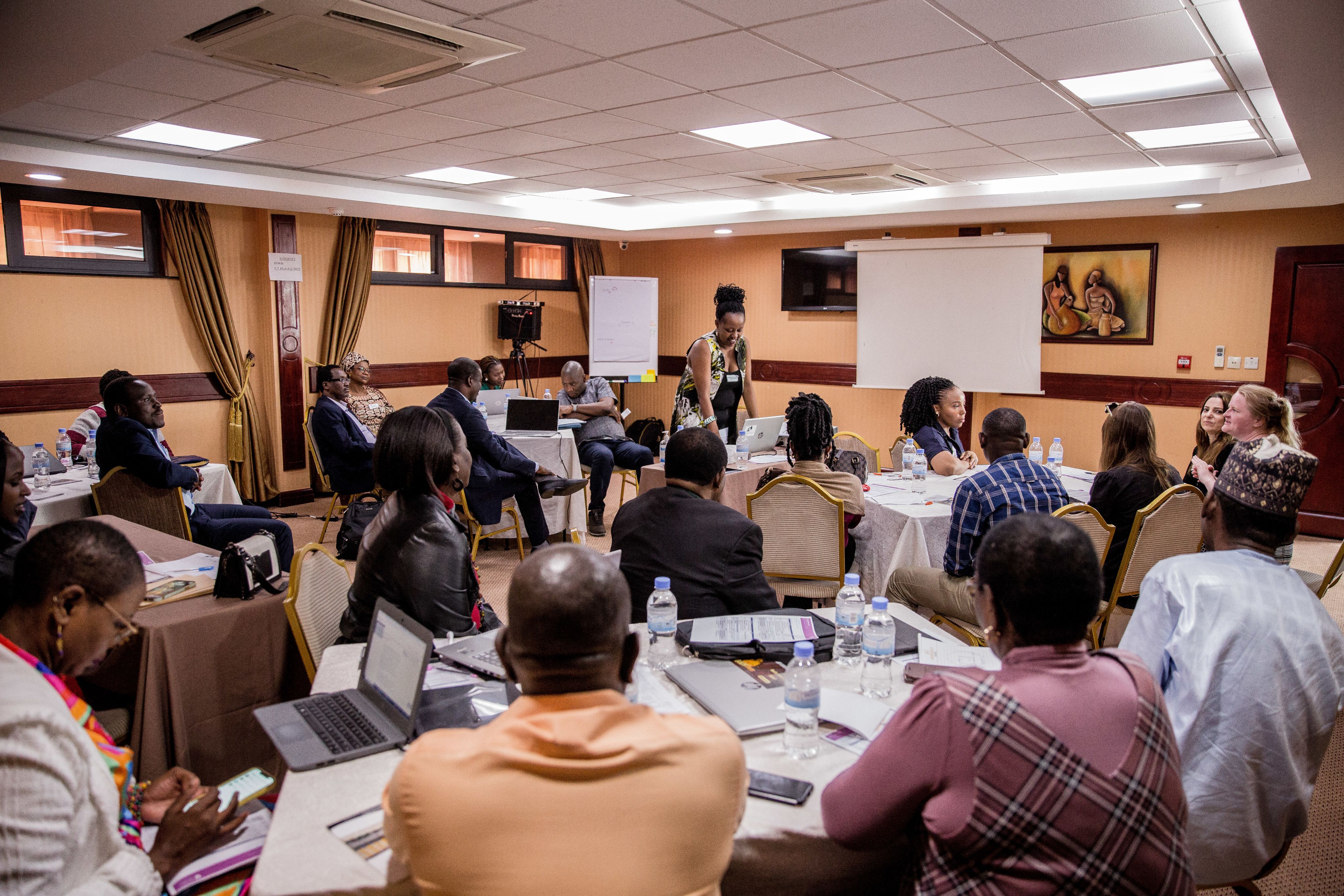
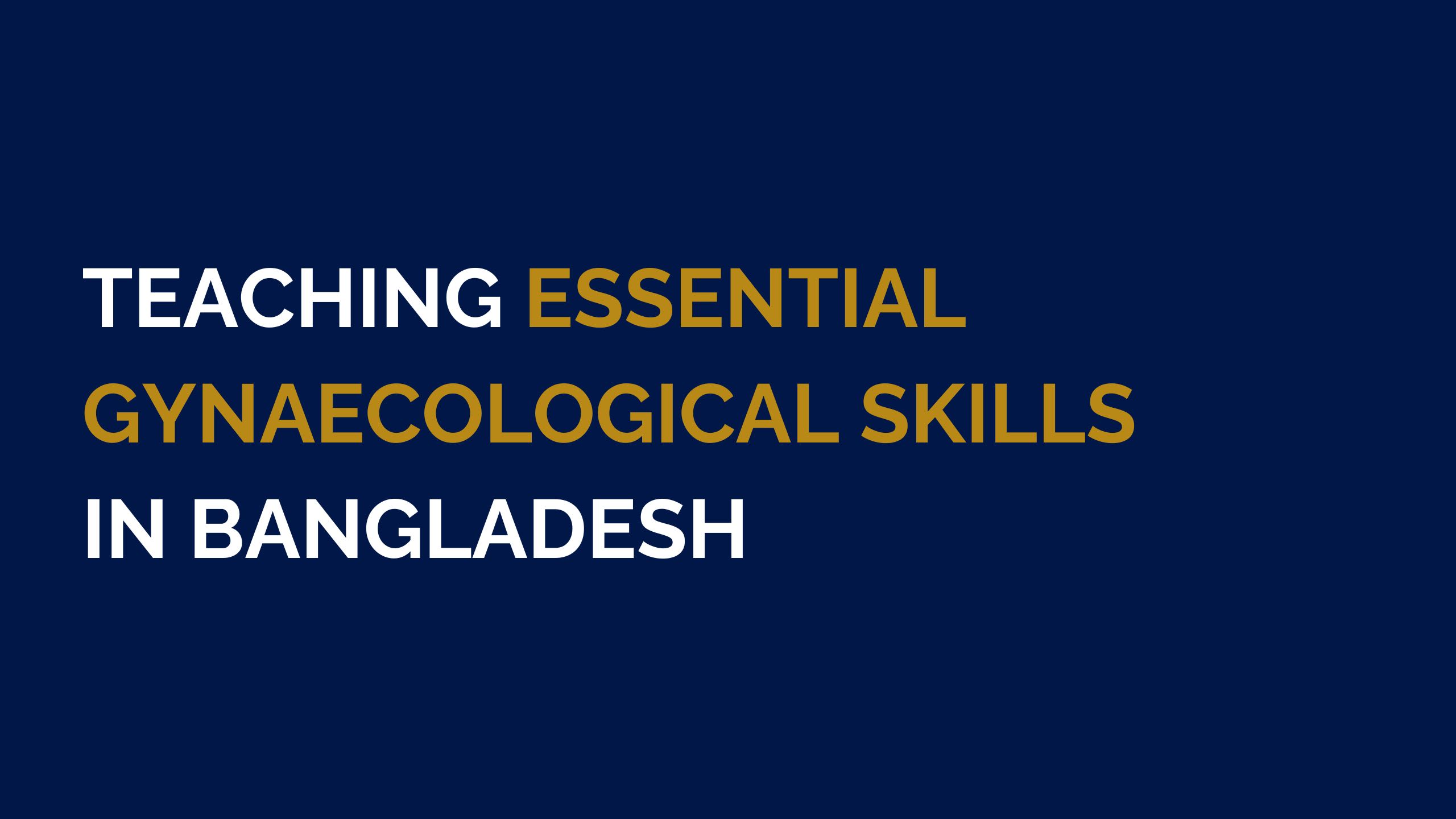
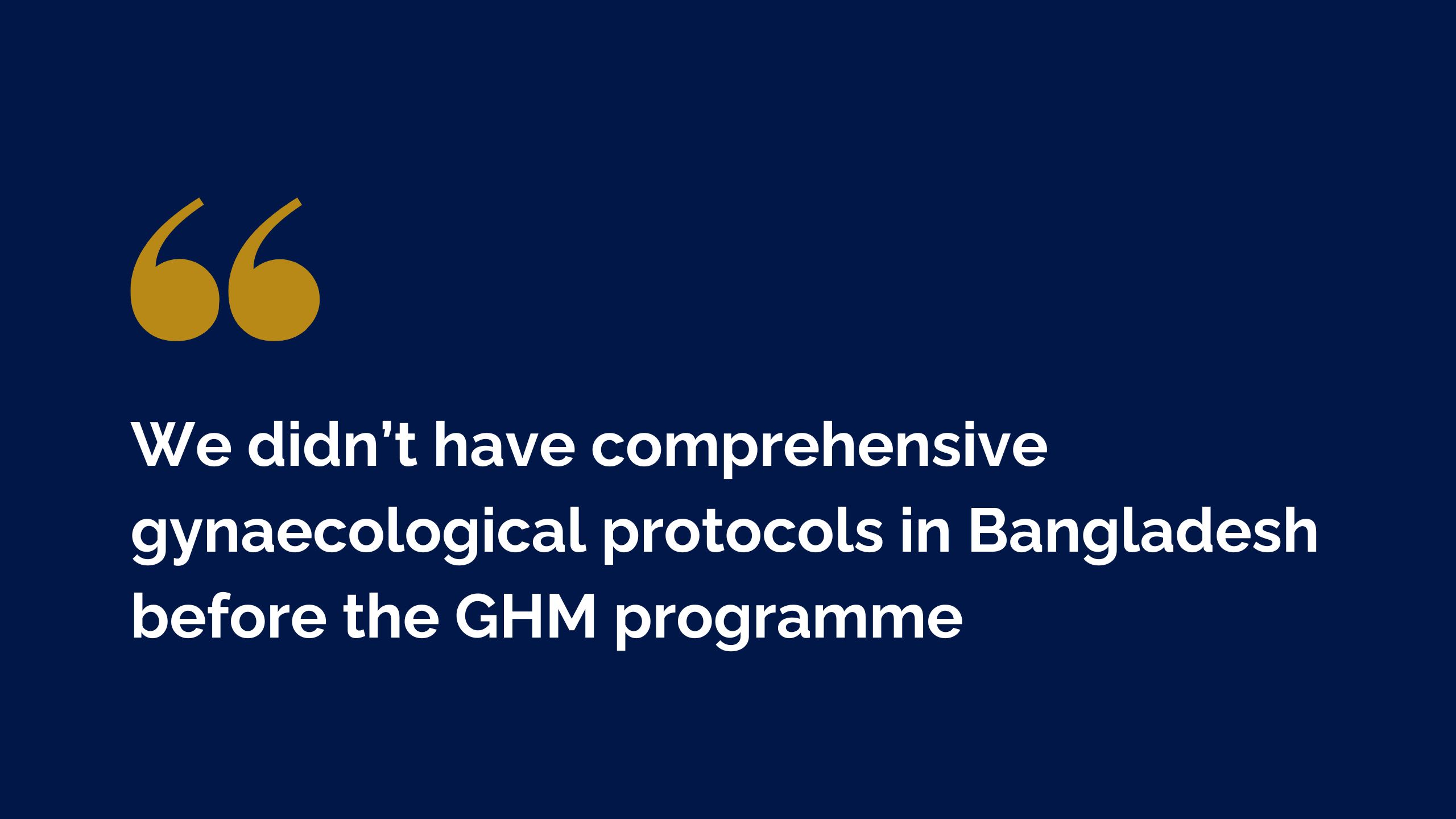
In Bangladesh, our Gynaecological Health Matters (GHM) programme supported 26 expert trainers to improve the gynaecological skills and knowledge of non-specialist health practitioners. They were trained by senior gynaecologists from the Obstetrical and Gynaecological Society of Bangladesh. The expert trainers then trained 78 health professionals in two districts.
Dr Ashutosh is a senior consultant in O&G based at a hospital in Dinajpur and one of the expert trainers. He shares the impact of the training, including how it is being introduced around the country.
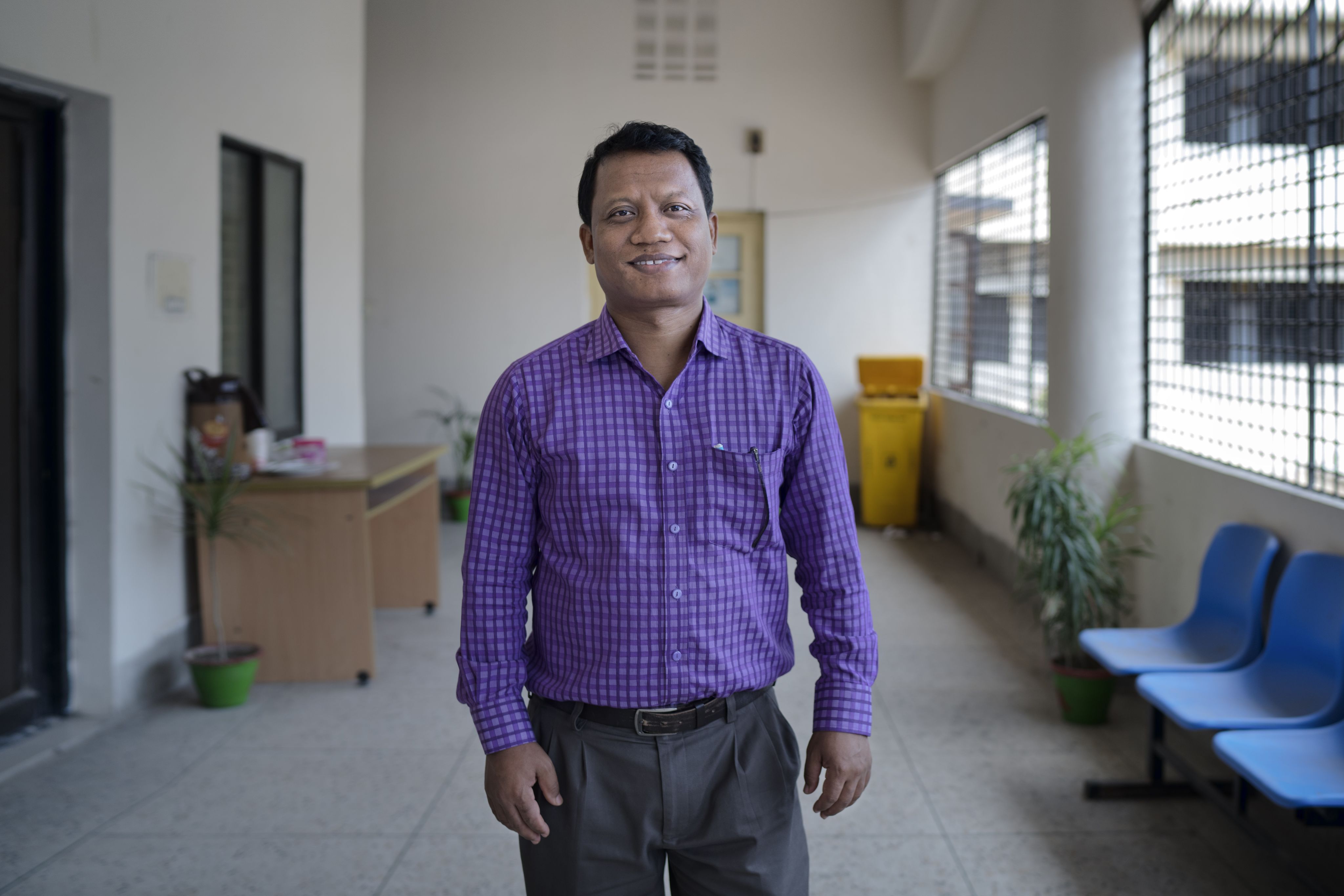
"When I got the call to ask me to be an expert trainer, I happily agreed.
As a gynaecologist, I know women and girls face various challenges in accessing gynaecological services, including limited awareness and resources, socioeconomic and cultural barriers and religious beliefs.
Many women and girls are shy to come for treatment. Male non-specialist doctors can also be shy when it comes to asking patients questions regarding gynaecological issues.
The Essential Gynaecological Skills (EGS) training is hands-on and includes role plays so that non-specialist doctors and nurses learn how to talk to patients and take their gynaecological history. It covers reproductive health, sexually transmitted diseases, gender-based violence, abnormal uterine bleeding, prolapse and contraception, based on RCOG protocols that have been adapted for Bangladesh.
We didn’t have comprehensive gynaecological protocols in Bangladesh before the GHM programme. I follow them in my own practice now, as well as teaching them to the people I train."
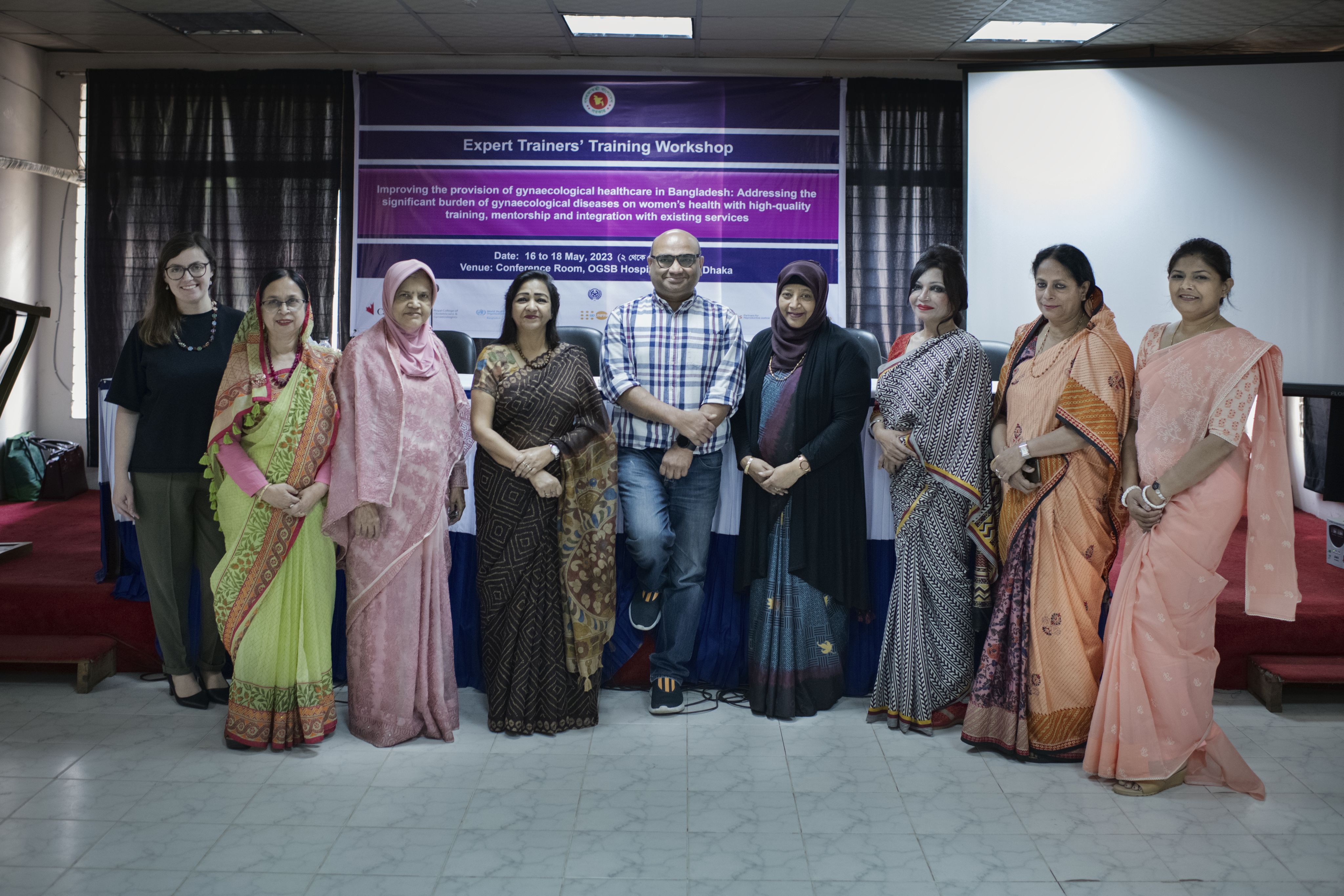
"More women and girls are being treated"
"I’ve trained 38 non-specialist doctors and nurses in the Dinajpur District. I use an evaluation tool to monitor the performance of the doctors and nurses that I’ve trained. It tells me that they consistently make correct clinical diagnoses and perform better when they manage emergency gynaecological cases.
We are documenting the women and girls that come to be treated. We didn’t do this in a structured way before the programme started. The figures show that more women and girls are being treated for gynaecological conditions each month. They are hearing from other women that, now, there is a private space to examine them and doctors are talking to them more freely.
I’m happy that the Bangladesh government plan to introduce this training in other districts. It will enhance the skills of non-specialist doctors and health professionals and improve healthcare for women and girls."
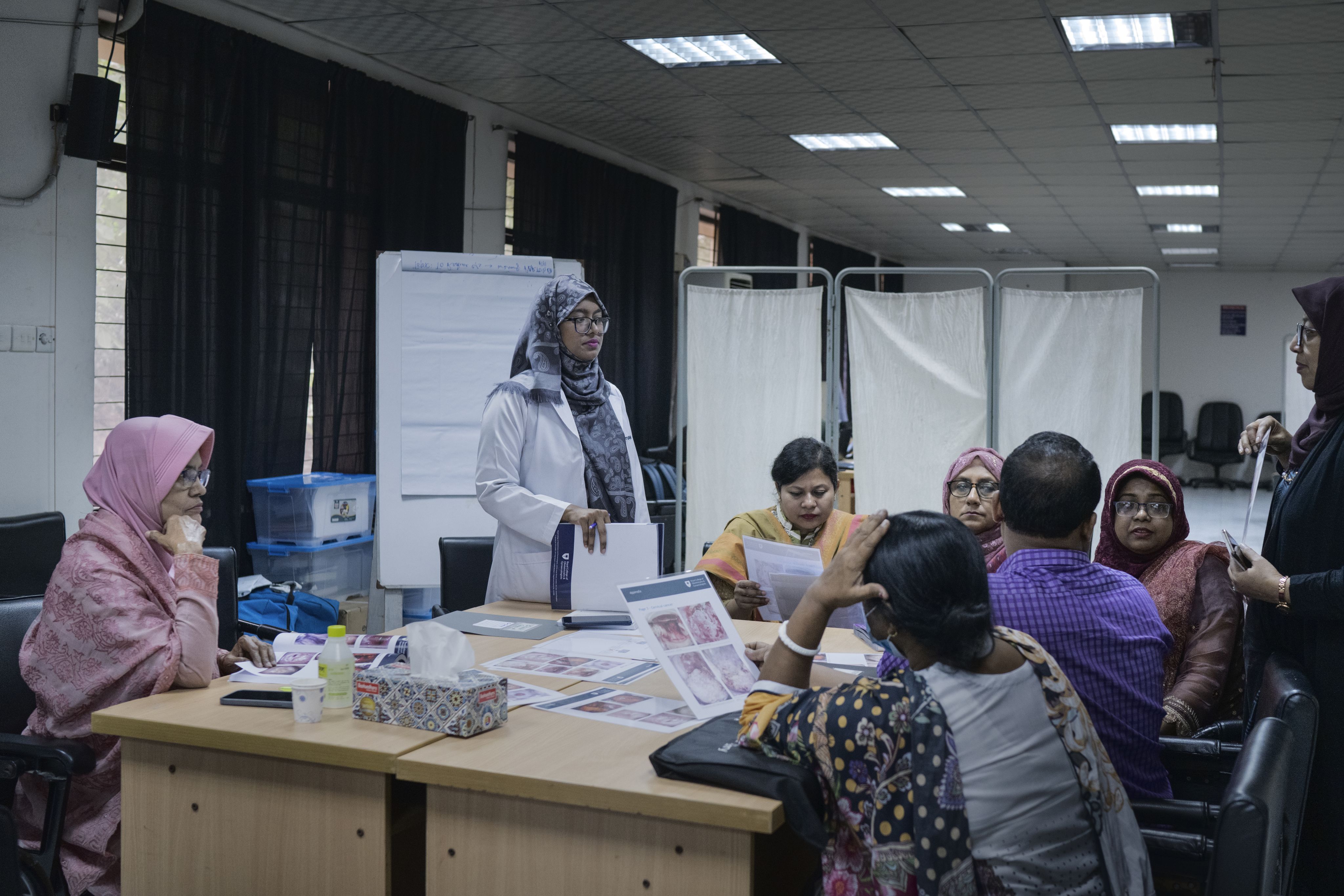
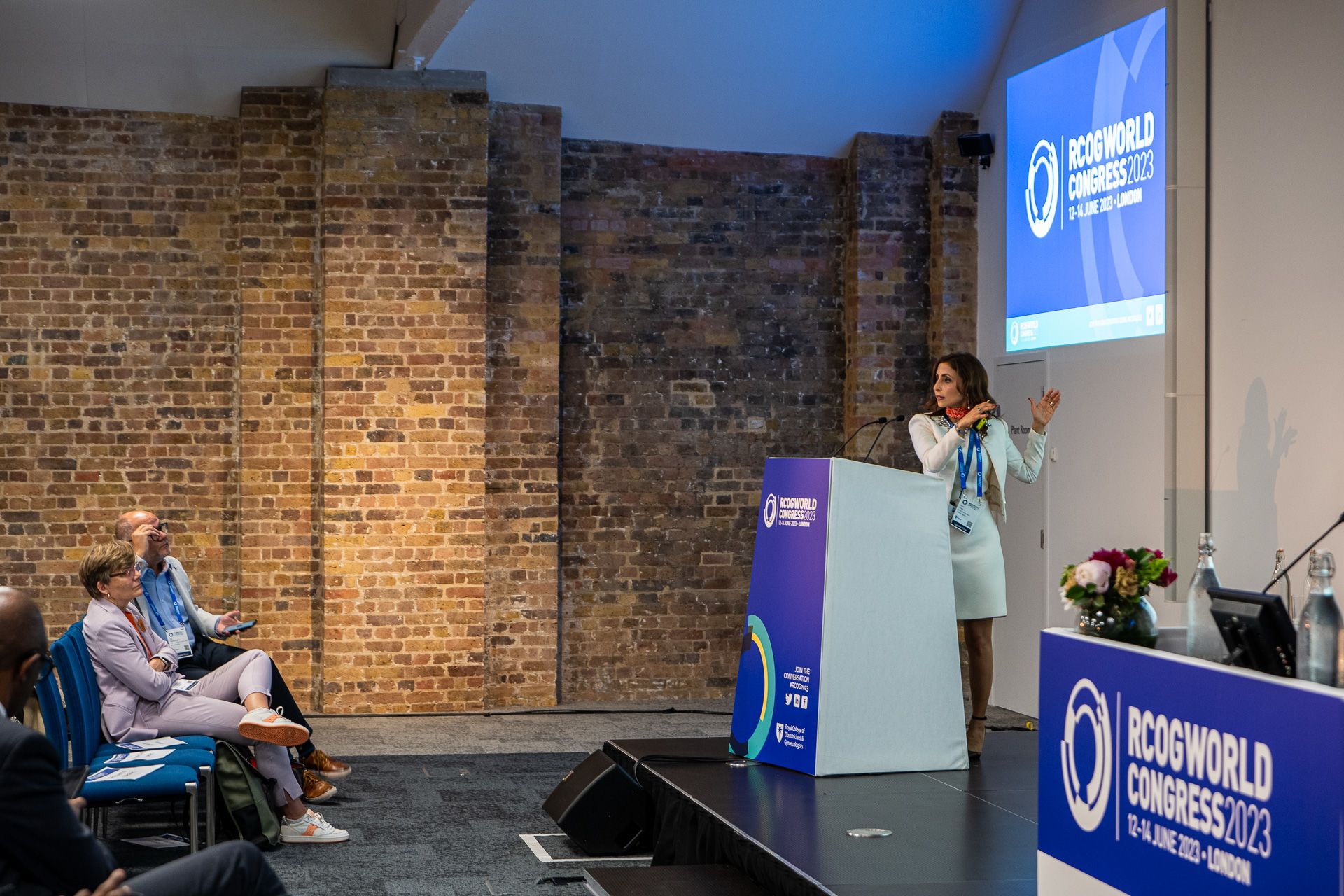
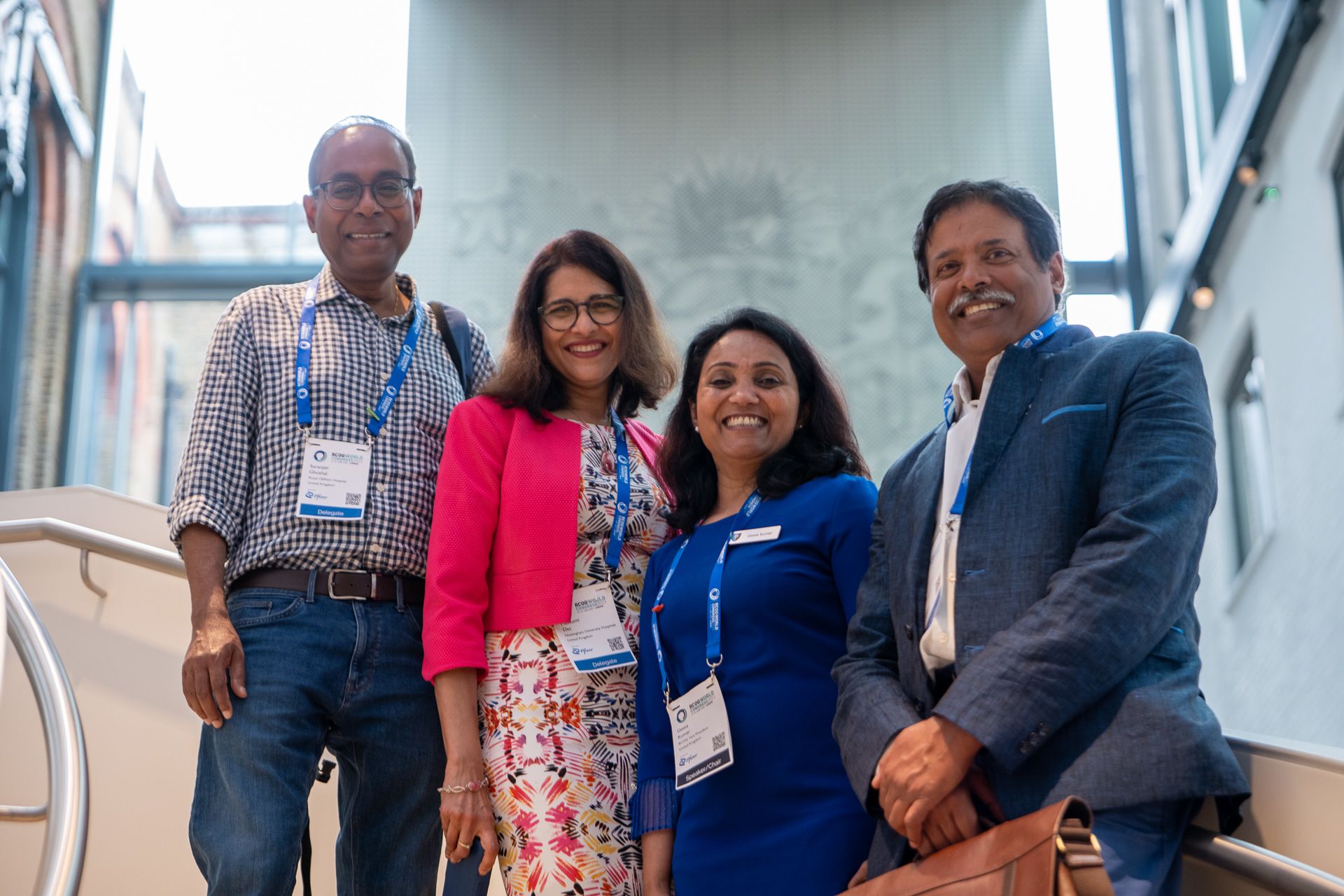
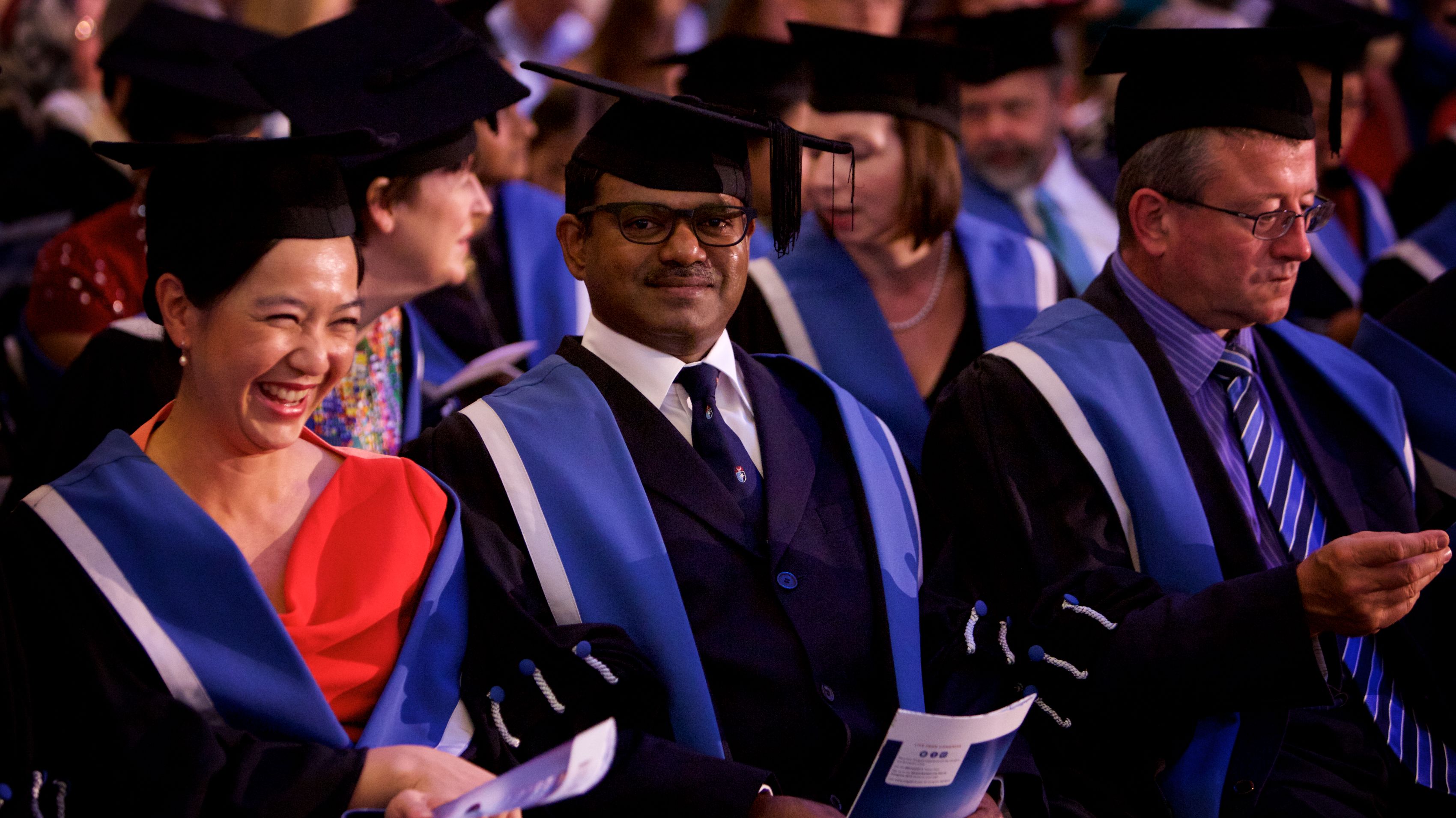
Goal two: We will leverage our strong brand and world-renowned reputation to develop partnerships and influence UK and international policy to improve women’s health globally.
To meet this goal in 2024, we will:
Support College members and the NHS to identify and put in place effective policies and initiatives to address gynaecology waiting lists.
We will work with our Women’s Network, which includes four clinicians and 10 people with experience of O&G services, and those with lived experience to inform this work.
Work with parliamentarians and partner organisations to identify legislative opportunities to decriminalise abortion in England, Wales and Scotland.
Currently, a woman can face up to life in prison for ending her own pregnancy.
Deliver new global health programmes,
including Gynaecological Health Matters in Nigeria.
Make sure the experiences of people who use maternity service form a key part of College work
to drive improvements in maternity safety, developing new initiatives and influencing policy and practice.
Start a new project to develop the College’s key research priorities in women’s health.
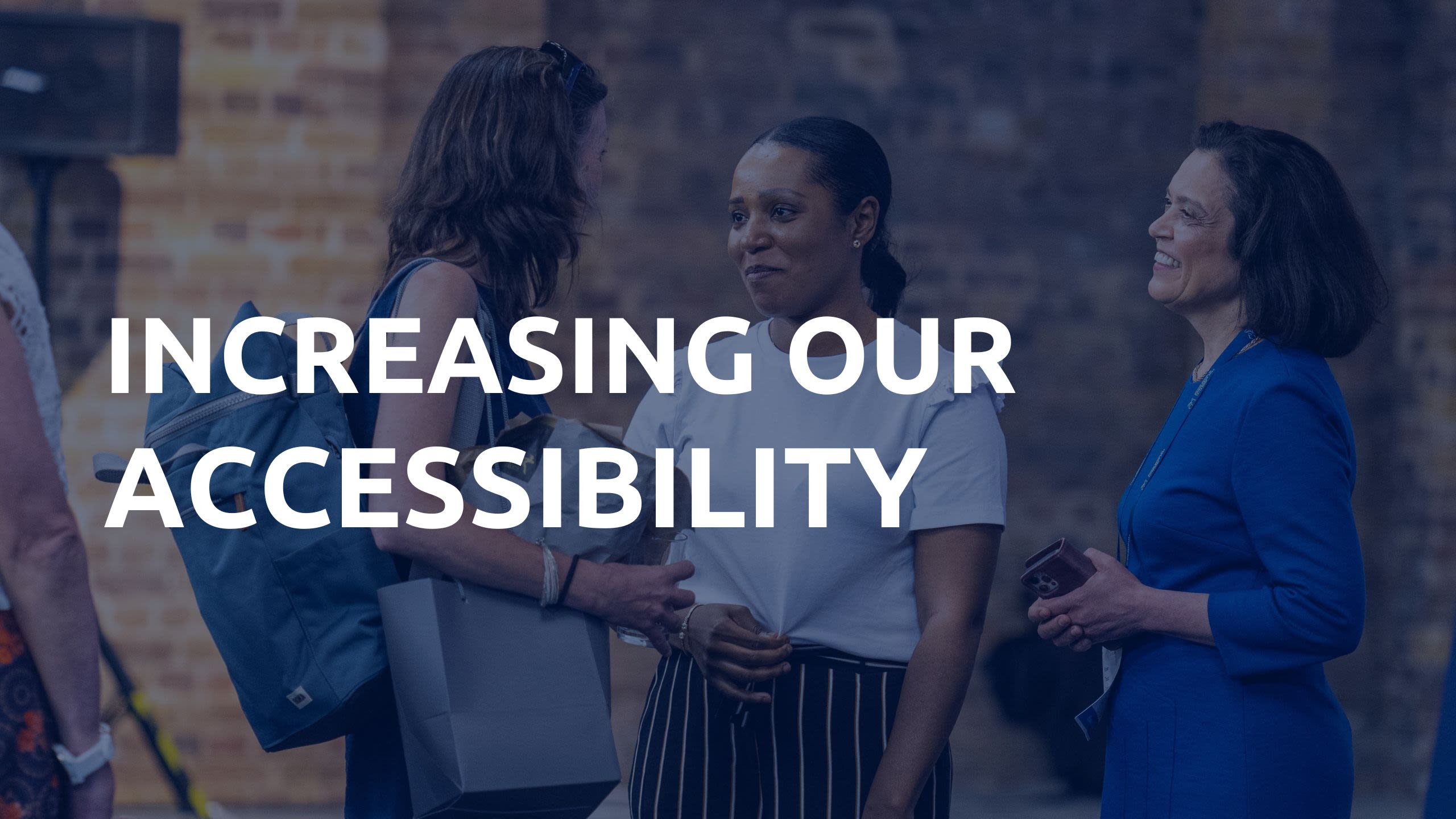
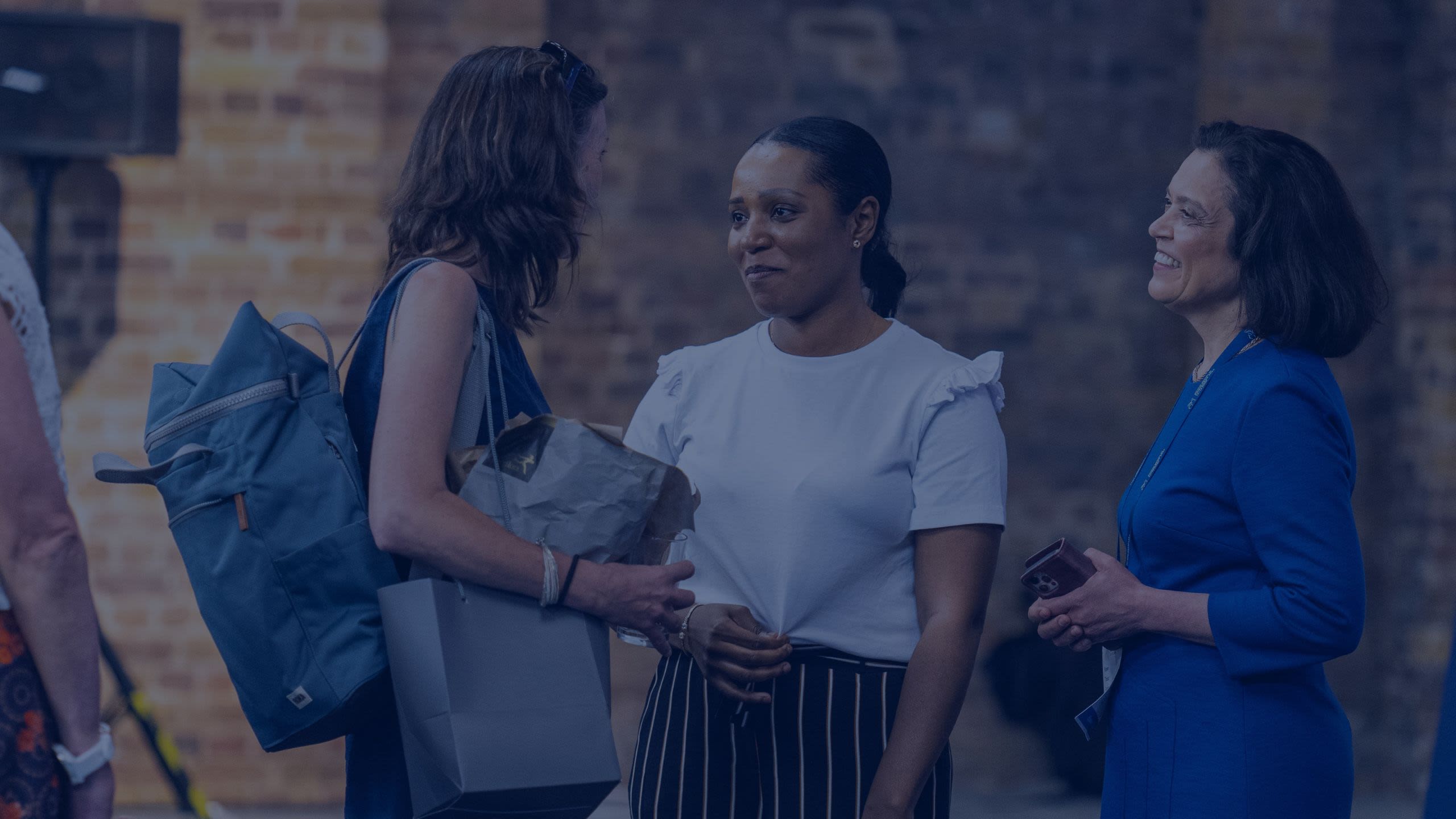

GOAL THREE
We will become more resilient, accessible and influential through the delivery of a comprehensive digital transformation programme to ensure our research, educational and clinical products have benefit globally and drive up standards in women’s health.
Championing digital learning
The College has used digital technology to make our examinations more accessible. We have provided more examination places than ever before, helping improve education, training and standards of care globally. Candidates sat 11,628 MRCOG Part 1 and Part 2 examinations in 62 countries between July 2022 and July 2023. A record 2,783 MRCOG Part 3 examinations were also delivered; a 50% increase compared to pre-pandemic levels. The College also trained over 100 more examiners from six countries to assess future Part 3 examinations.
As part of the College’s global expansion plans, we opened four additional MRCOG international examination centres, bringing the total to 10. This has significantly reduced the need for candidates to travel internationally.
The College is supporting our busy members to learn in ways that suit them best. Since launching our world-class digital education website, RCOG Learning, in September 2022, over 12,500 people have accessed the content. The site had over half a million page views in the month after launch, with O&G doctors from over 146 countries using the content to support them throughout their careers.
We are helping O&G doctors to keep up to date with the latest research in genomics, the study of the genes in our DNA. Six RCOG genomics podcasts cover subjects including fetal medicine, gynaecological cancer, maternity care and reproductive medicine. As part of the College’s commitment to improve the membership’s specialist knowledge in genomics, we held 14 online seminars. Genomics is already an essential part of routine antenatal care and plays an important role in diagnosing and treating gynaecological cancers.
Improving members’ online experience and reaching more people
Further projects have been delivered with the aim to improve the experience of members who interact with the College online. Single-sign-on functionality has made accessing RCOG systems and booking onto events and courses more efficient.
Payment systems have also been improved to make it quicker and easier for members across the world to pay fees and make online purchases. Our new online shop also includes a wide range of branded products, helping to foster a sense of belonging with being a member of the College.
The College’s focus on developing accessible, bitesize content for social media platforms has more than doubled the number of people we reached with our information and advice – from an average of 35,000 in 2022 to 85,700 in 2023.
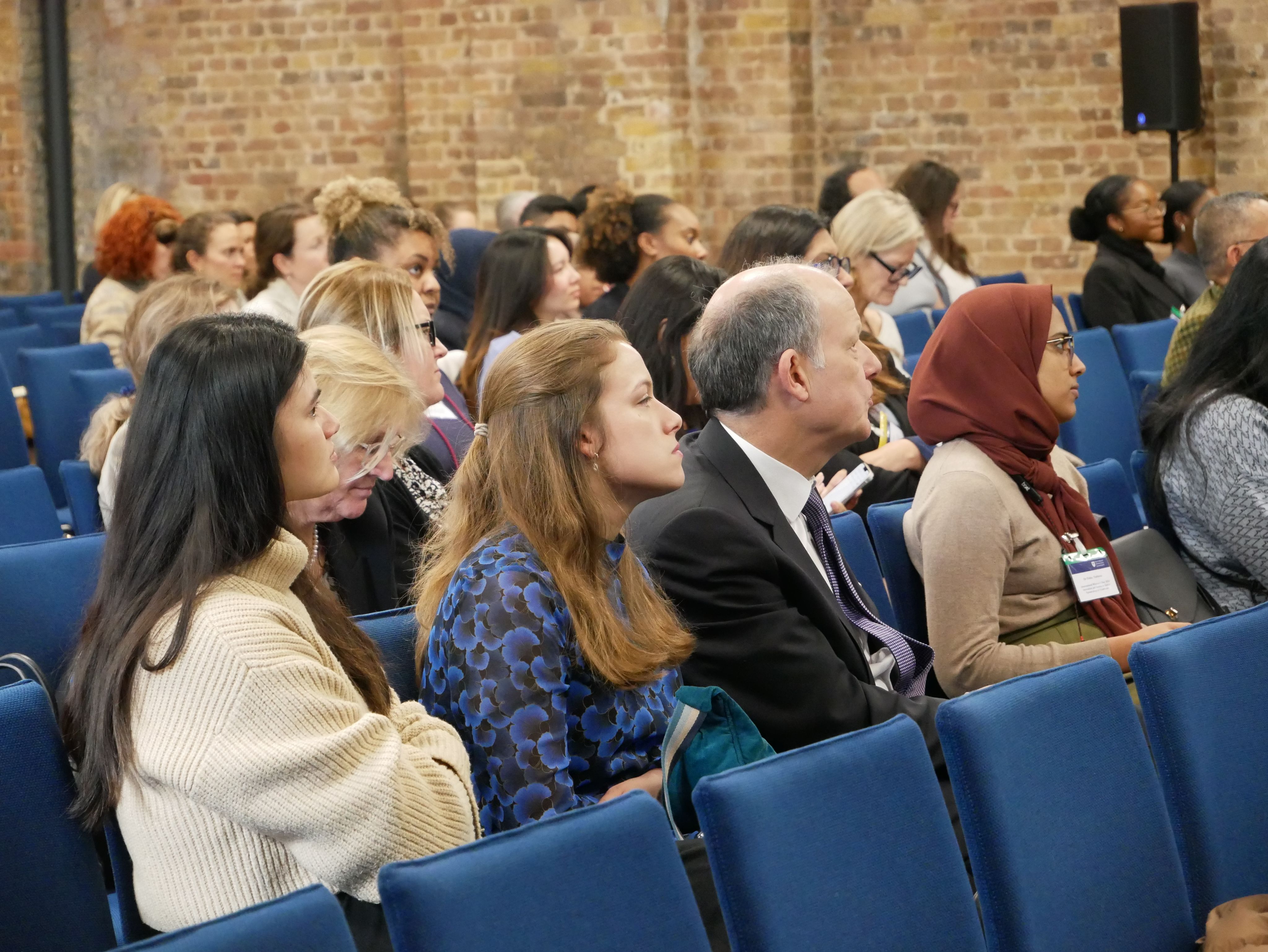
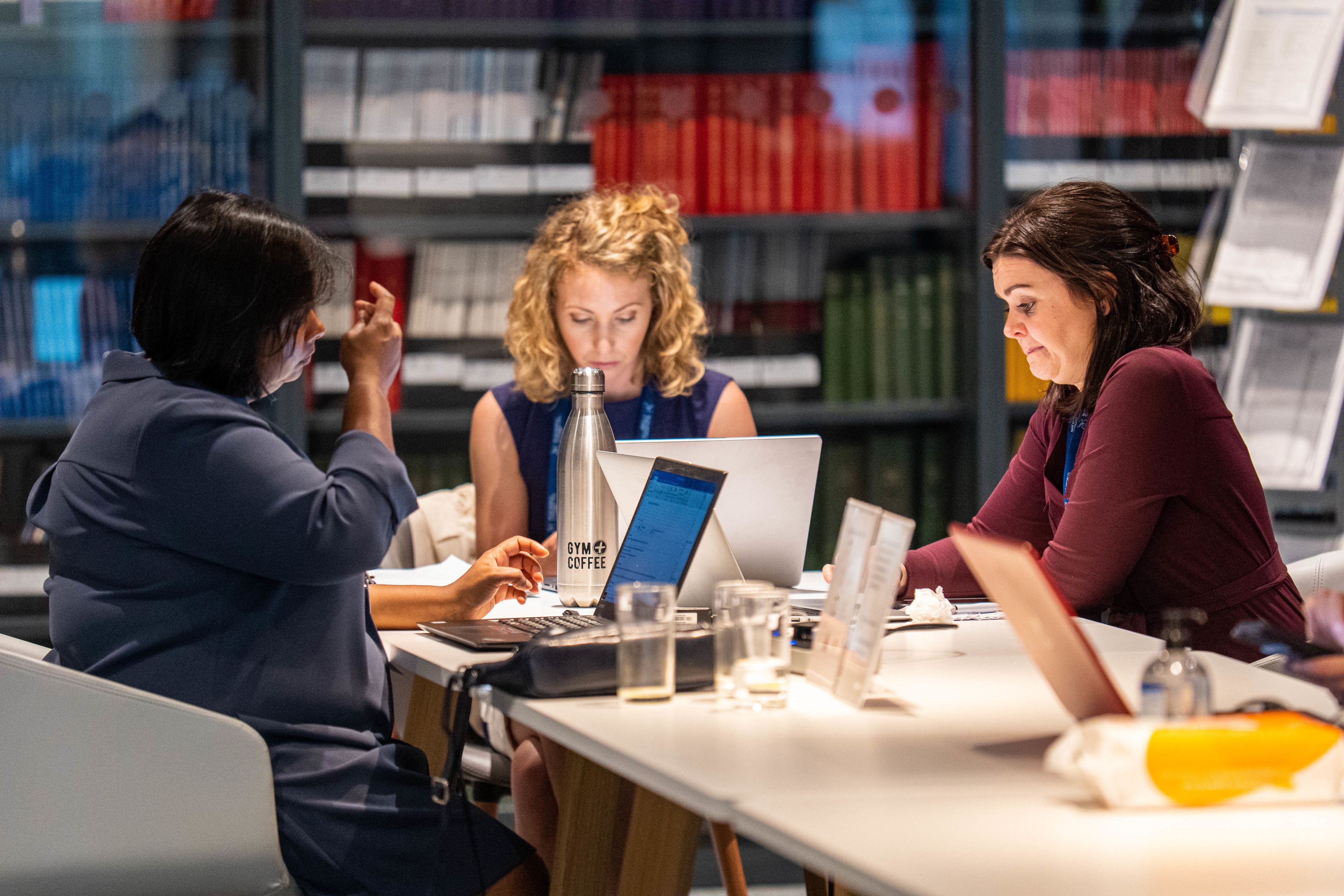
Dr Nithiya Palaniappan is a Consultant Obstetrician and Gynaecologist at Victoria Hospital in Fife, Scotland.
She’s been a member of the College since 2008 and is a trainer and an examiner for the MRCOG exams. She talks about the updates to RCOG Learning, the College’s digital education site, and how they benefit the O&G profession and beyond.
"From an educational perspective, the content in RCOG Learning is truly commendable, demonstrating a standard of excellence. The amount of information that you can acquire is vast, especially since it has been updated and revamped. I’m a part of the eLearning committee and contribute to the content, therefore I’ve had a glimpse of the extensive work that has gone into it.
As well as making sure all the course modules are up to date, new content has been added, including practice questions to test your knowledge. This is useful for anyone taking the membership exams, and for both trainees and trainers like myself.
The new podcast series is an amazingly useful way to assimilate knowledge on the go. Adopting different formats like this means the website offers content that suits a diverse range of learning styles.
Experts, consultants and trainees contribute to all the content on RCOG Learning. So you can be assured you’re getting the most relevant, up-to-date facts and figures. The way the information is structured and presented helps you to use it to its full potential."
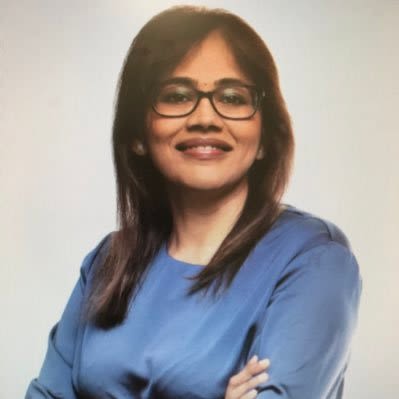
Essential content that influences practice
"There’s a Clinical Content Hub, which includes bitesize content from the Green-top Guidelines – which O&G doctors refer to regularly. I might use these several times a week. There’s access to other essential scientific papers and guidelines, such as NICE and sexual and reproduction health guidelines.
I’m involved in clinical governance at my workplace, and one particularly useful RCOG course that I’ve attended was on risk management. There was input from coroners and lawyers, with extensive information and insights on court cases and litigation, which is a major part of risk management in obstetrics. That course was very well attended.
The overall College website also has patient information resources on a vast range of topics, from pregnancy to menopause. They are based on evidence from up-to-date guidance for doctors but written in a way that is easy for everyone to understand. Doctors find them useful in everyday consultations, to help patients make informed choices. When we refer patients to these resources we know they’re getting authentic information and up-to-date facts."

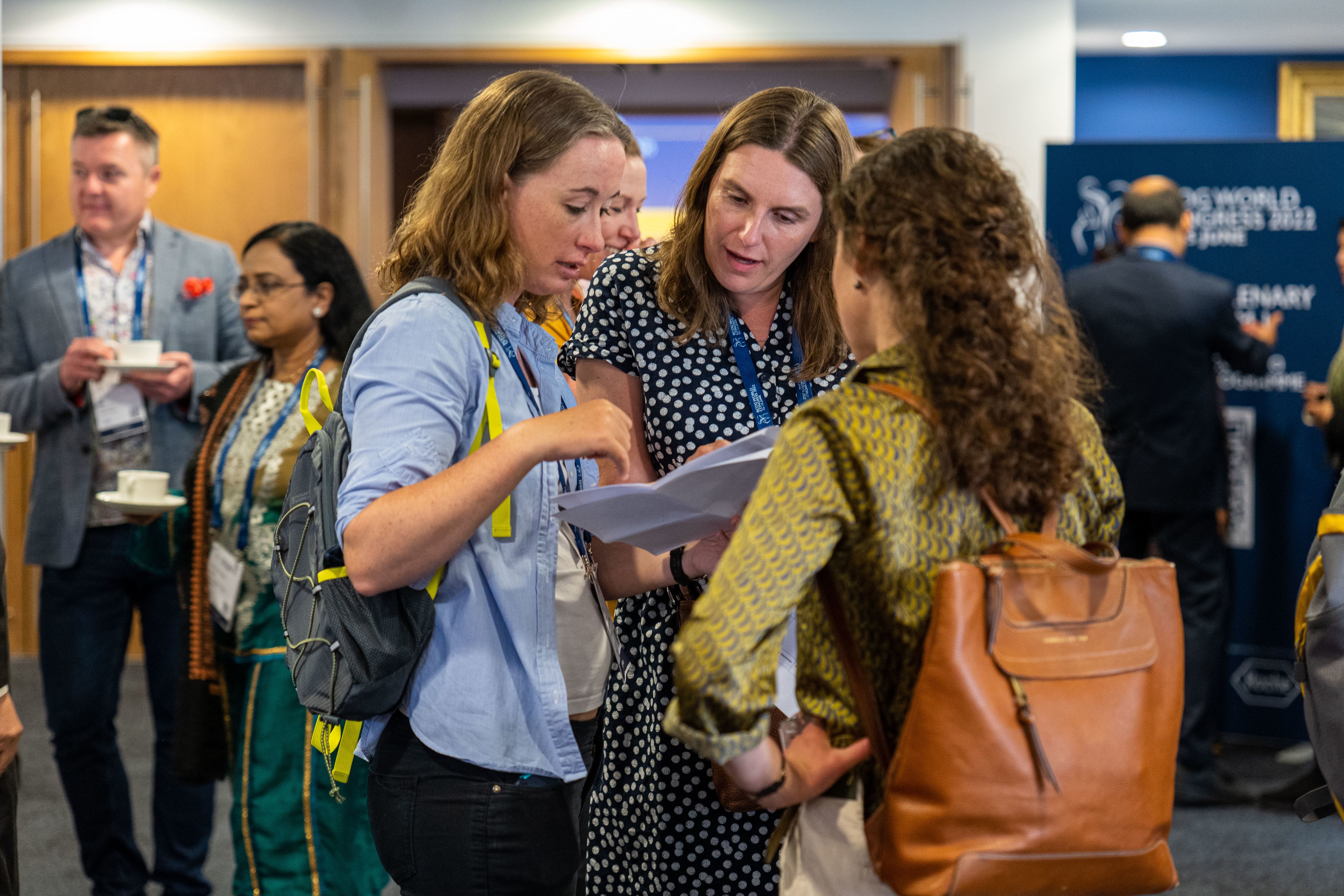
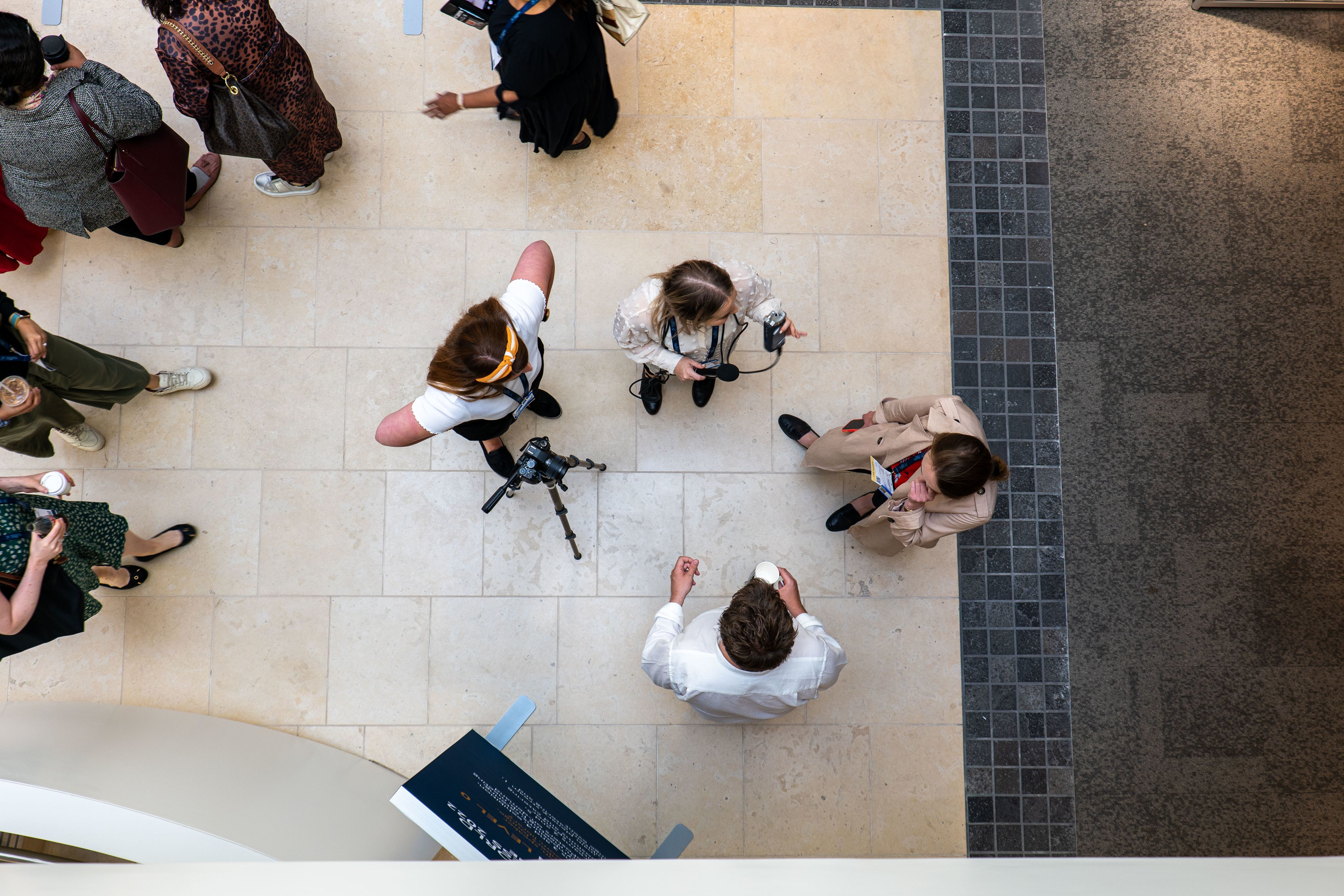
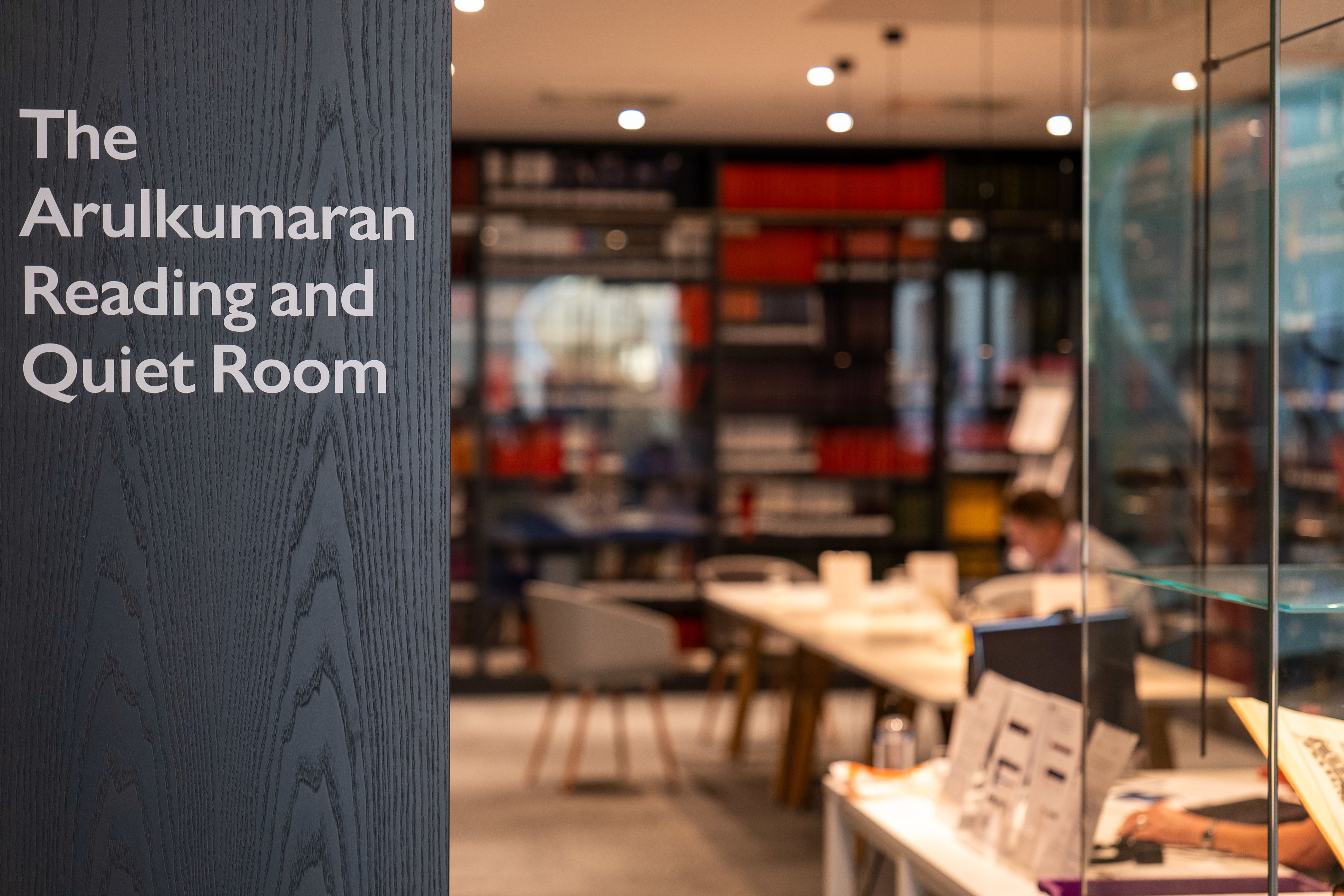
Goal three: We will become more resilient, accessible and influential through the delivery of a comprehensive digital transformation programme to ensure our research, educational and clinical products have benefit globally and drive up standards in women’s health.
To meet this goal in 2024, we will:
Continue to streamline and improve members’ experience
by further tailoring College services and communications to their areas of interest, career stages, and location. This will be achieved by progressing work that will result in the College migrating to a new customer relationship management system.
Continue to grow the number of qualified obstetricians and gynaecologists
by increasing the opportunities for candidates to sit our digitally delivered MRCOG Part 1 and Part 2 examinations by 15%, year-on-year.
Share our expertise and knowledge globally to promote best practice,
for example enabling members of The Royal Australian and New Zealand College of Obstetricians and Gynaecologists (RANZCOG) to access RCOG Learning content.
Develop the RCOG Training ePortfolio,
which provides a comprehensive record of someone’s training and documents their progression, so that the platform is ready for the O&G Curriculum 2024.
Support doctors on their journey to RCOG membership
by developing our digital MRCOG examination revision resources.
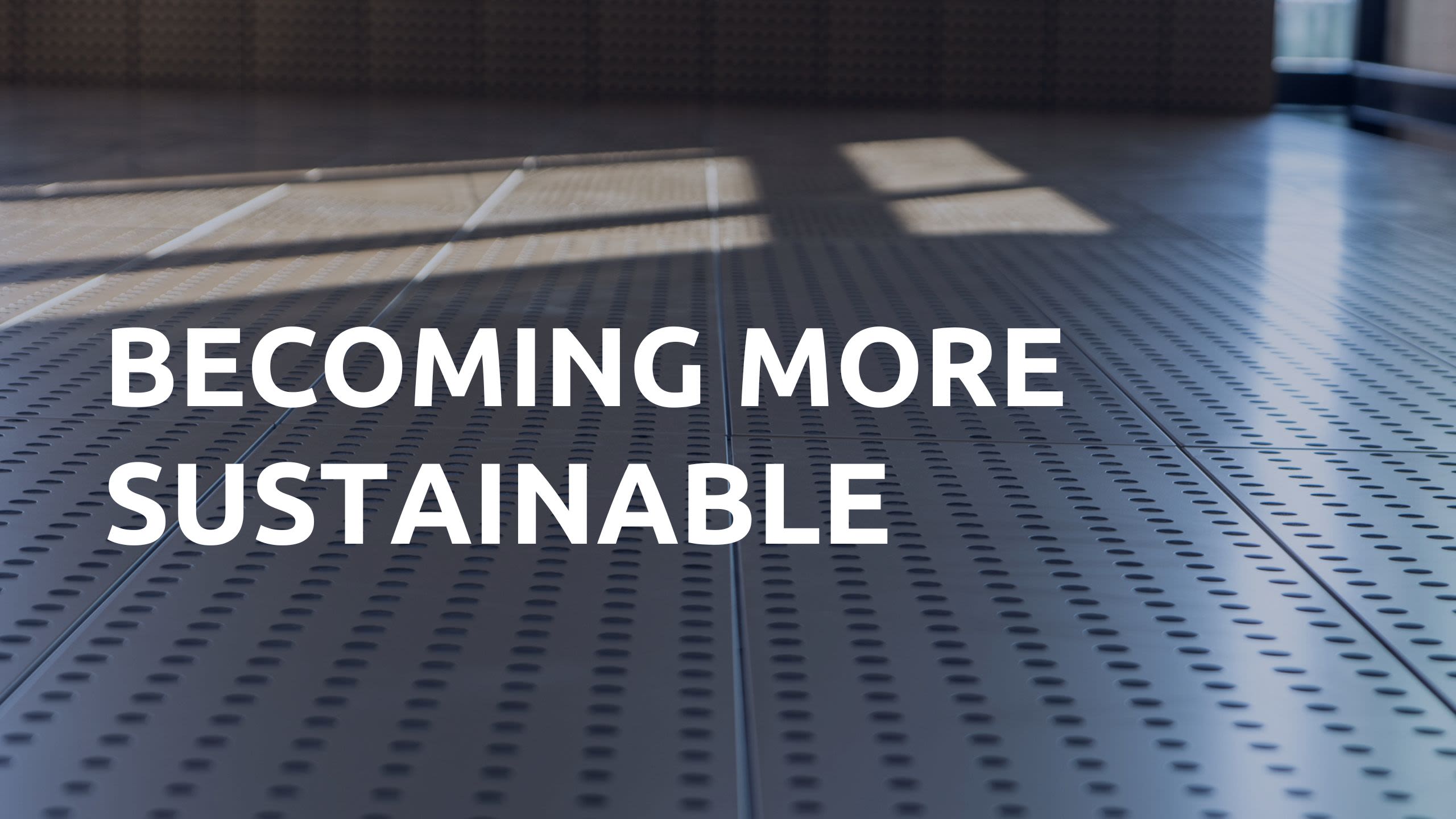

GOAL FOUR
We will ensure our financial and environmental sustainability through delivery of all of our objectives and contribute to a significantly reduced carbon footprint.
Working with others to achieve a shared mission
The RCOG hub for women’s health organisations in our London office has expanded. At Union Street, there are now 15 women’s health organisations working alongside each other to achieve the shared mission of improving the health of women and girls in the UK and abroad. In the last 18 months, we welcomed Baby Lifeline, The Lullaby Trust and the Maternal Mental Health Alliance. This hub model, which brings together different organisations that benefit a similar group of people, is now being replicated in other sectors.
The College received a bronze Talent Inclusion and Diversity Evaluation (TIDE) award from the Employers Network for Equality & Inclusion. This recognises work we have completed on our Equality, Diversity and Inclusion (EDI) Strategy which is helping to make the College a diverse and inclusive organisation to represent its members. The work has included:
• Learning and awareness raising events led by staff networks, such as for Pride, Black History Month and National Inclusion Week
• Joining the Hidden Disabilities Sunflower scheme which is a way for staff to voluntarily share that they have a disability or condition that may not be immediately apparent
• Developing more inclusive recruitment practices using Applied, a hiring platform that uses behavioural science to help organisations hire the best person, without bias
• Introducing a buddying scheme for new starters
• Offering family leave which includes improved paid maternity and paternity leave, entitlements for dependents like parents or partners, neonatal leave, parental leave, pregnancy and baby loss leave and fostering and carers leave. This is alongside a new Parents and Carers Hub and a programme of support for those returning from family leave.
• Providing progressive policies and guidance for staff who are parents and carers.
Sharing learning in O&G
The RCOG World Congress won the 2023 Memcom Excellence Award for best virtual/hybrid event. Delegates could attend the event in person and virtually. It provided a flexible, sustainable and cost-effective way for health professionals, including midwives and medical students, to learn about the latest research in O&G.
Some of our virtual attendees said:
The College hosted over 70 tours to showcase the College’s unique collections of books, journals, archives and artefacts relating to women’s health. Tour attendees got to understand the importance of our accredited archives and collections, which contain fascinating stories about the College, O&G and women’s health.
The RCOG journal, The Obstetrician and Gynaecologist (TOG), became a digital-first publication, reducing its carbon footprint by 80%, compared with 2019.
In 2024, we expect the carbon footprint of TOG to be equivalent to charging around 1.3 million smartphones, compared to 6.1 million in 2019. We print fewer copies of the journal and members now pay to receive the physical version of it.
Supporting the profession to understand and respond to the climate crisis
The College has developed a comprehensive programme to support members to provide more sustainable care and advocate for change at a national level. We are also limiting our contributions to the climate and ecological crisis.
The College is an active member of the UK Health Alliance on Climate Change (UKHACC), which brings together health professionals to advocate for just responses to the climate and ecological crisis.
College representatives helped to develop the Green Surgery Report, which provides recommendations about how to reduce the carbon footprint associated with surgical practice.
We released a three-part eLearning course exploring the impact of climate change on health. It covers the principles of sustainable clinical practice and ways health workers are influencing environmental policy and action.
Leading by example, we are working towards reducing emissions in our London office and from staff travel by 50% by 2030. We are achieving this by hosting digital events and exams, making ethical investments and travel policies and cutting single-use plastic. Our electricity is now 100% from renewable energy.
Setting an example of inclusivity
The College has four staff networks that include people from different backgrounds. This helps make sure we represent the diversity of our members and the women and girls that we support.
Carolann Brown is co-Chair of the Racial Equality Staff Network
“One of the network’s aims is to advocate for proportional representation at our most senior levels. It has also been formed to influence decision-making and working practices at the College. For example, we successfully called for an inclusive bank holiday policy where employees have the option to work these days remotely.”
Alissa Harvey is co-Chair of the Disability and Long-Term Conditions Staff Network
“I have a disability and wanted to contribute towards making the College a great place to work – for everyone. Our staff network has acted as a sponsor for the College’s accreditation with the UK government’s Disability Confident scheme. We have also identified and reviewed relevant staff training material. We are helping to improve digital accessibility for staff at the College as well as the products we share with members.”

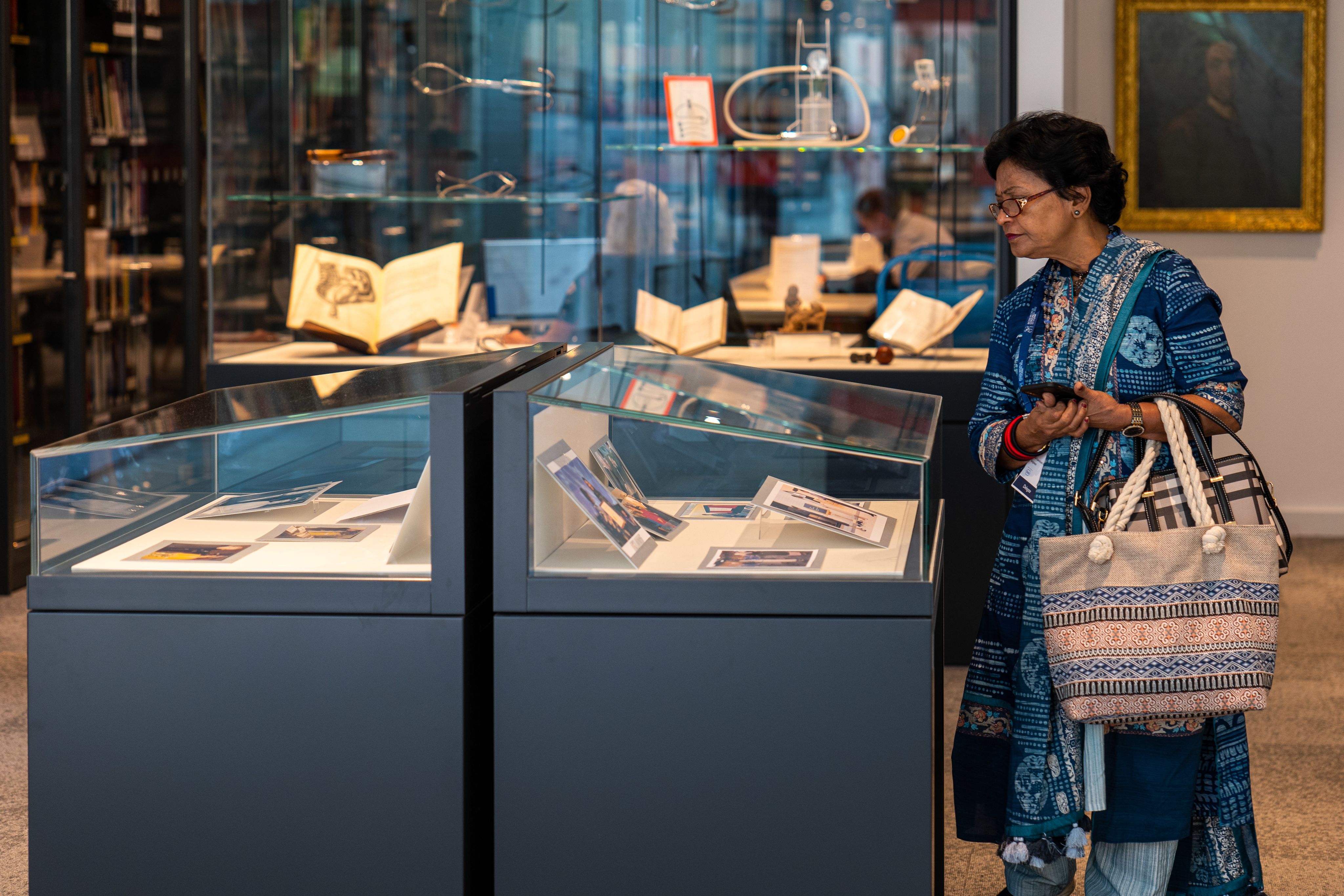


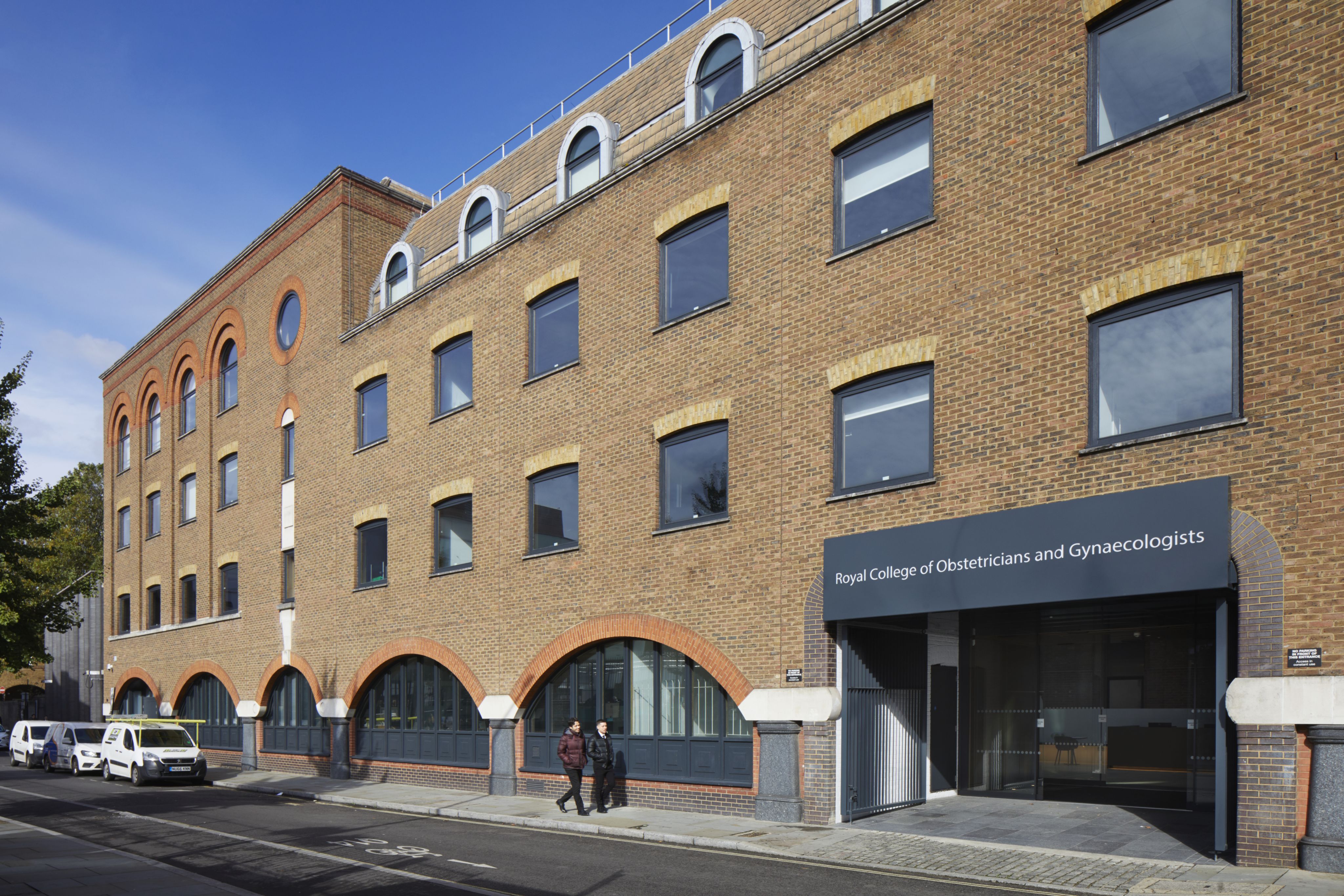
Goal four: We will ensure our financial and environmental sustainability through delivery of all of our objectives and contribute to a significantly reduced carbon footprint.
To meet this goal in 2024, we will:
Continue to foster and expand the women’s health hub at Union Street,
delivering meaningful collaborative work in support of our shared mission to improve the health of women and girls.
Publish an evidence-based and accessible resource
for obstetricians and those working in maternity to put more sustainable care into practice.
Cut our carbon footprint by installing 118 solar panels on the roof of our office
and increase the pool of locally-based examiners across our overseas centres, minimising travel requirements.
Become part of the Southwark Climate Collective
and pool resources with the 15 women’s health charities in our Union Street office. This will help improve air quality by reducing the delivery of goods and services to our office by 10% over a year.
Develop a new five-year strategy
to steer the work of the College from 2025-2030.
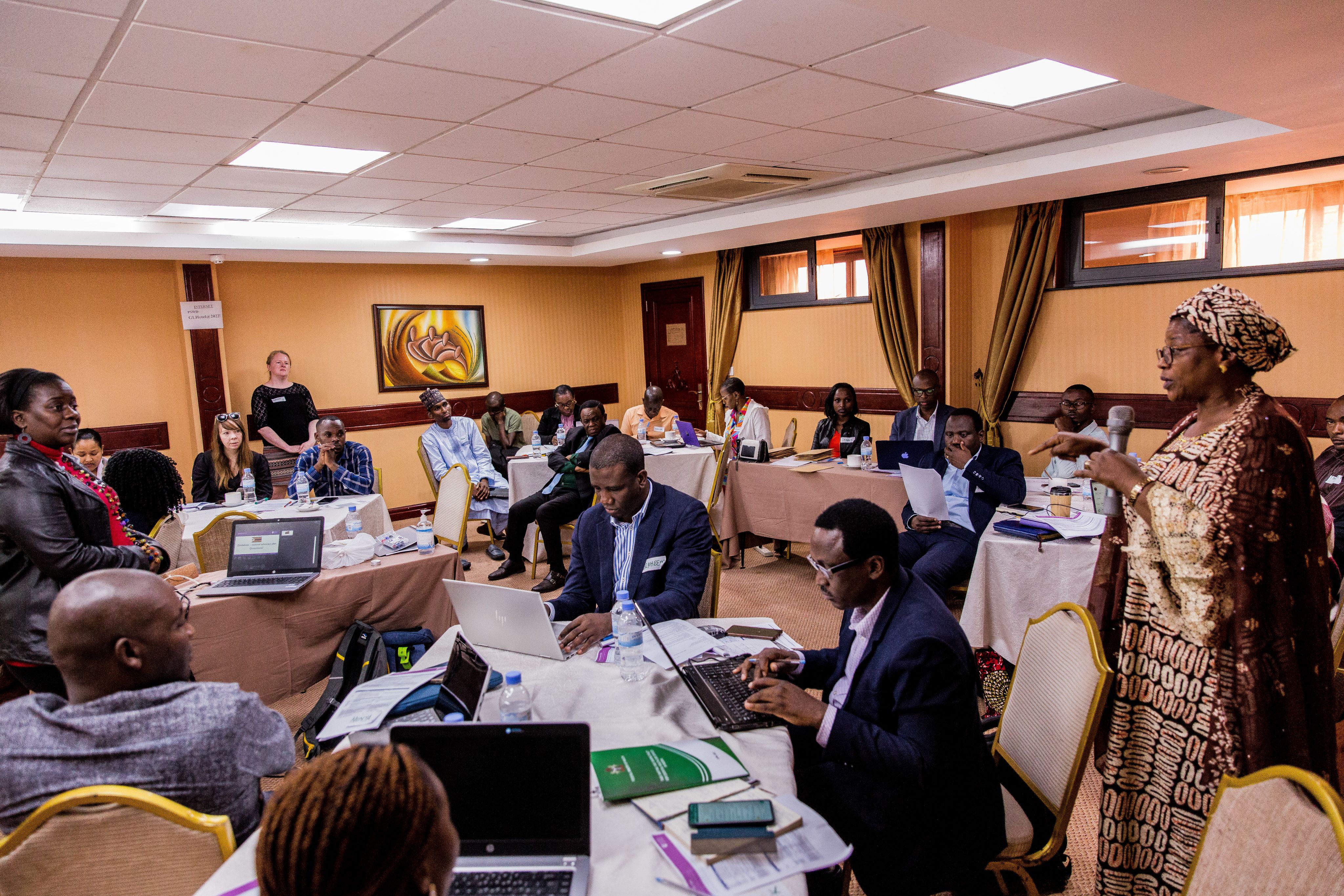
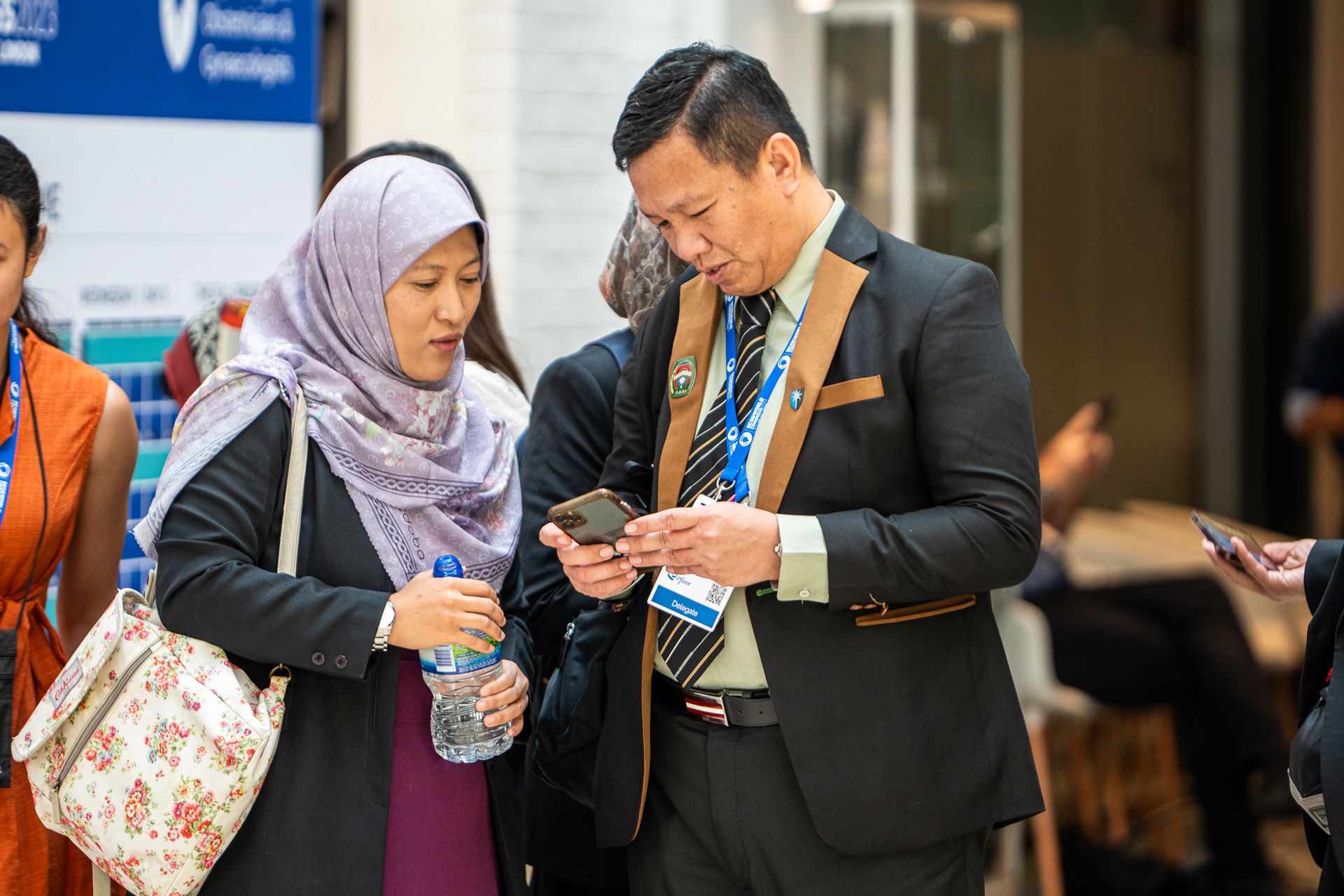
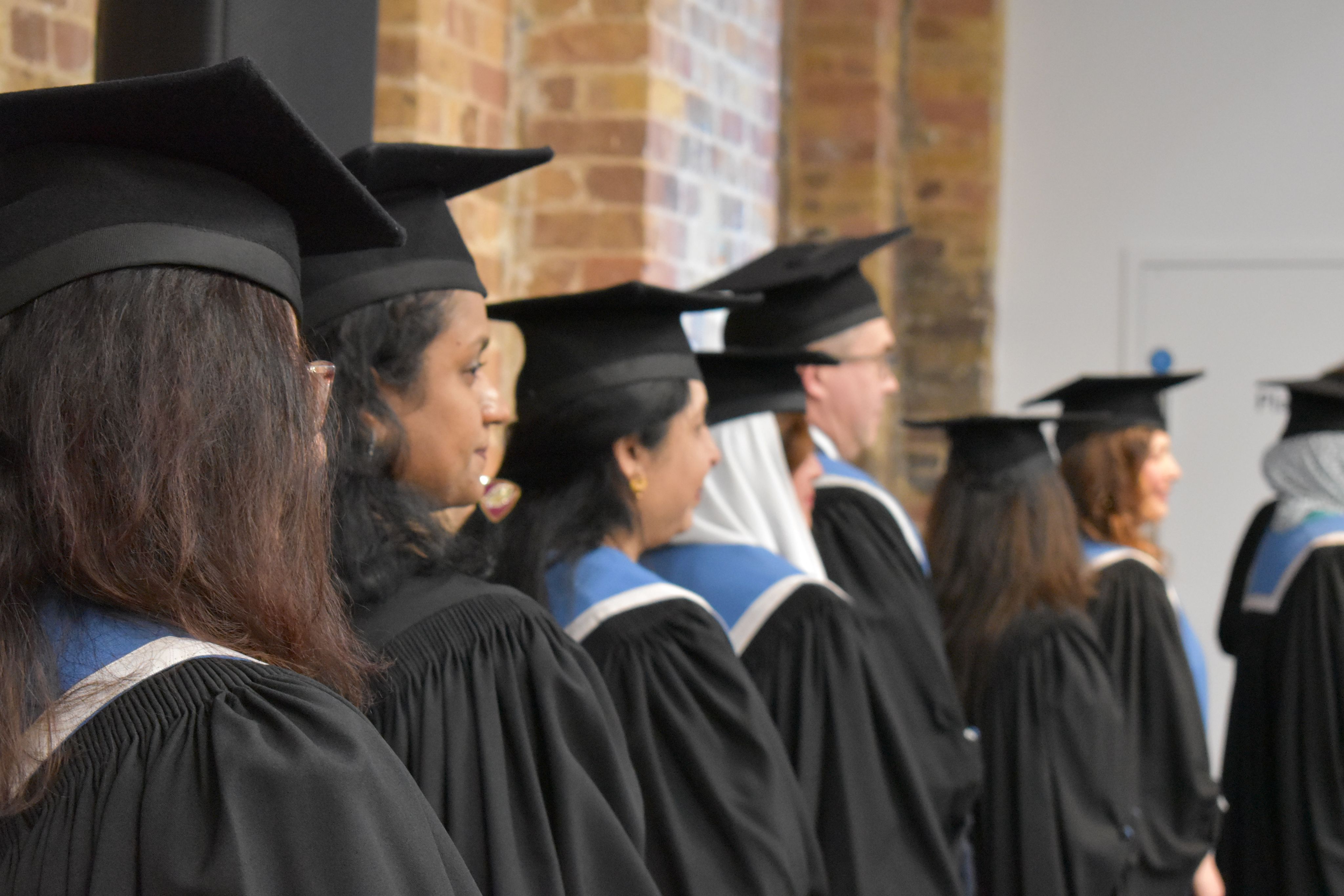
Find out more
The Royal College of Obstetricians and Gynaecologists works to improve women’s healthcare across the world. We’re committed to developing the accessibility and quality of education, training and assessments for doctors wishing to specialise in Obstetrics and Gynaecology (O&G).
Benefits for members
Our aim is to improve the standard of care delivered to women, encourage the study of O&G, and advance the science behind the practice.
Membership fees pay for our campaigns, policy and global work, plus the guidance, education programmes and support networks we provide for doctors.
Member benefits include access to:
• RCOG Learning, which offers eLearning content, podcasts and videos from experts in the field
• The Obstetrician & Gynaecologist (TOG) journal which contains high-quality, peer-reviewed articles
• Our library and reading rooms
• Clinical guidance and best practice to help clinicians deliver high-quality care and improve their practice
• A Continuing Professional Development (CPD) programme and ePortfolio, an online tool to record their learning. This supports members revalidation appraisal with the General Medical Council and lifelong learning.
• Wellbeing and mental health resources and support
• Volunteering opportunities which support their career development and puts them at the forefront of vital work to improve women’s global healthcare and health rights. This allows members to help shape the College’s priorities.
• Tailored communications on the latest news, clinical publications and campaigns
• A range of discounts on books, journal subscriptions, and society memberships
• International Representative Committees for non UK members. These liaise with and support members and trainees in their region.
Discover more at rcog.org.uk/membership
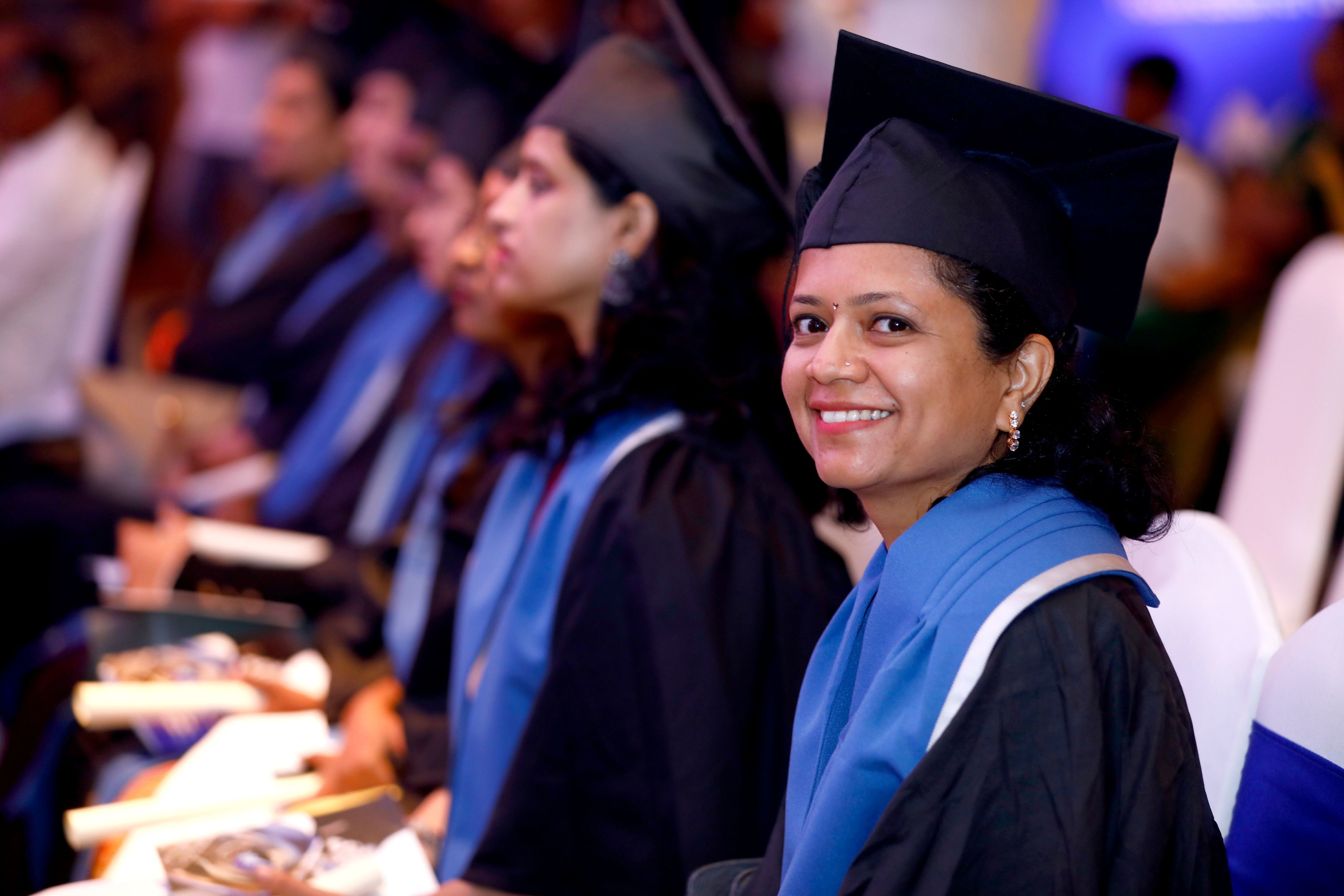
Contact us
Visit: rcog.org.uk
Call: 020 772 6200
Visit us at:
10-18 Union Street
London
SE1 1SZ
Find us on social media:
X: @RCObsGyn
Facebook: @RCObsGyn
LinkedIn: Royal College of Obstetricians and Gynaecologists | RCOG
Instagram: @royalcollegeobsandgynae
Registered charity no. 213280
A note on language
Within this impact report the terms ‘woman’ and ‘women’s health’ are used. However, it is important to acknowledge that it is not only people who identify as women for whom it is necessary to access women’s health and reproductive services in order to maintain their gynaecological health and reproductive wellbeing.
Gynaecological and obstetric services and delivery of care must therefore be appropriate, inclusive and sensitive to the needs of those individuals whose gender identity does not align with the sex they were assigned at birth.

